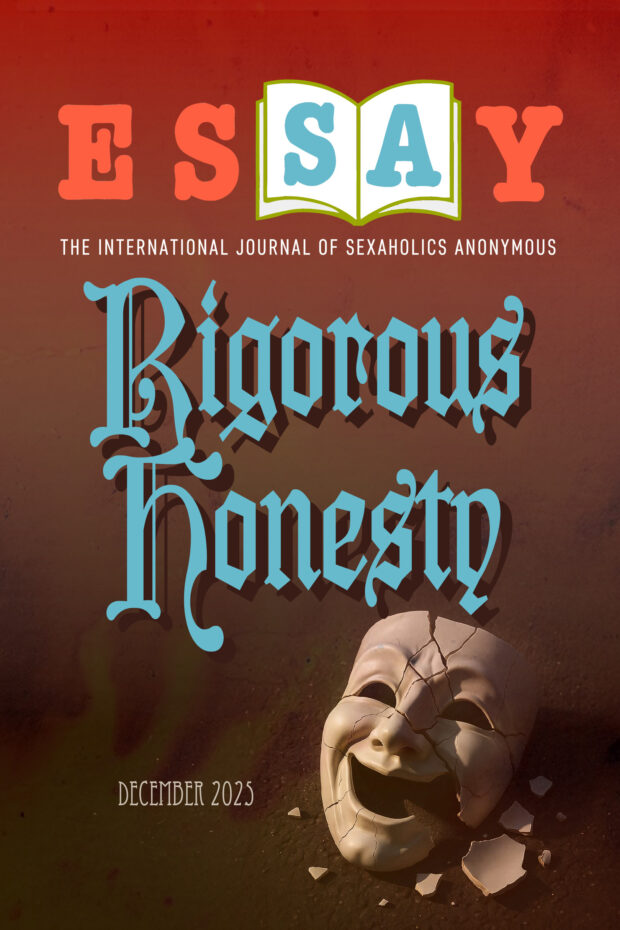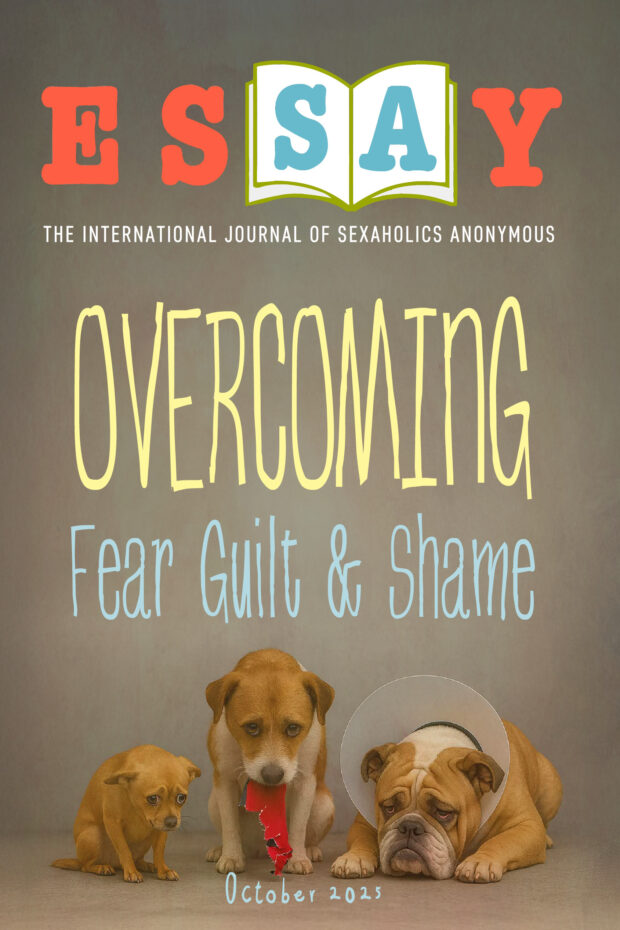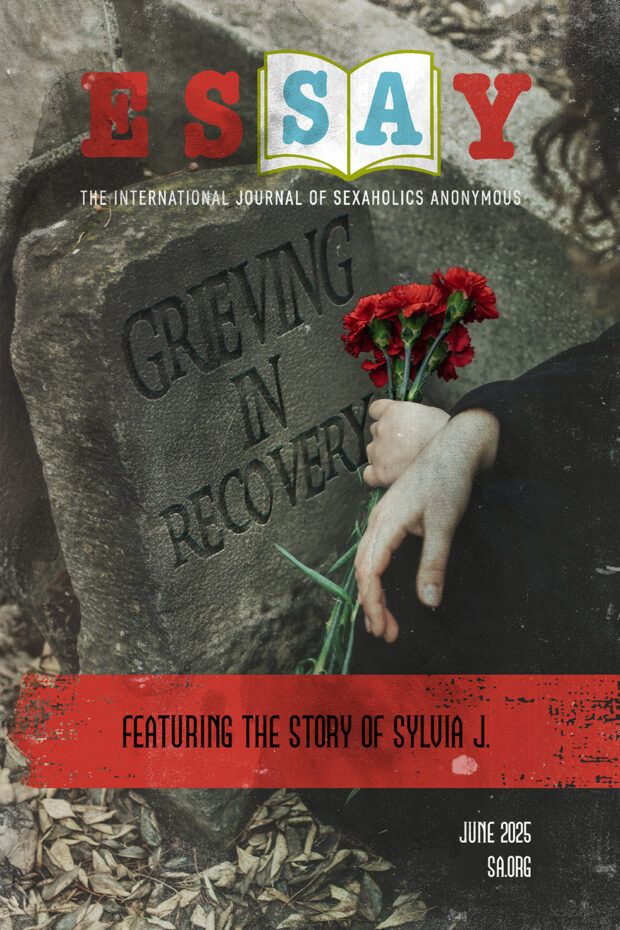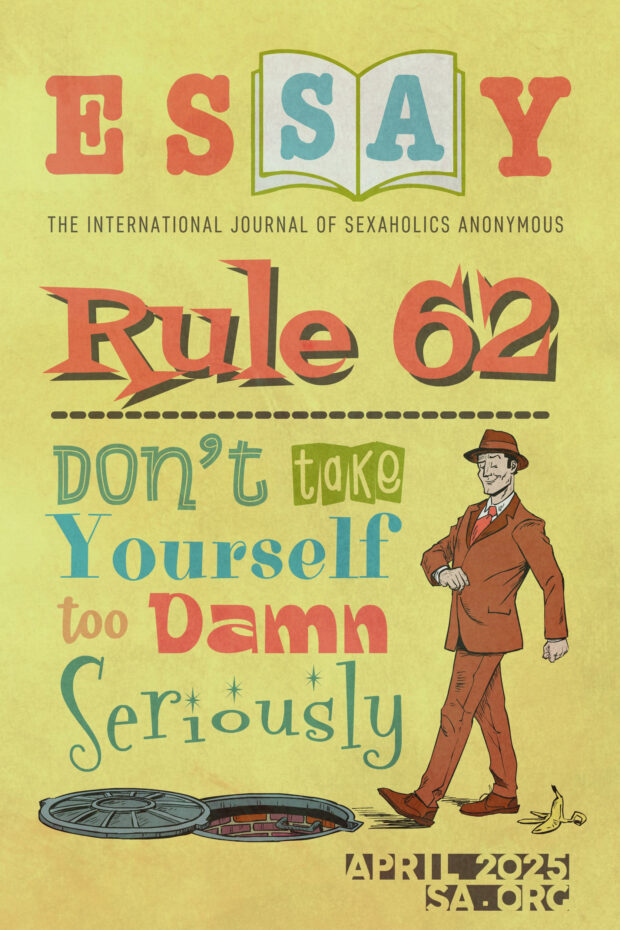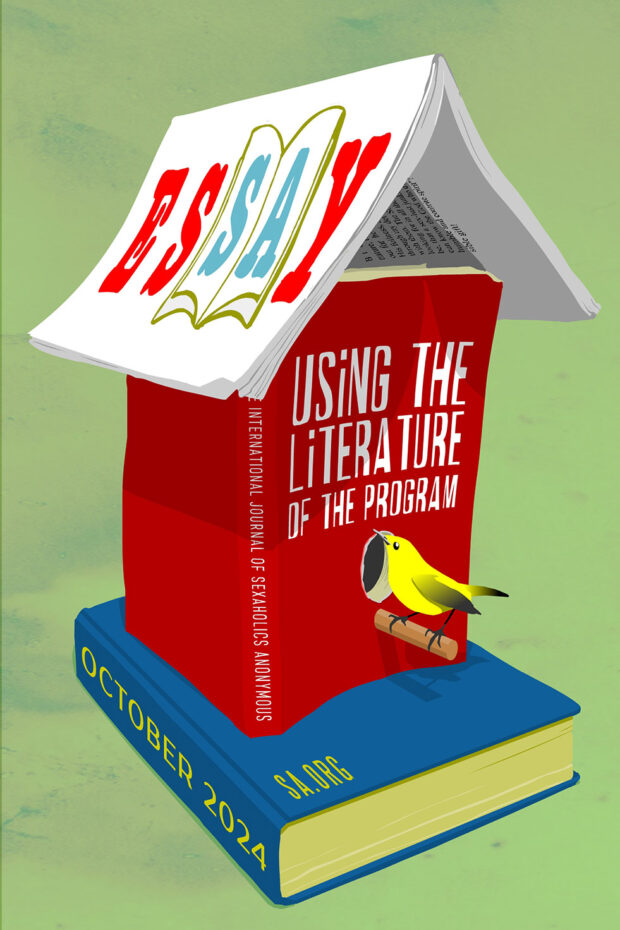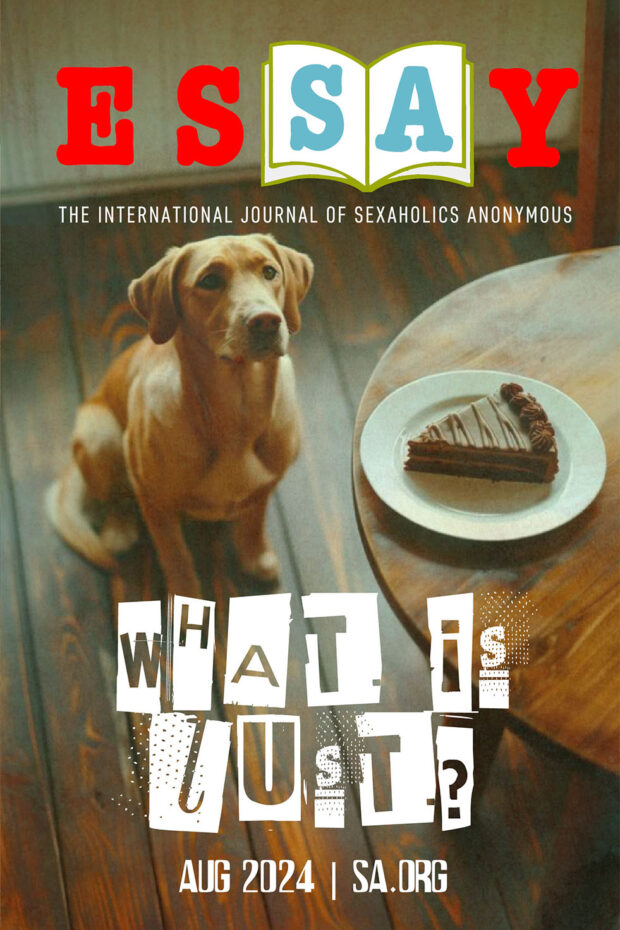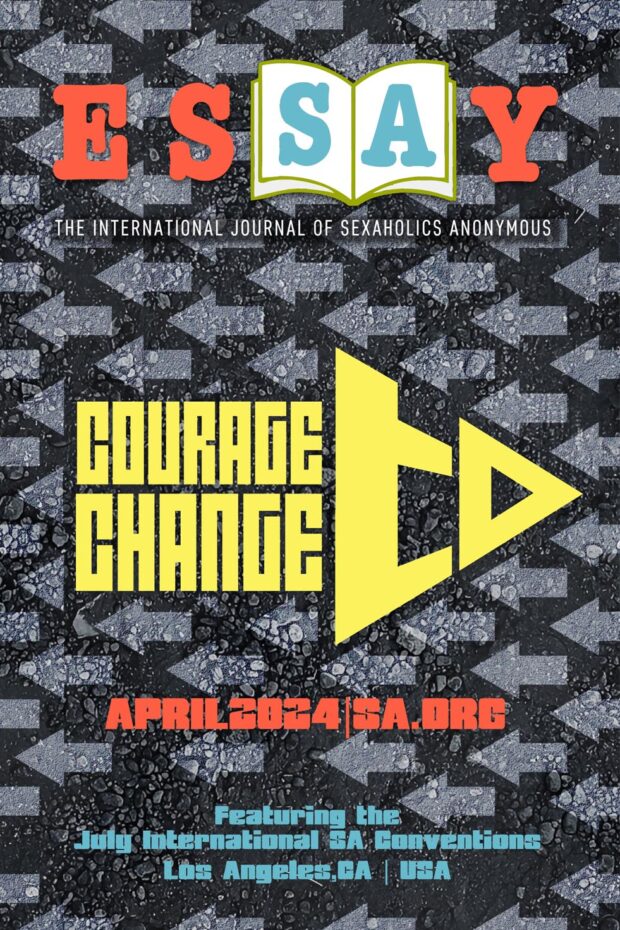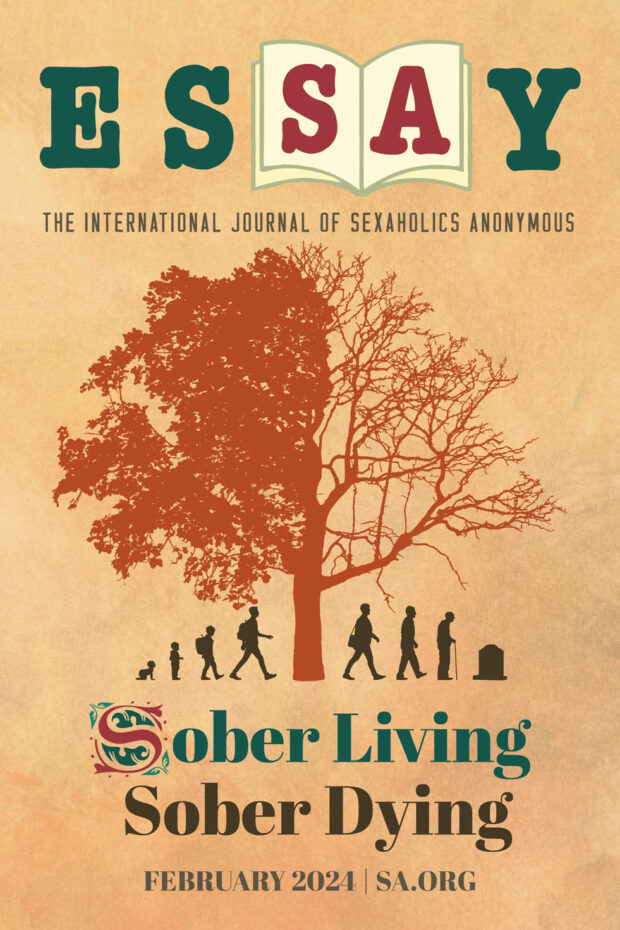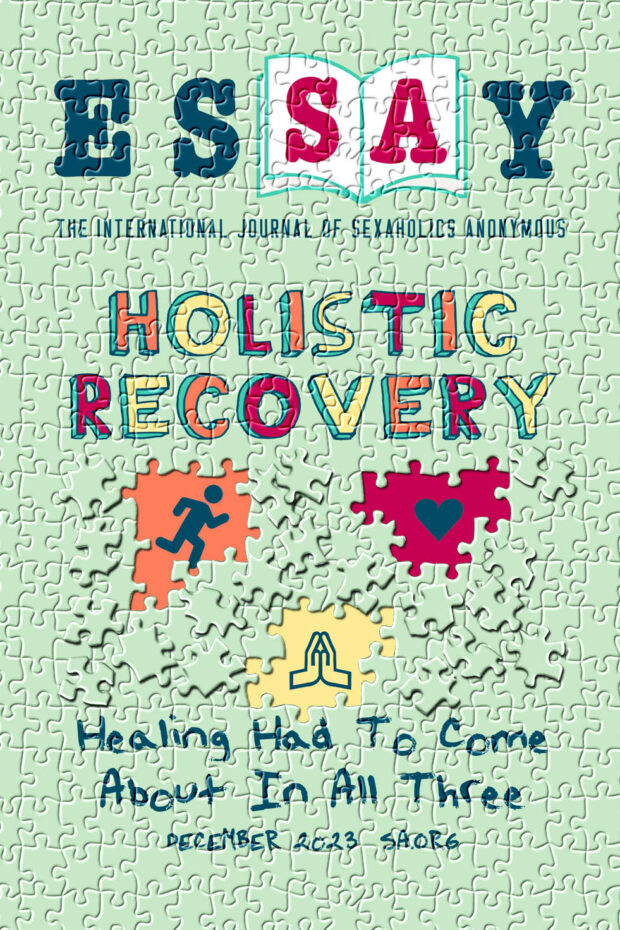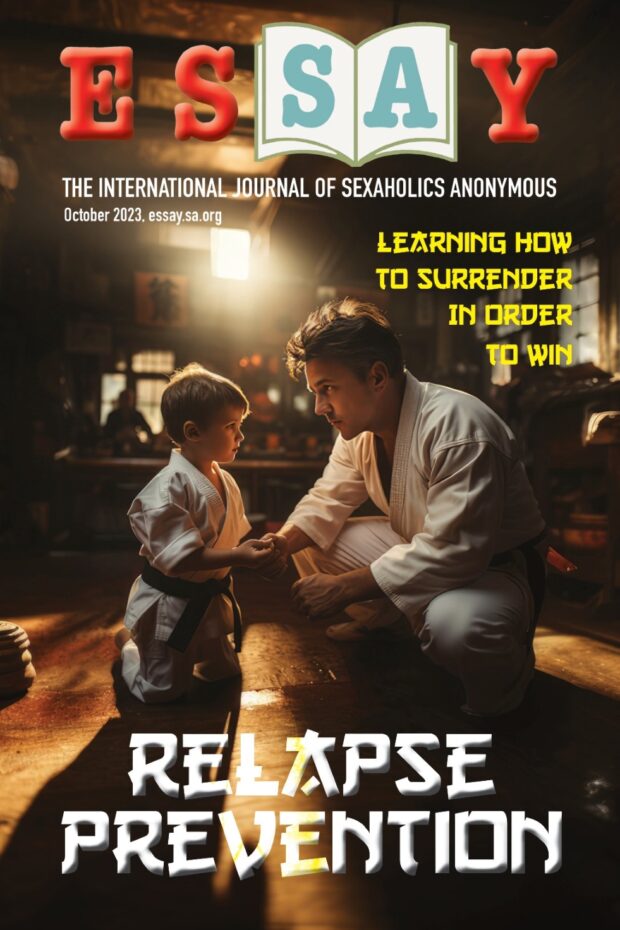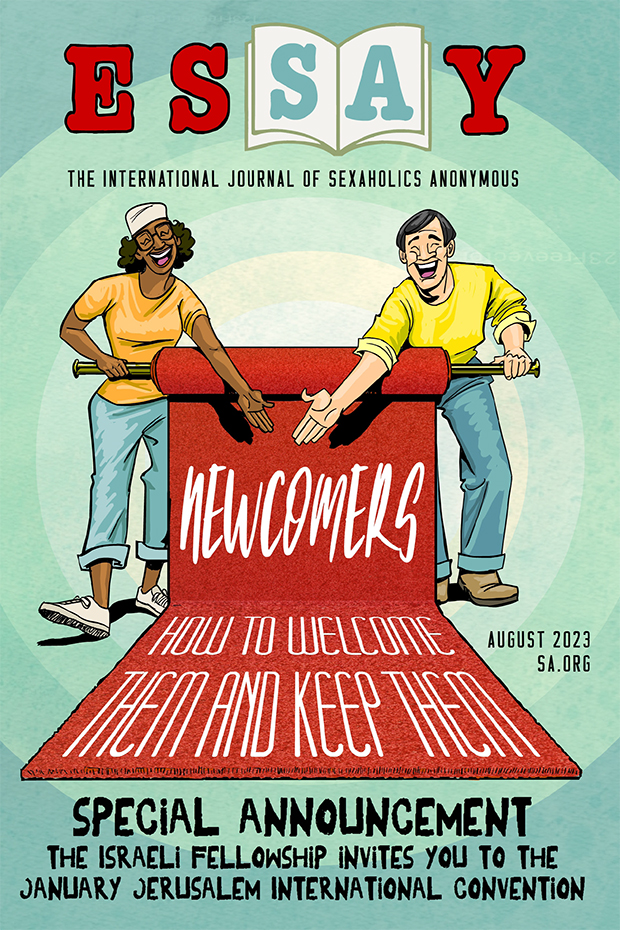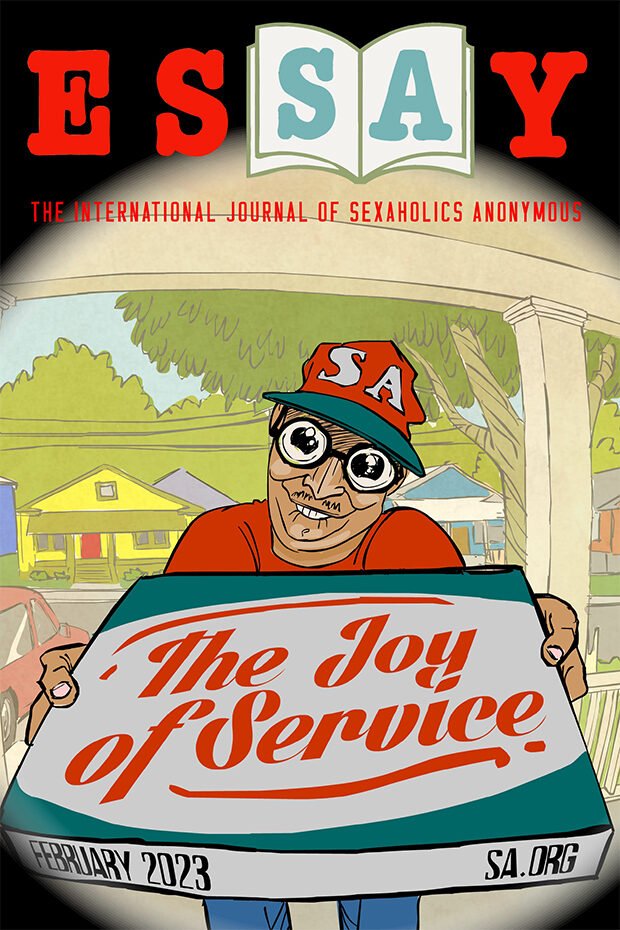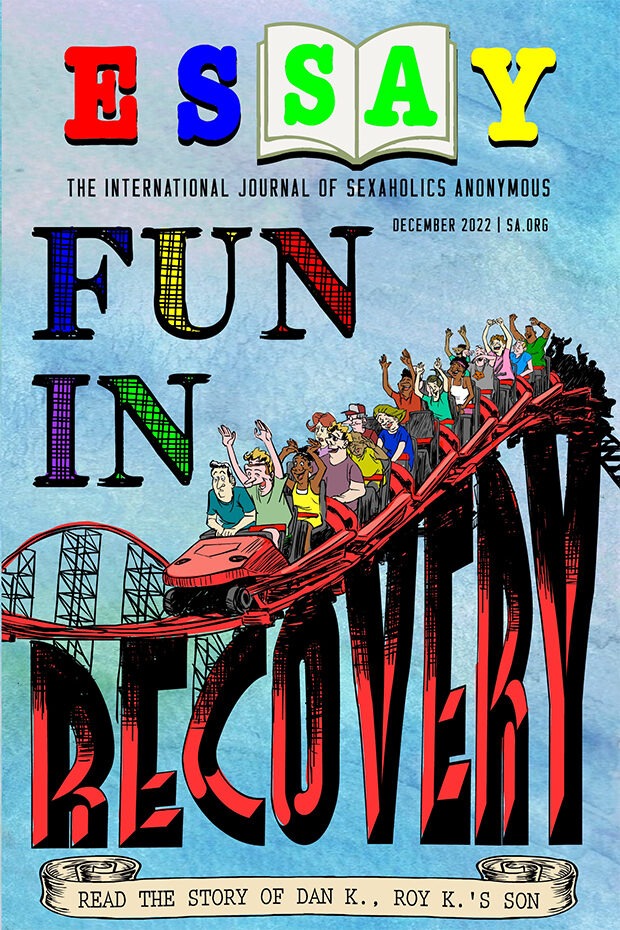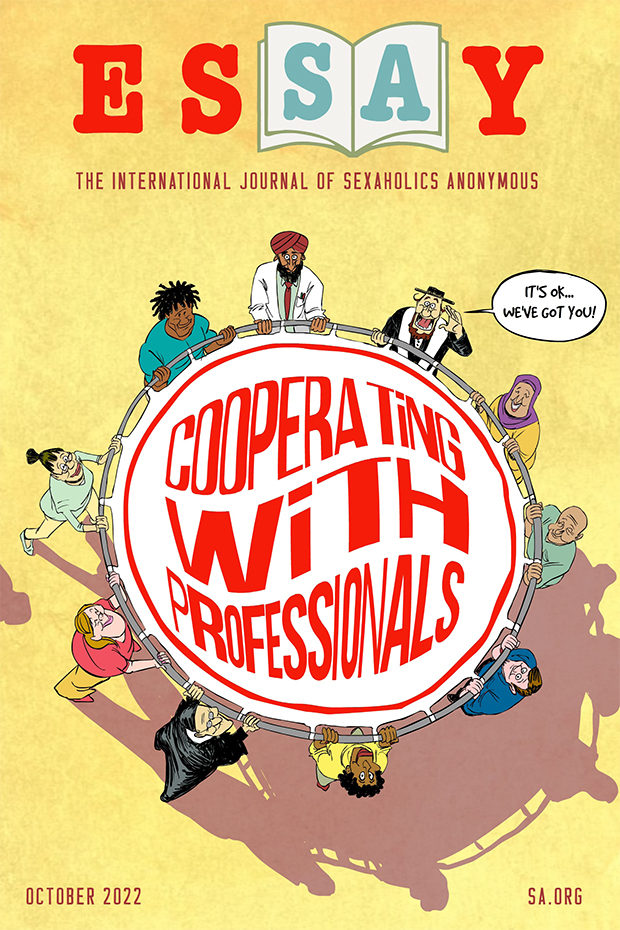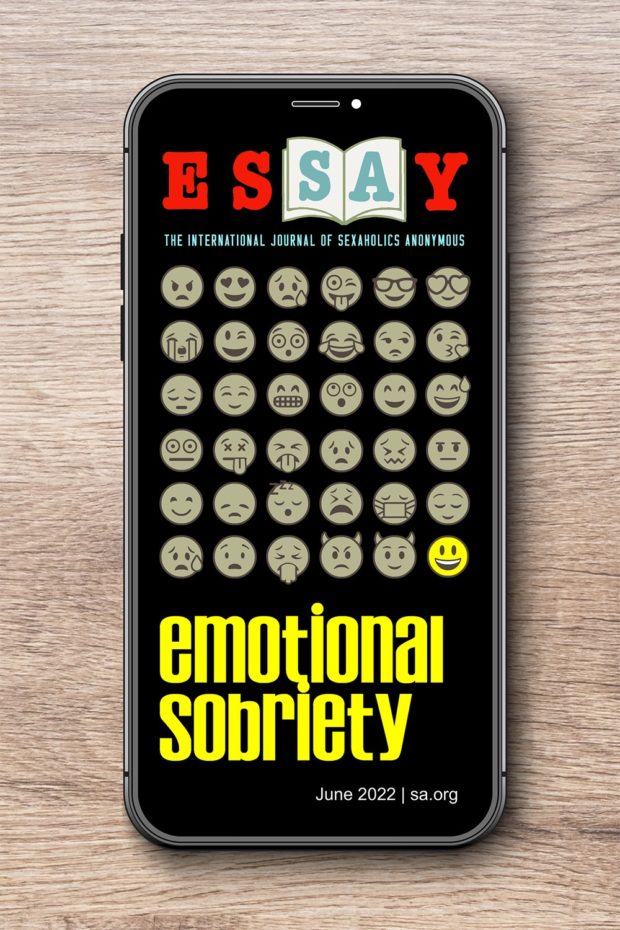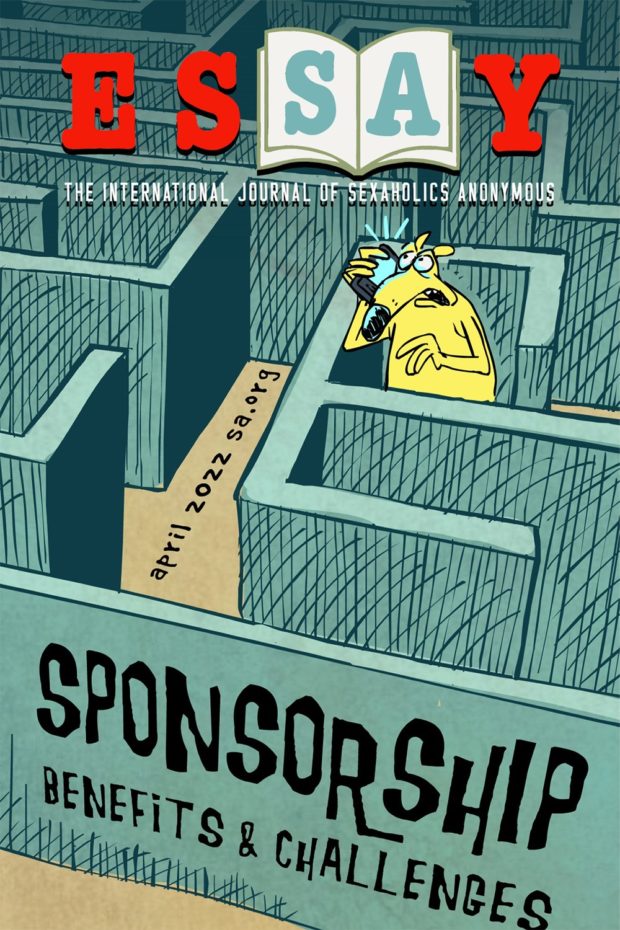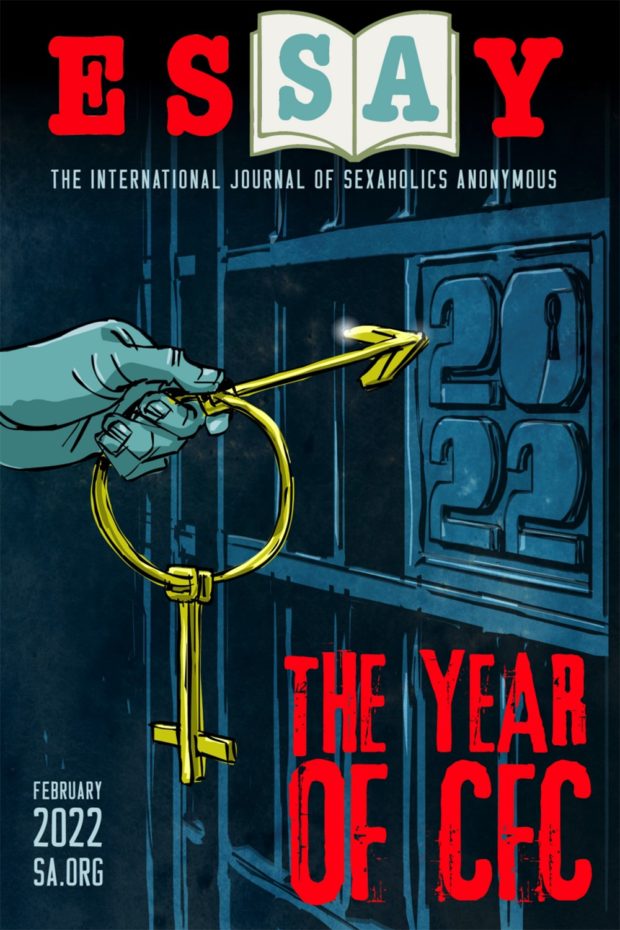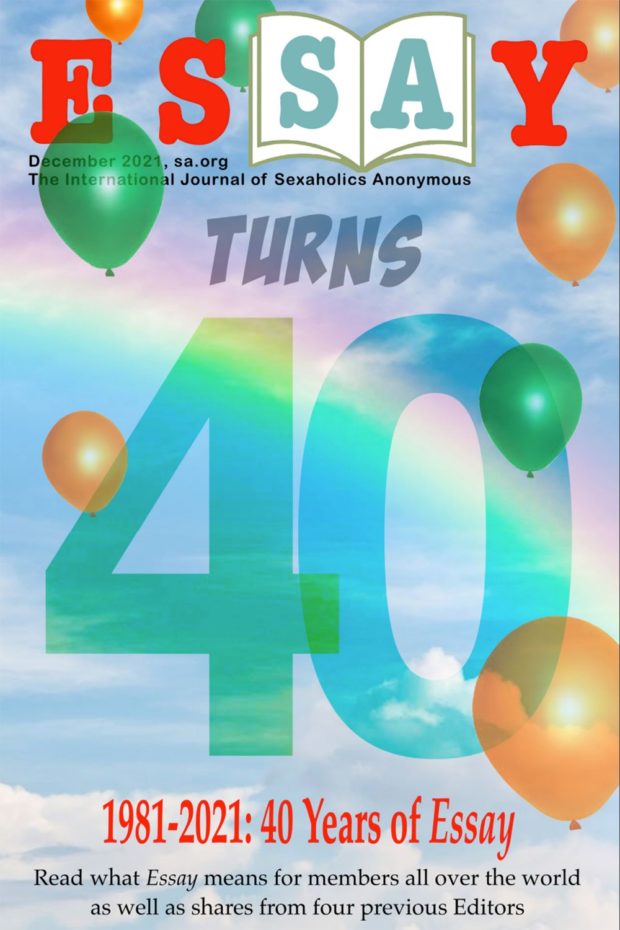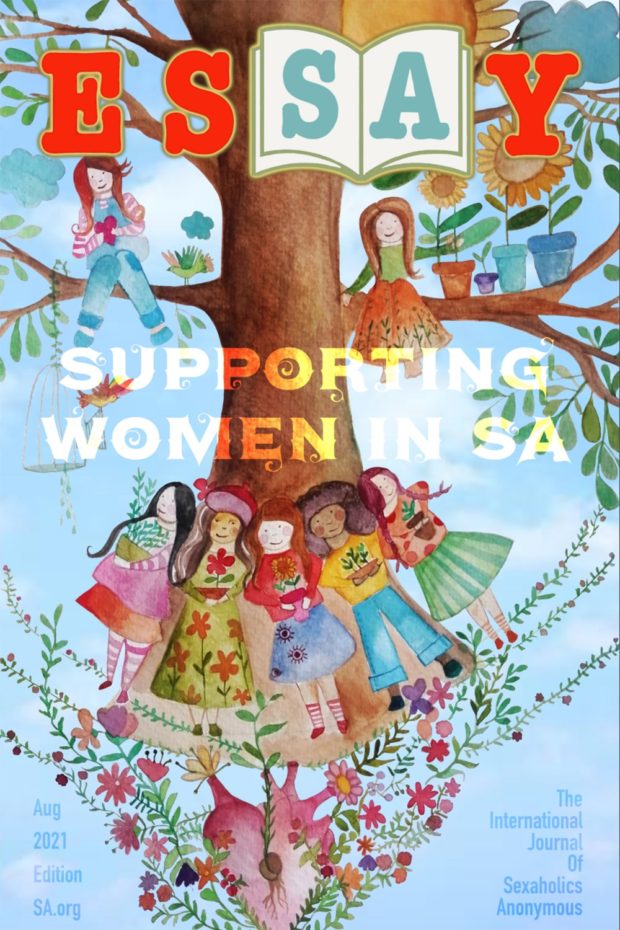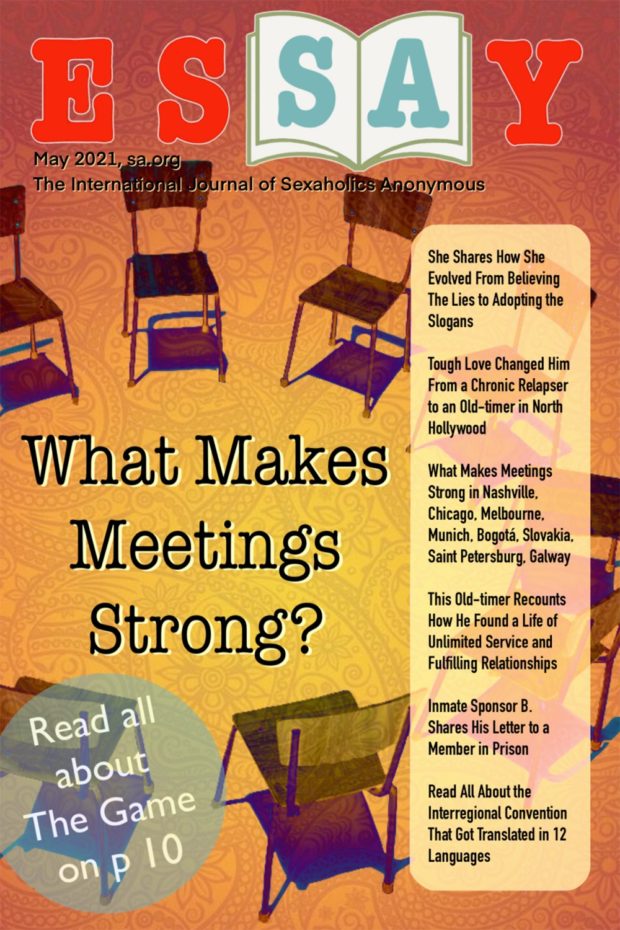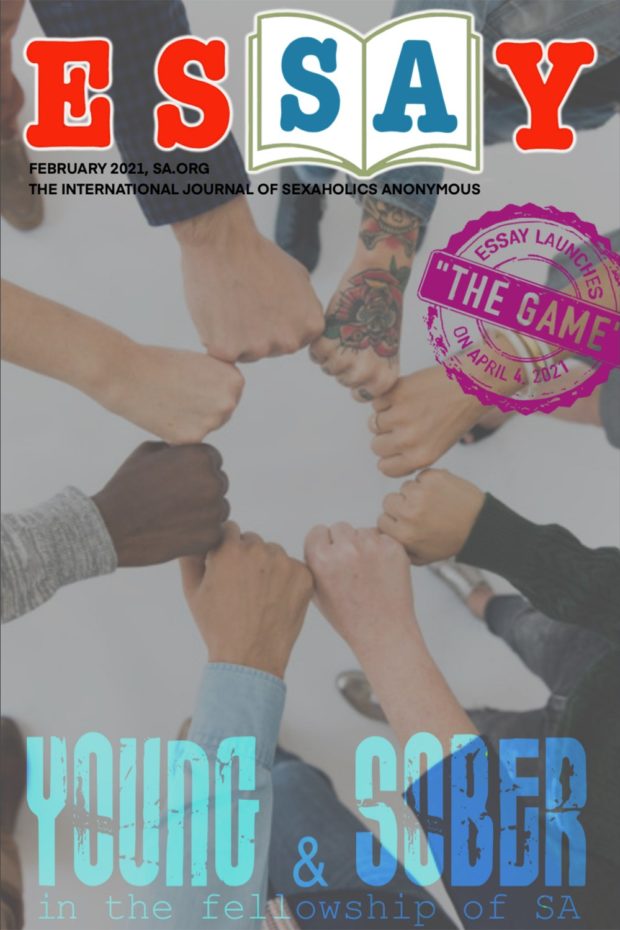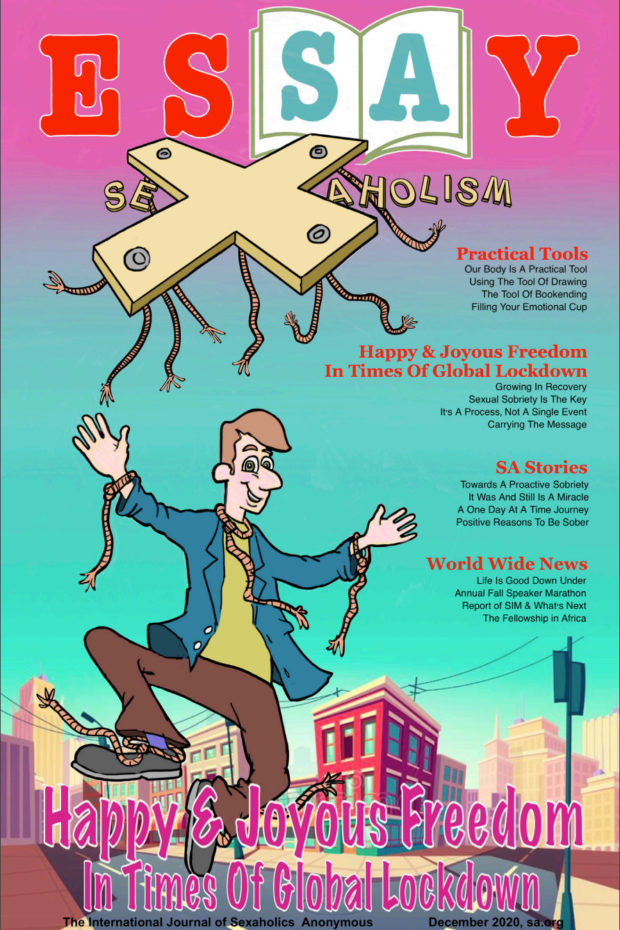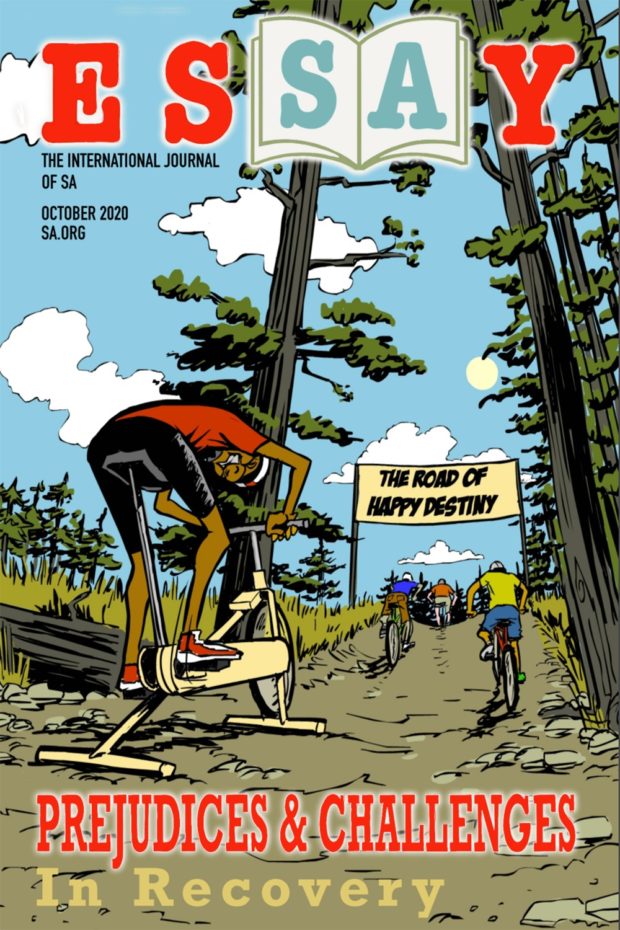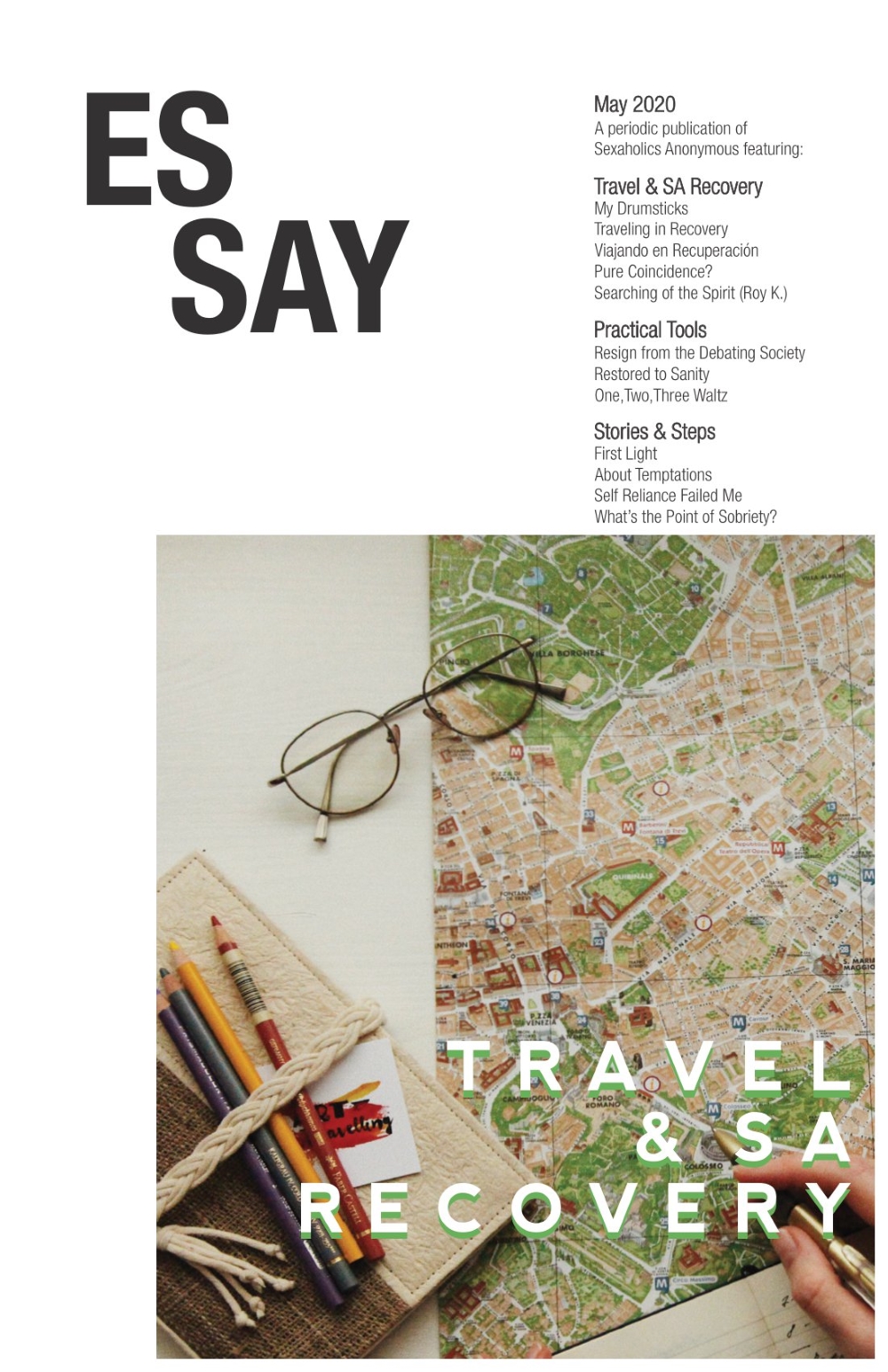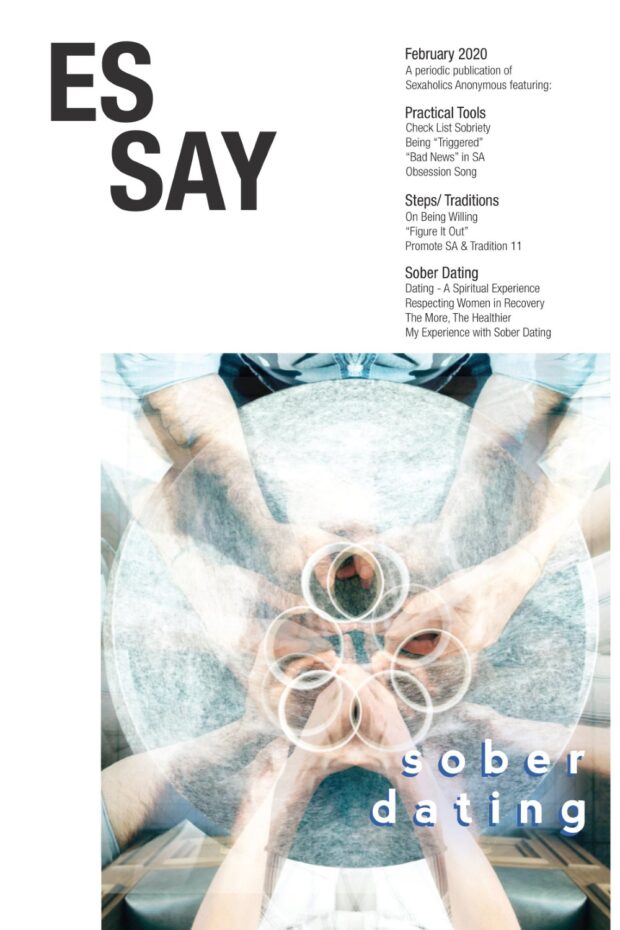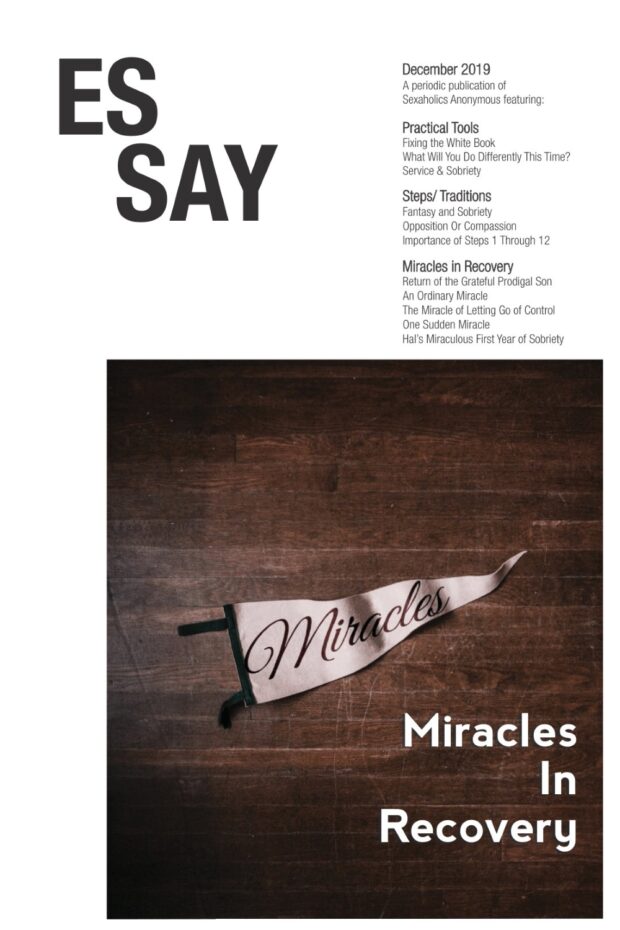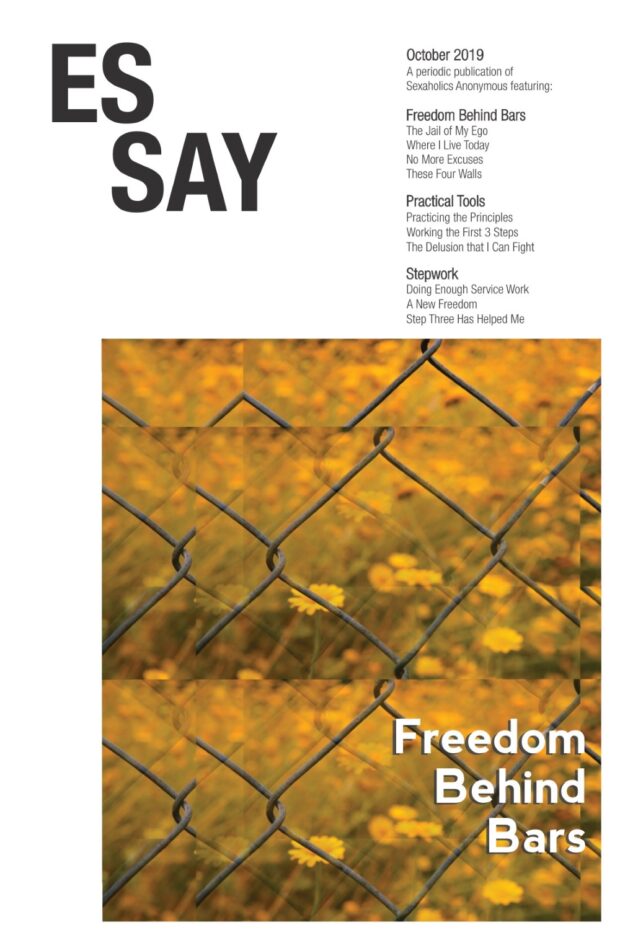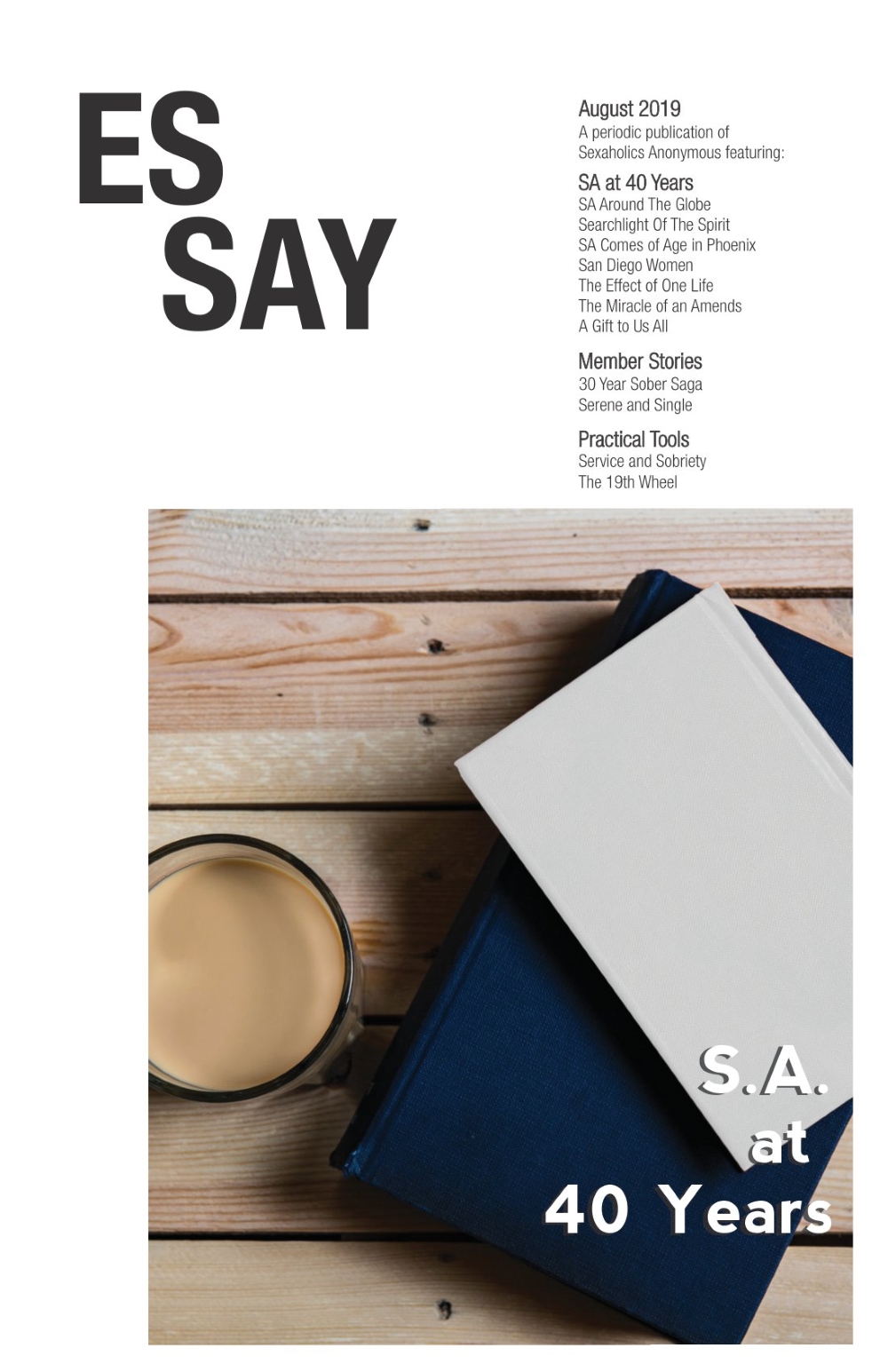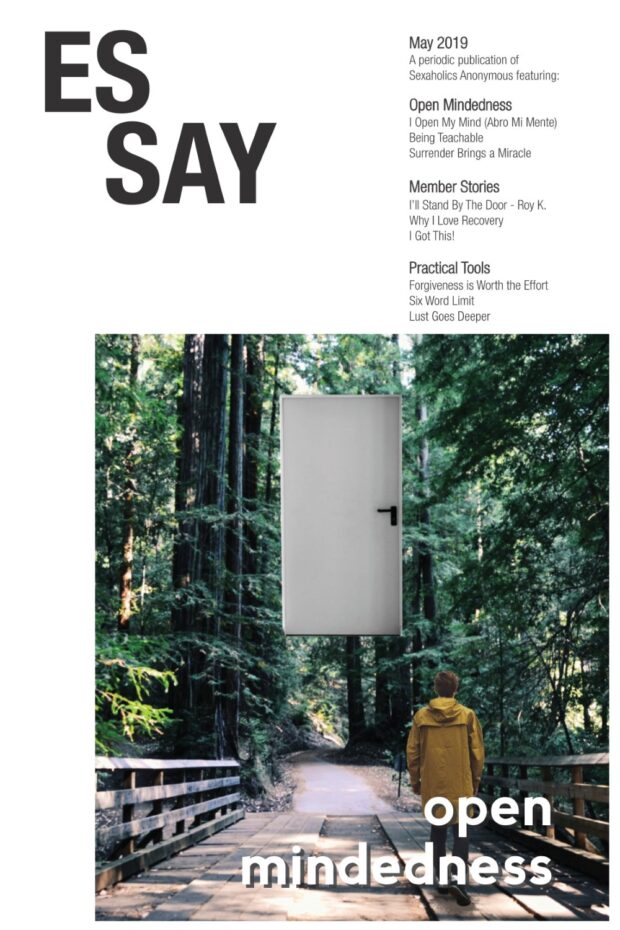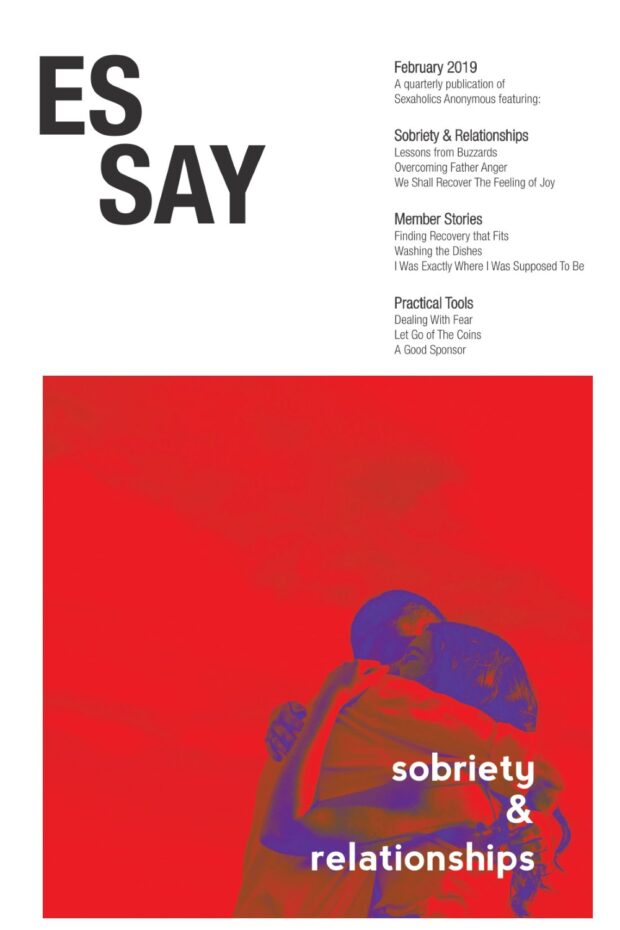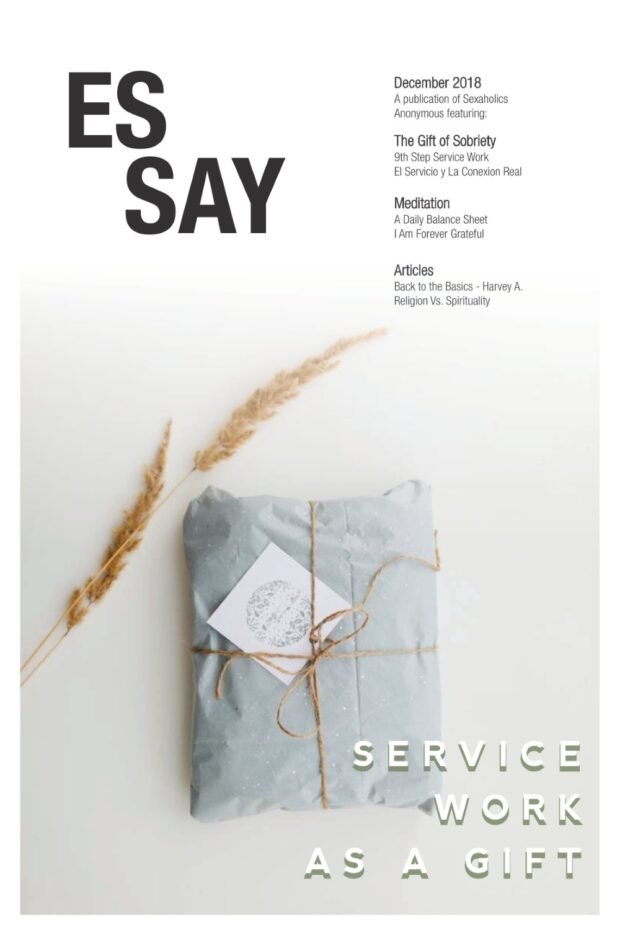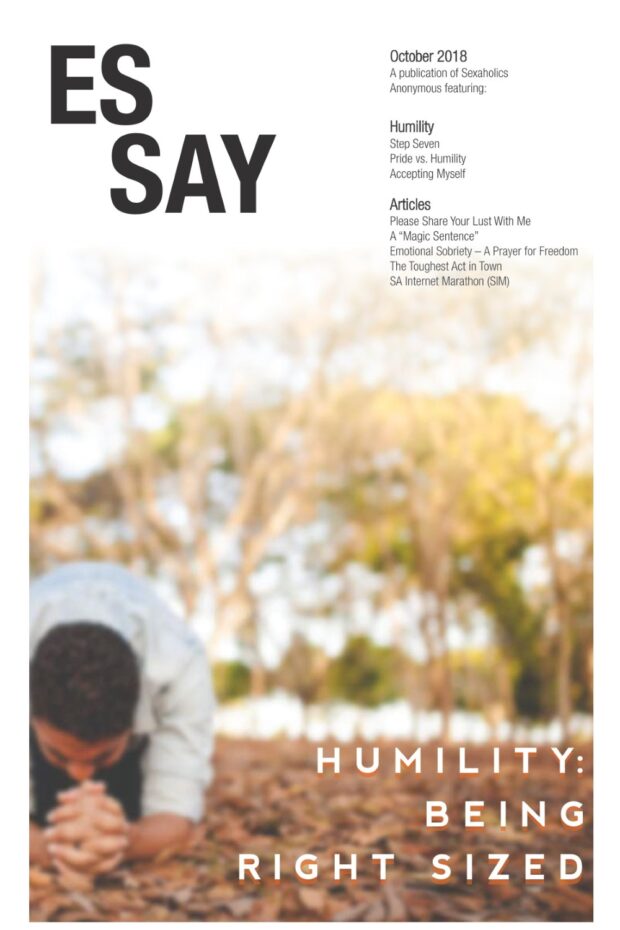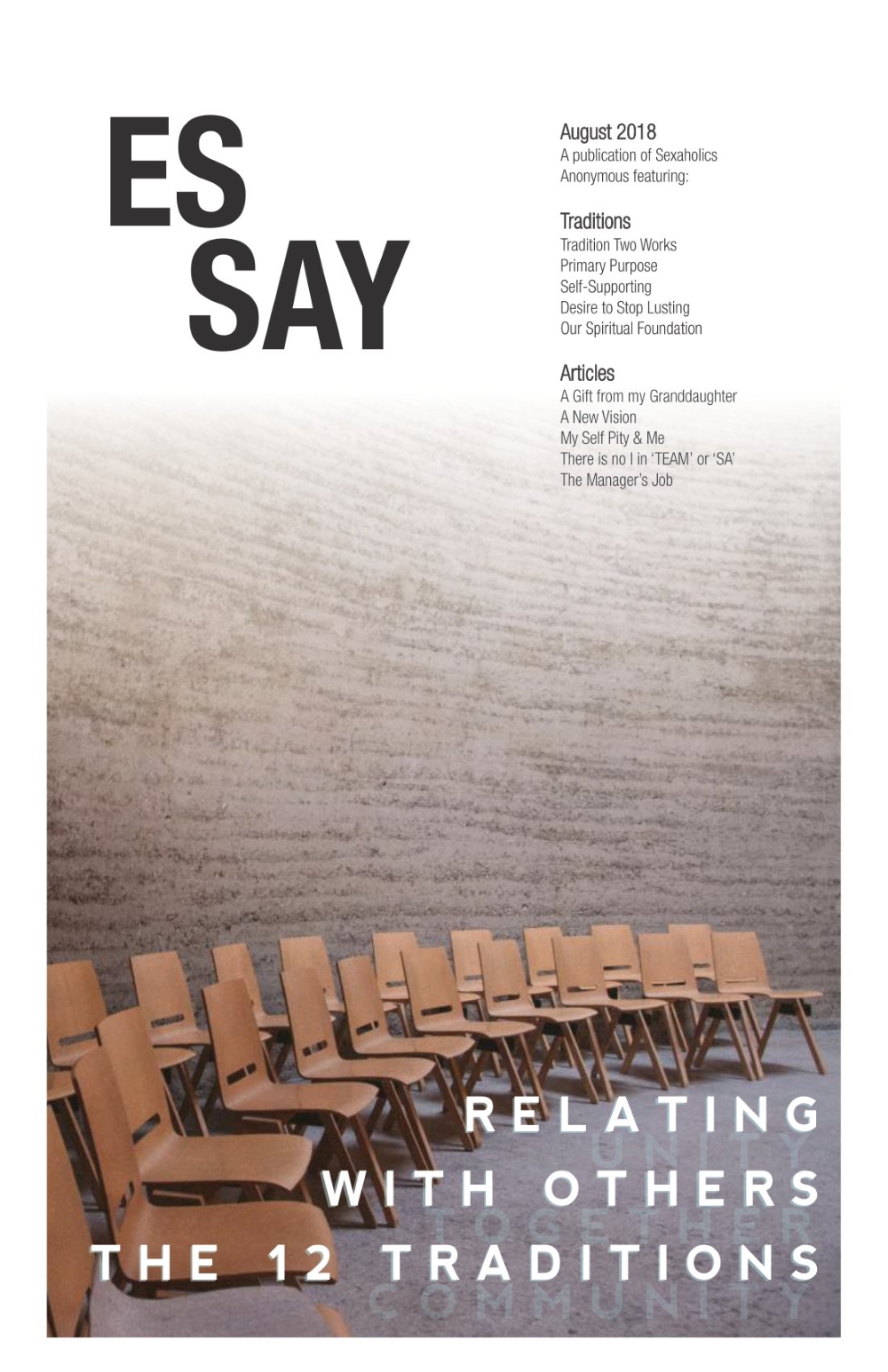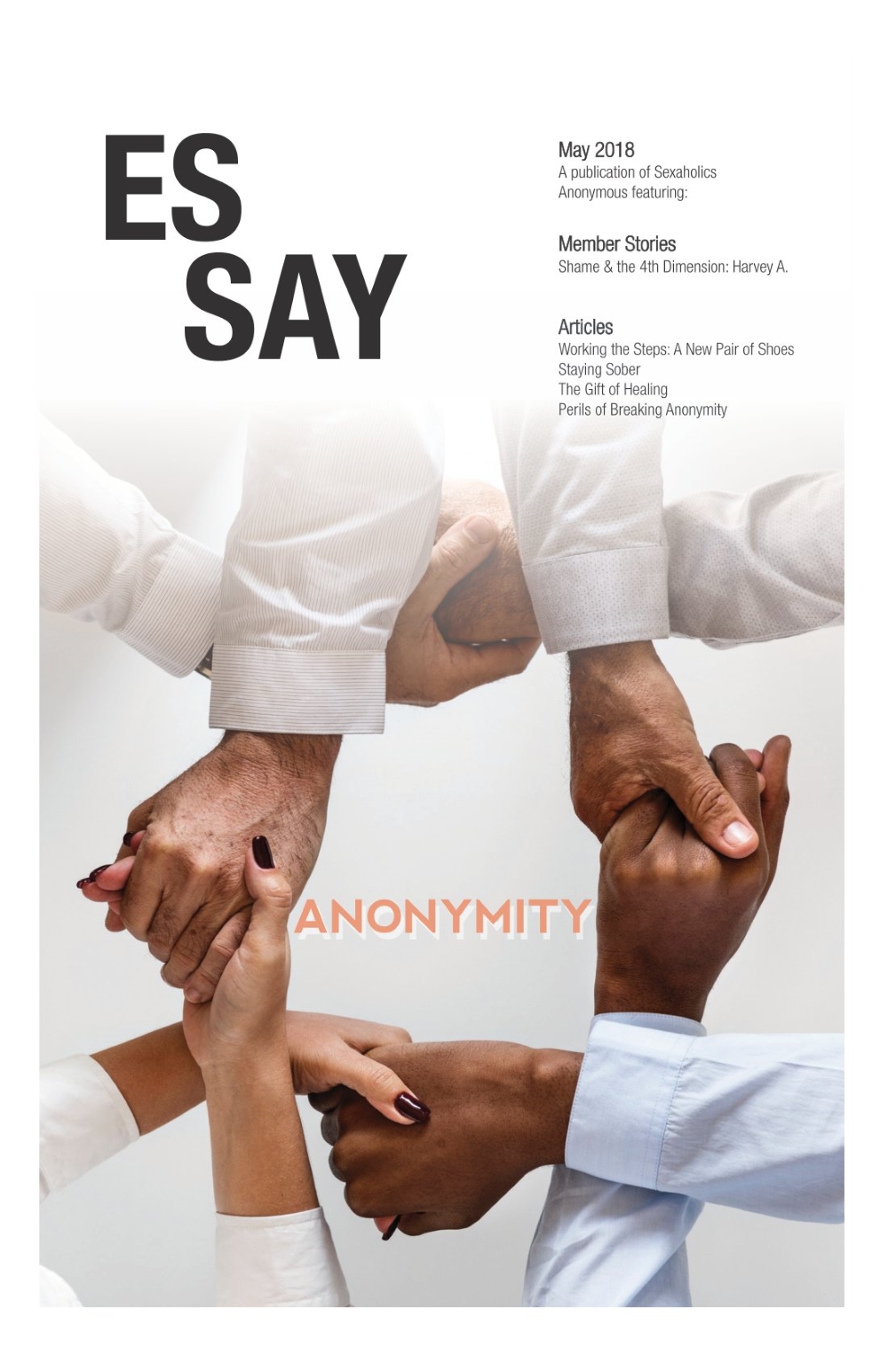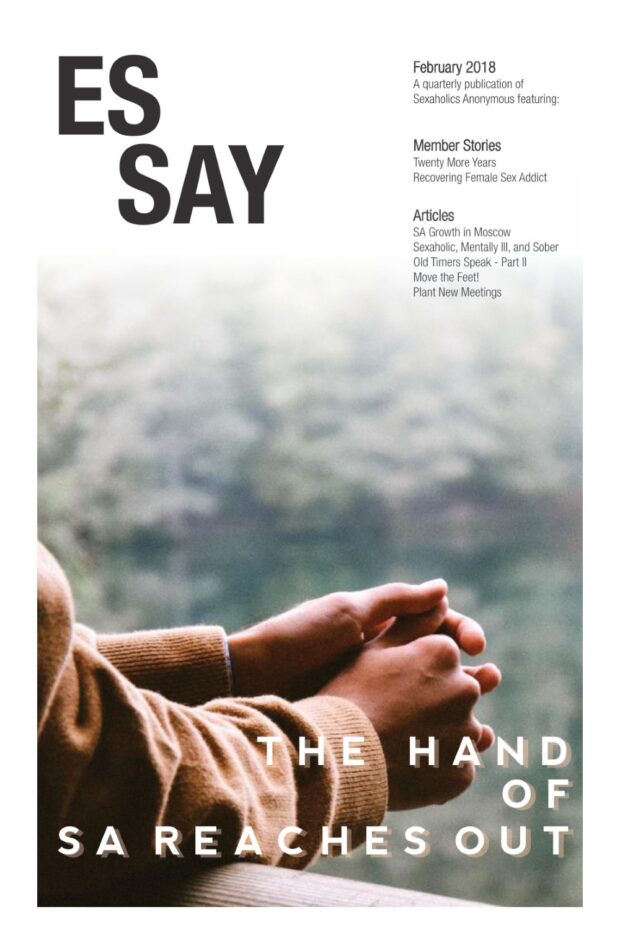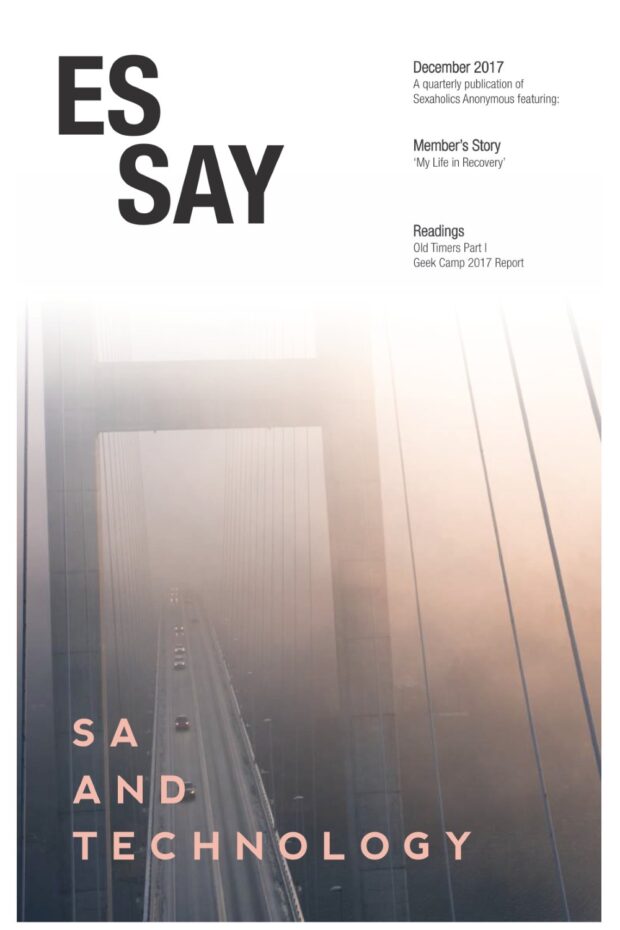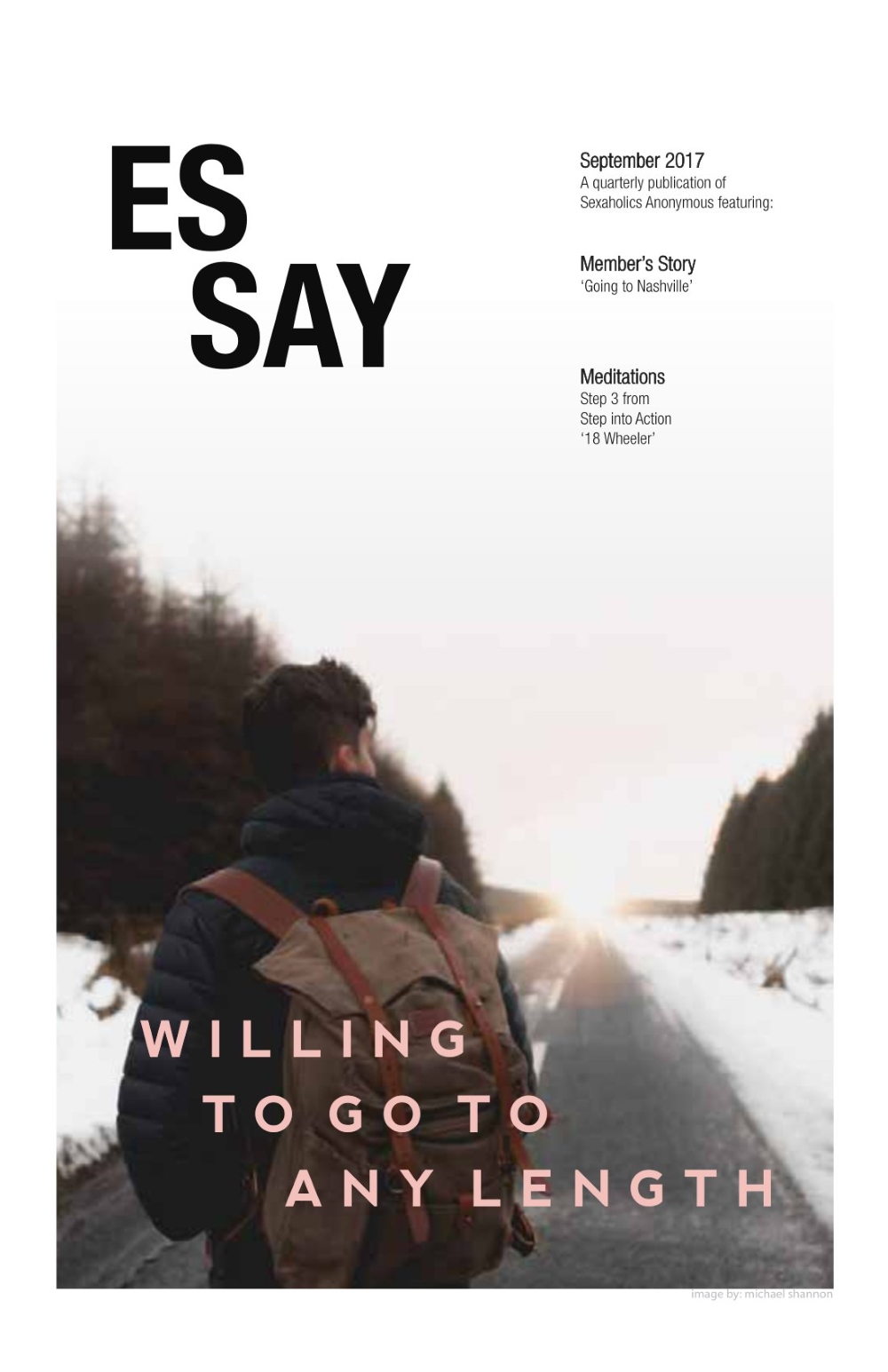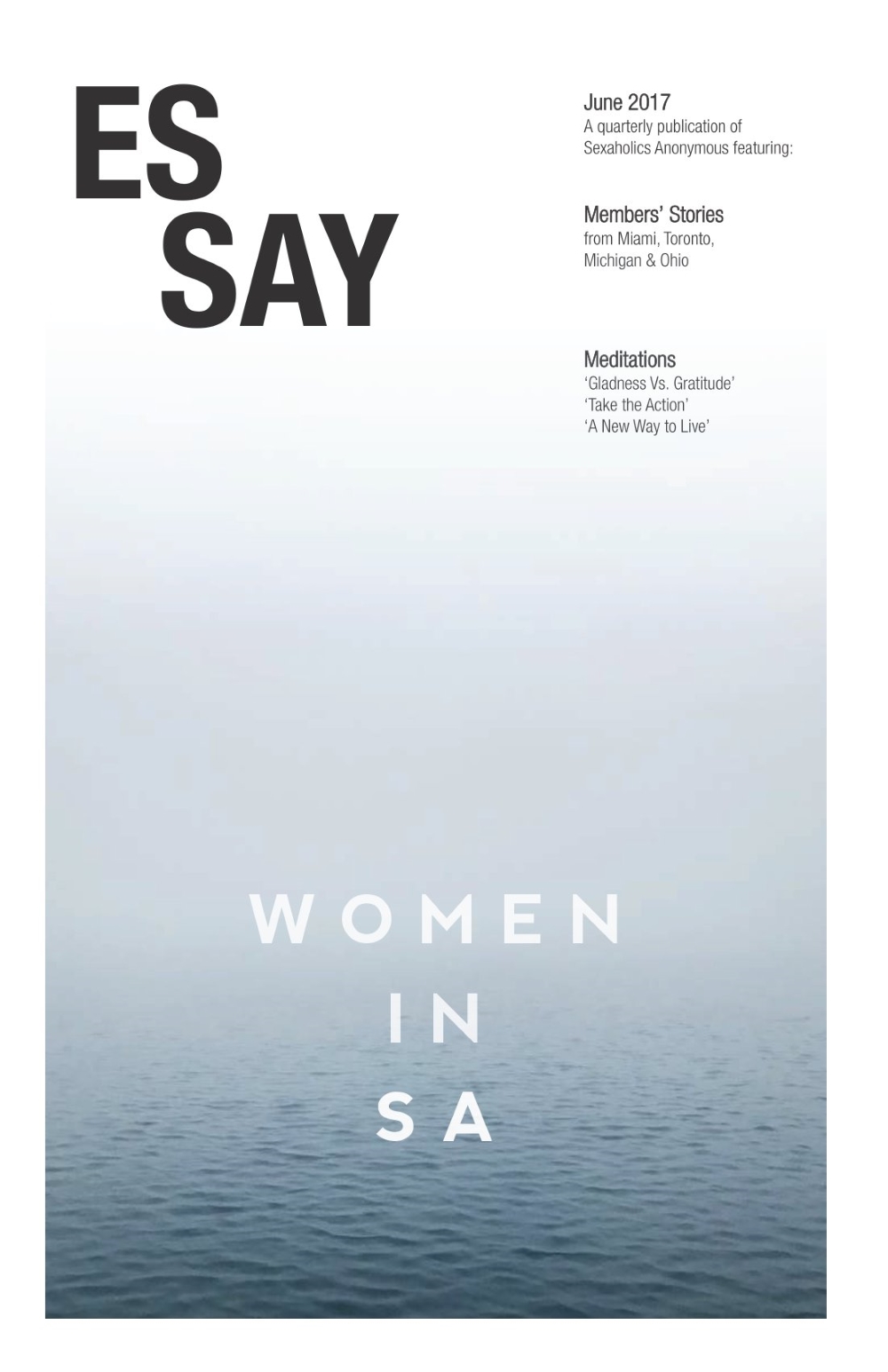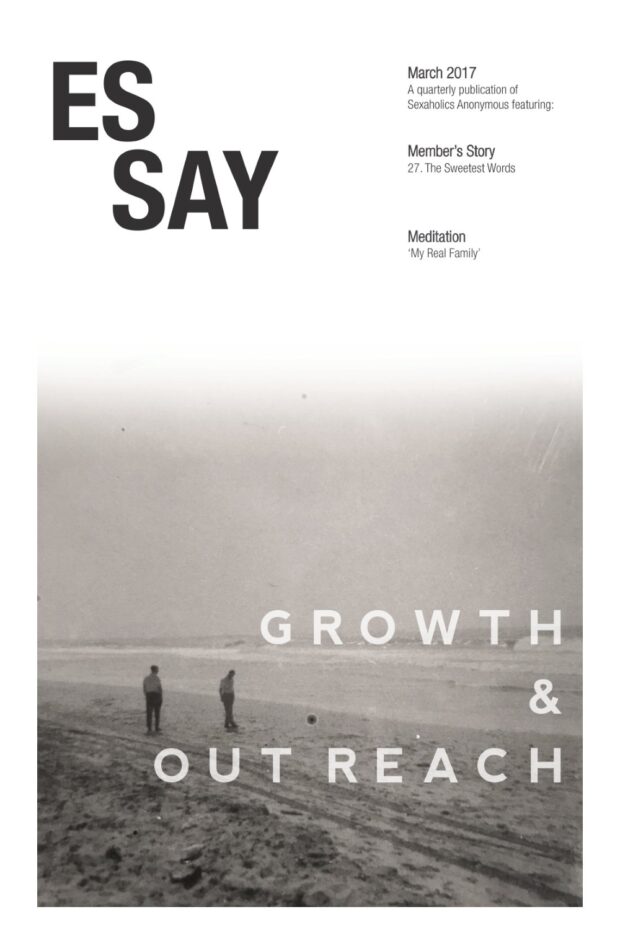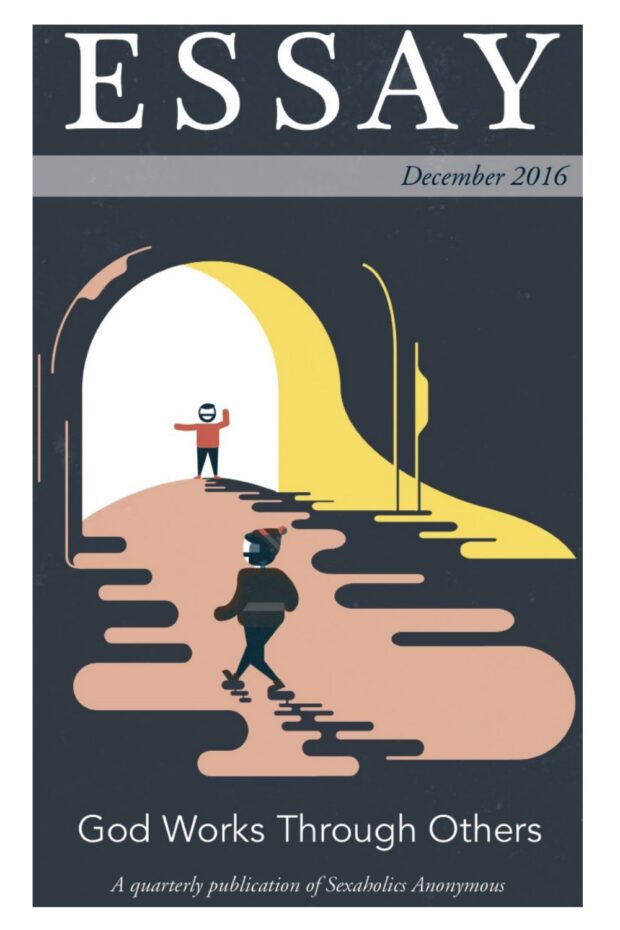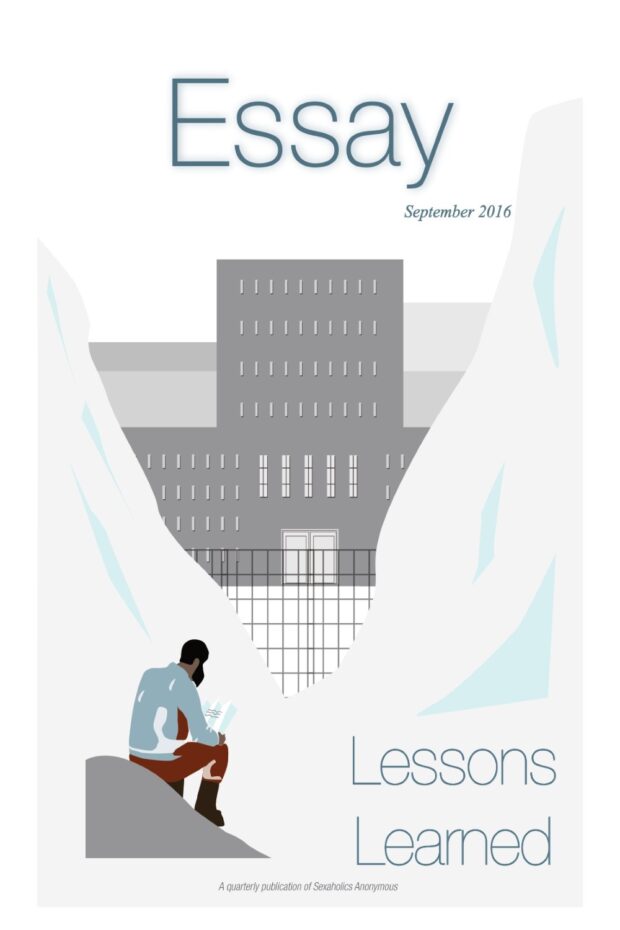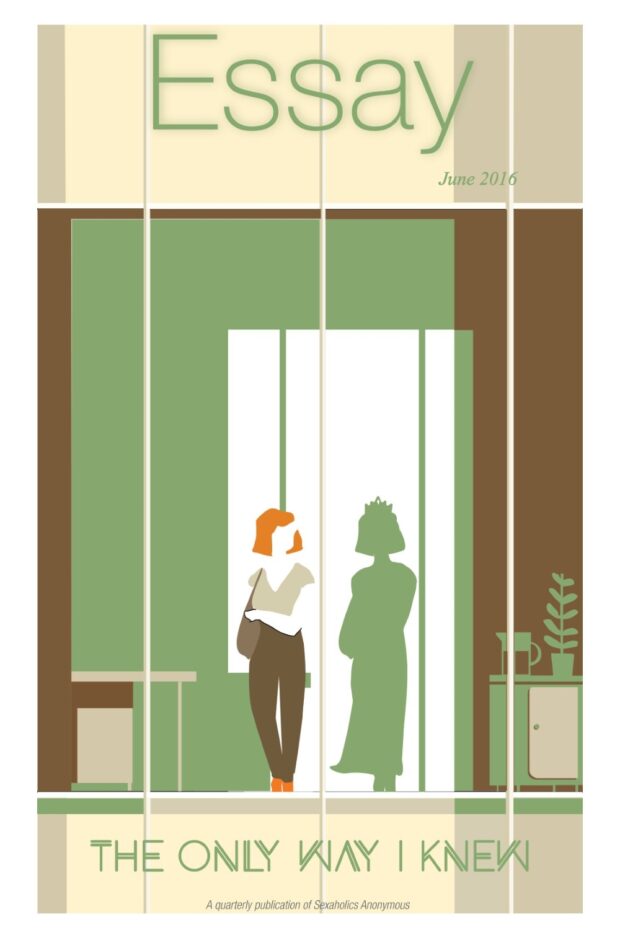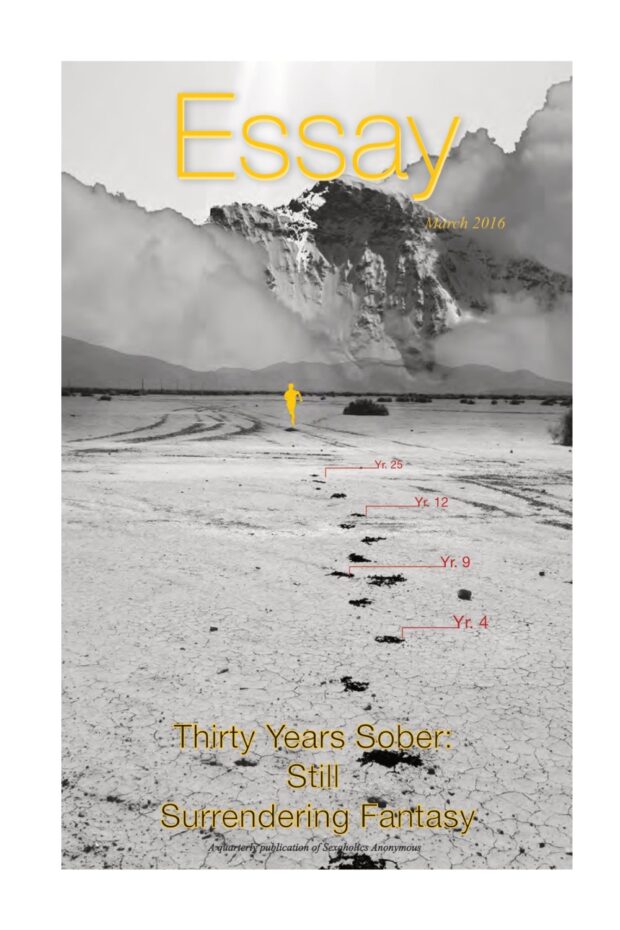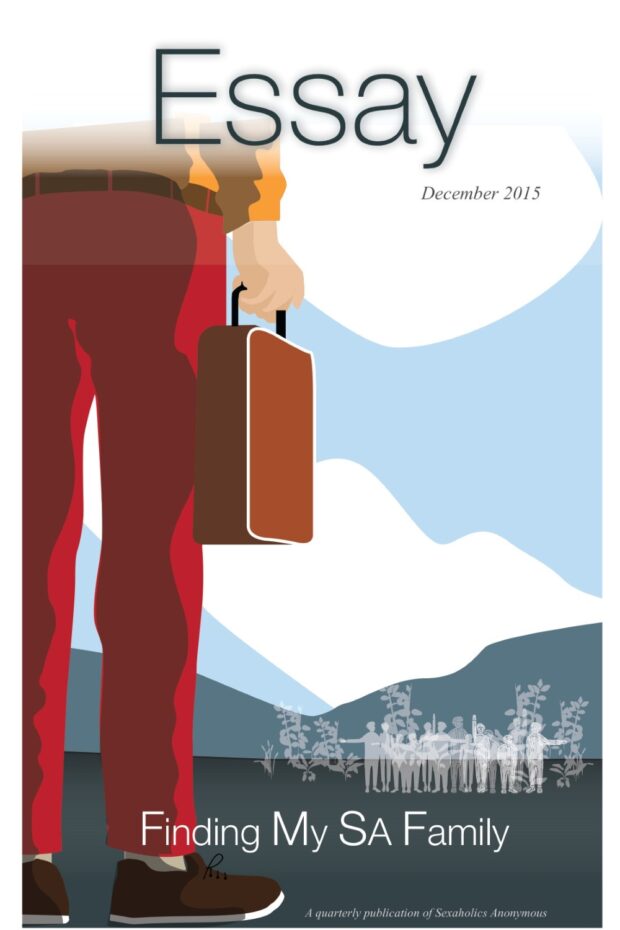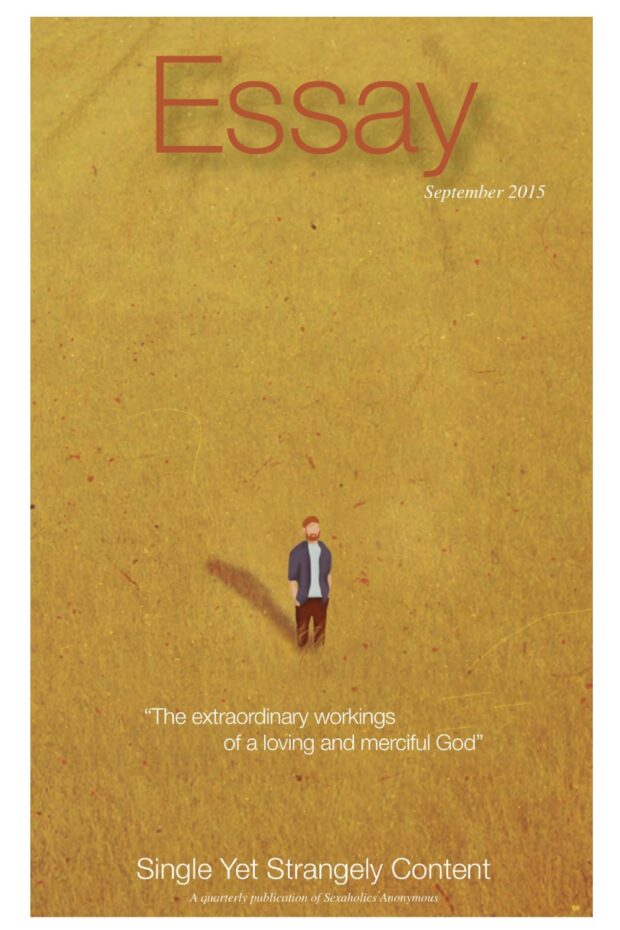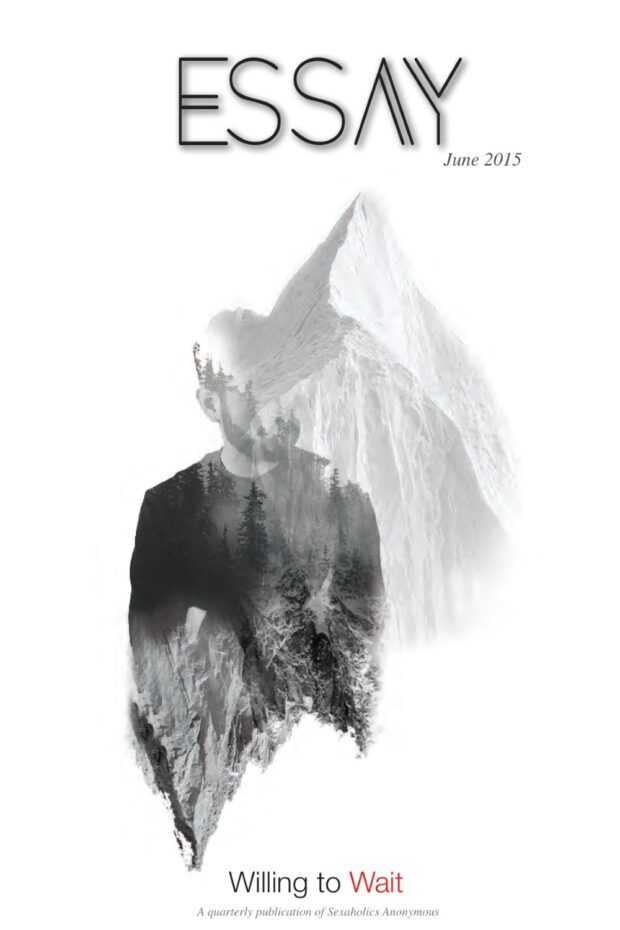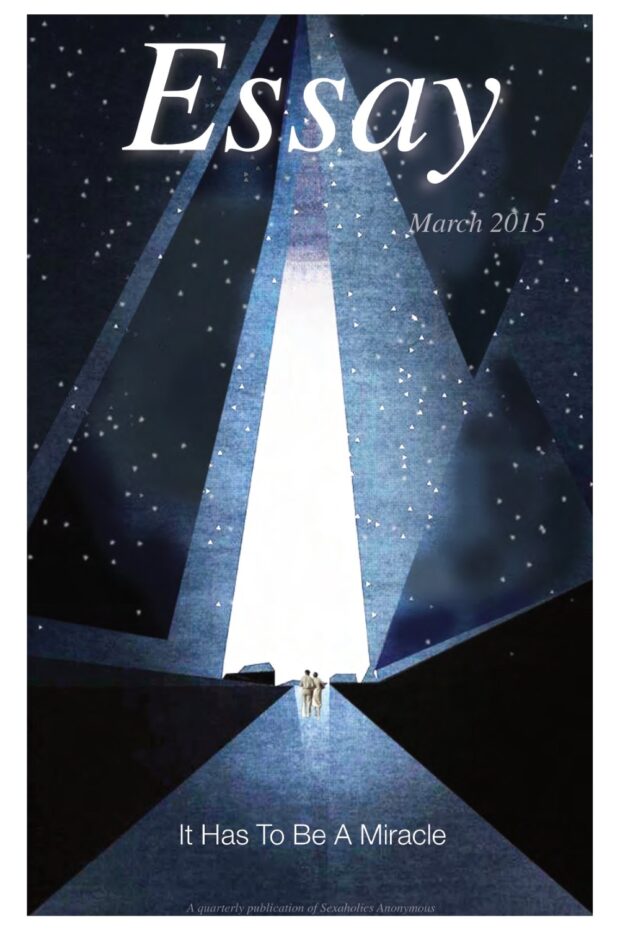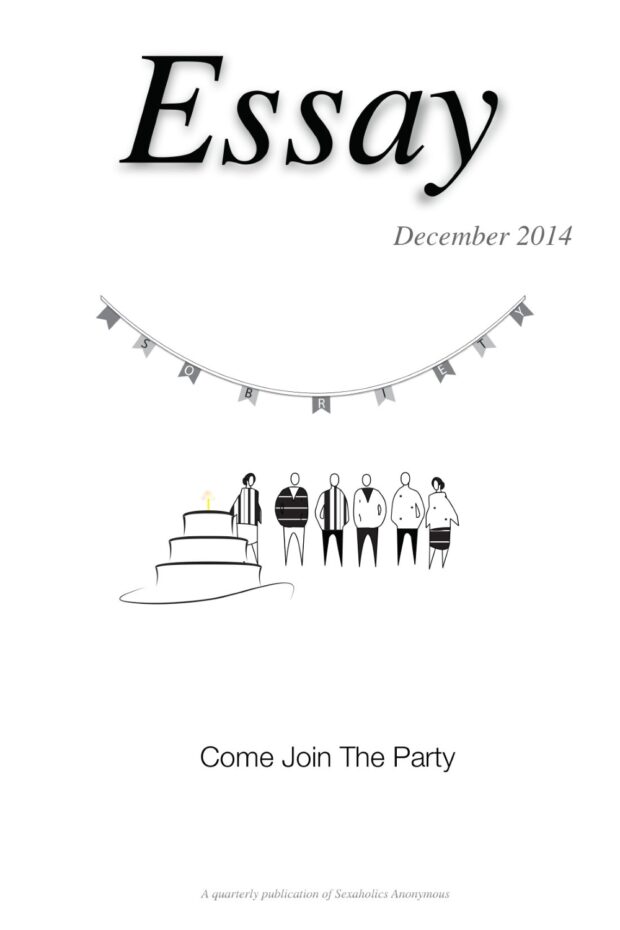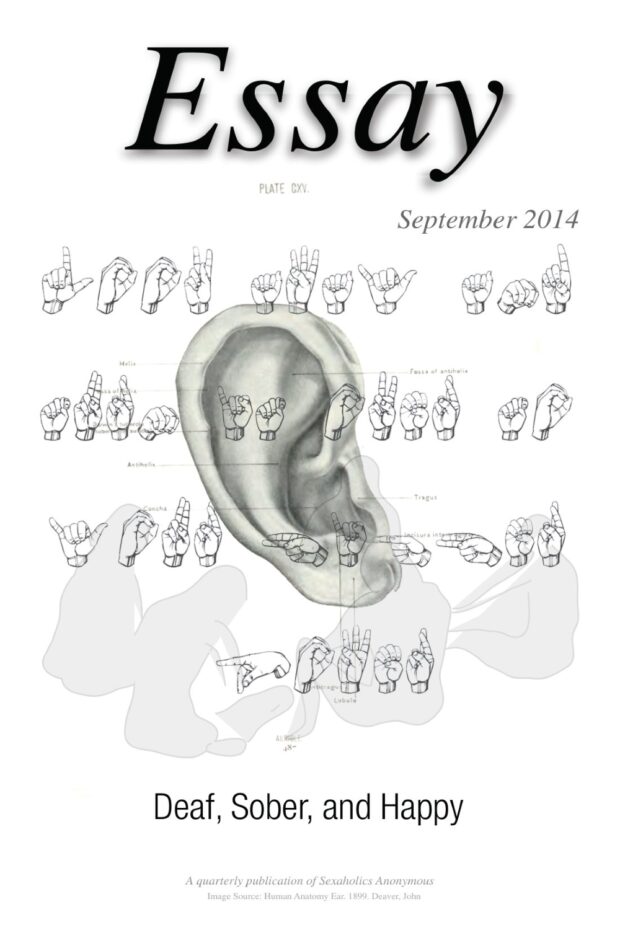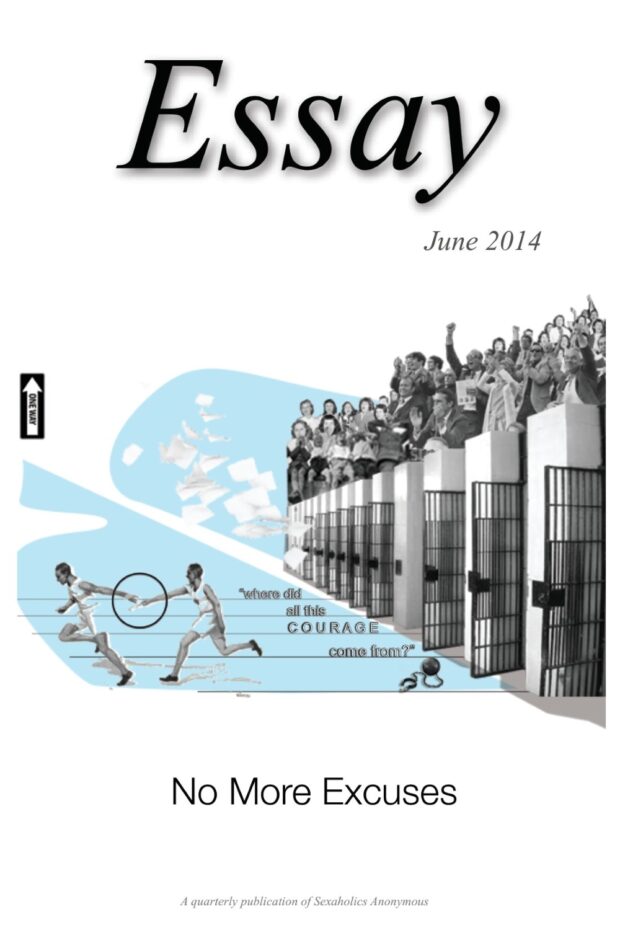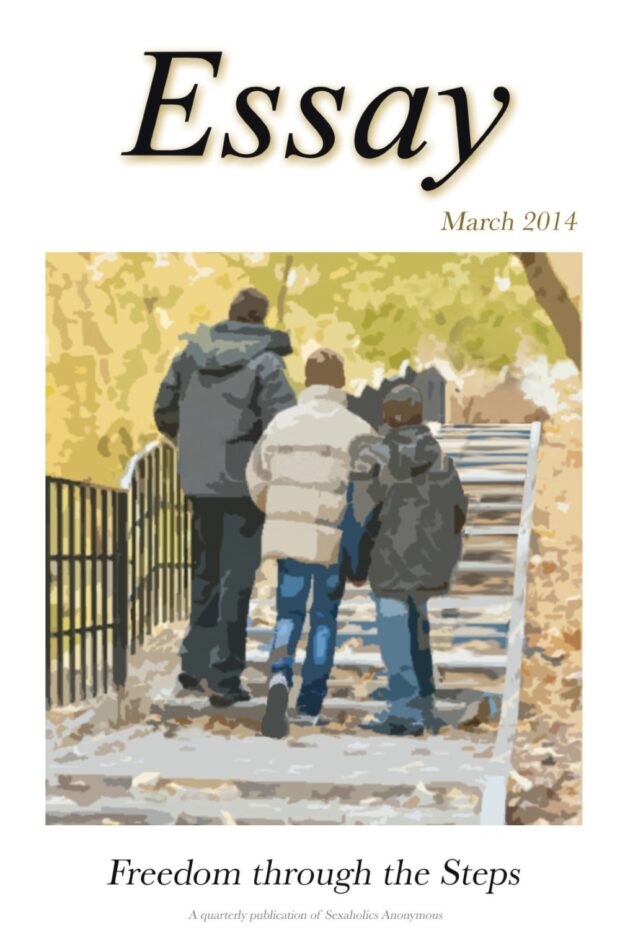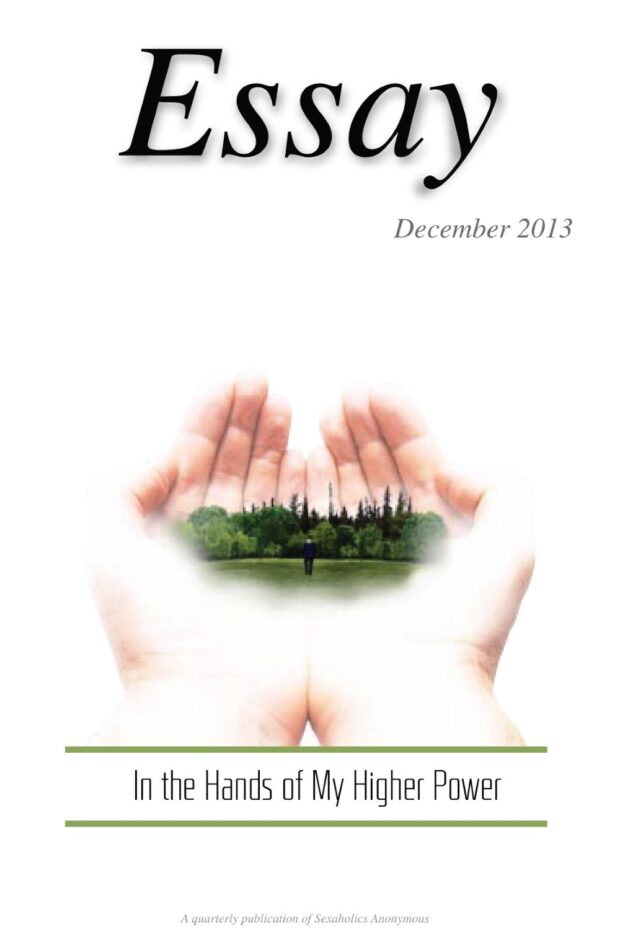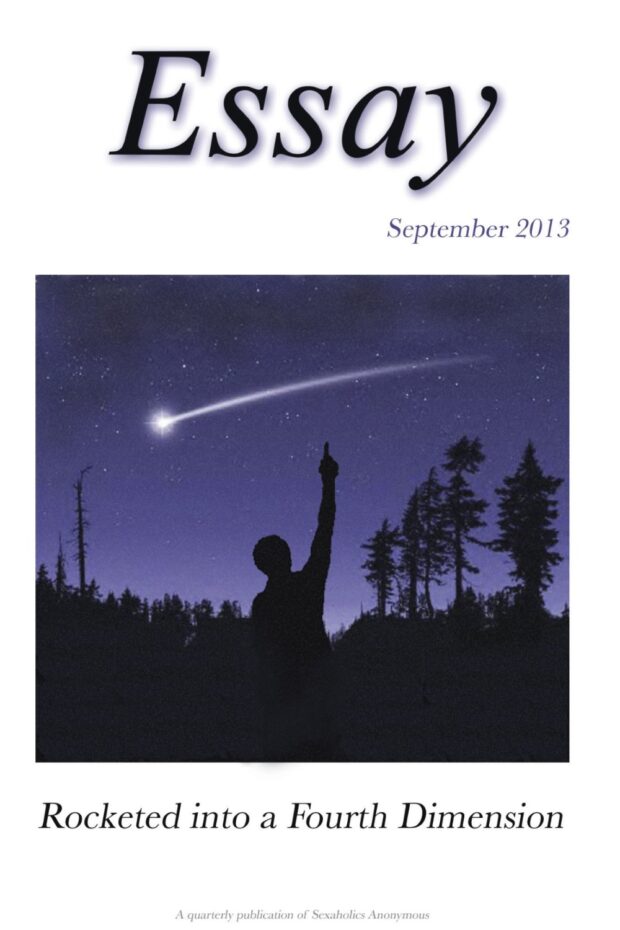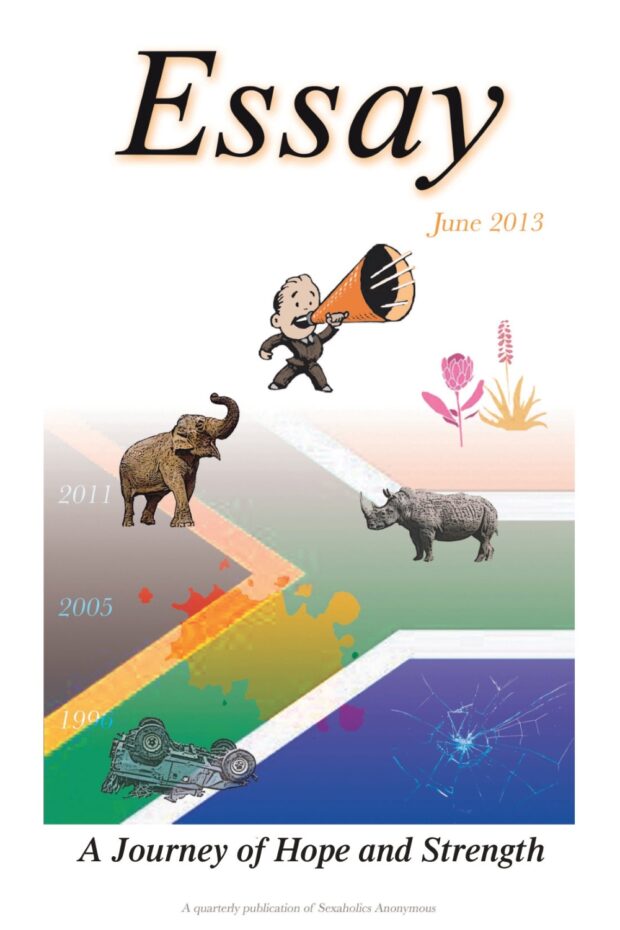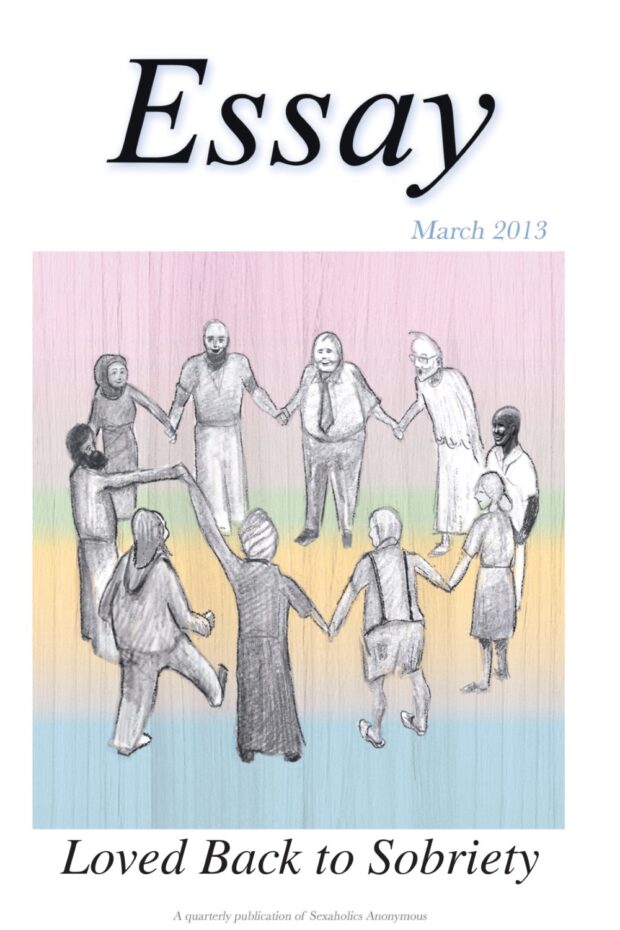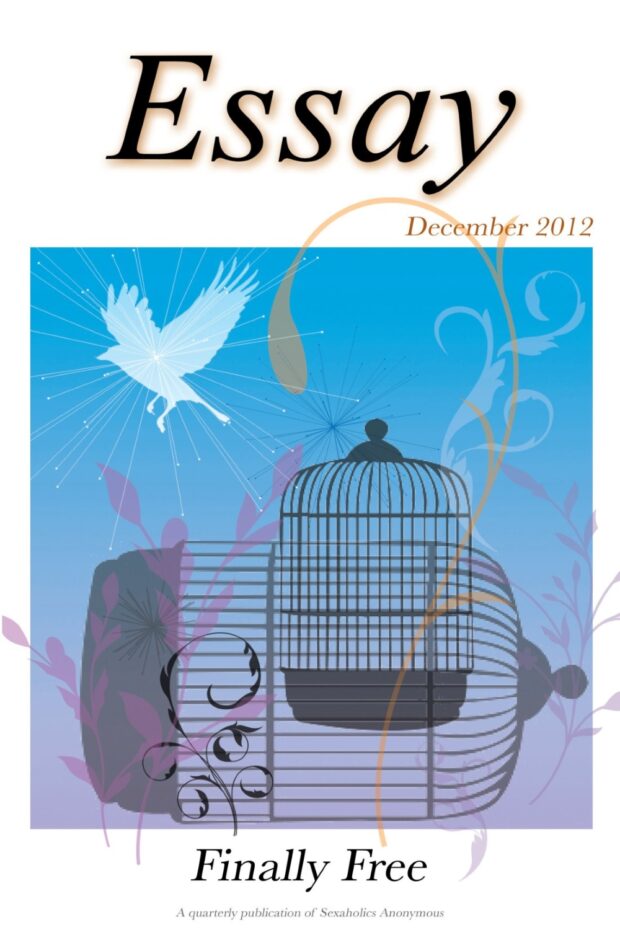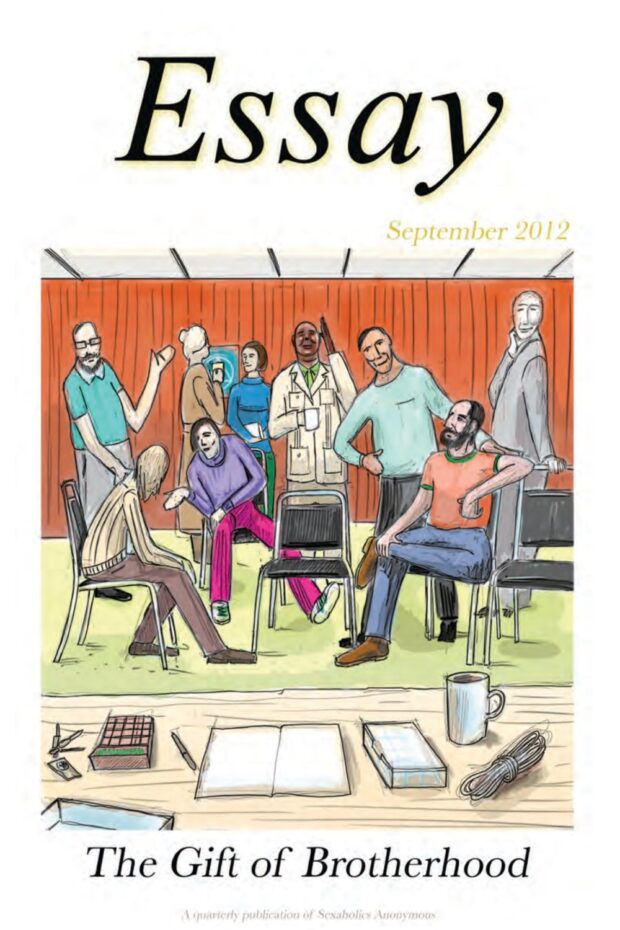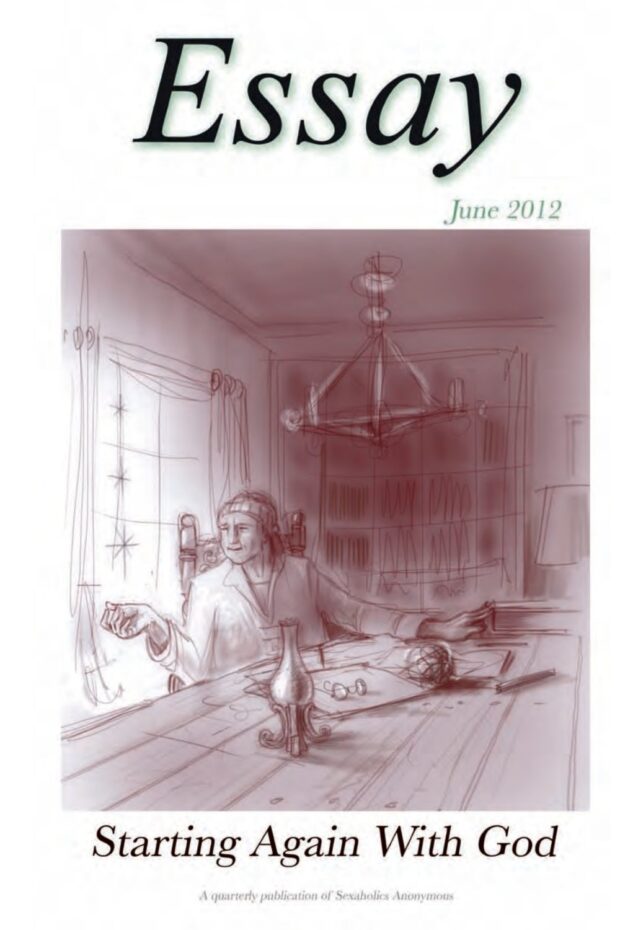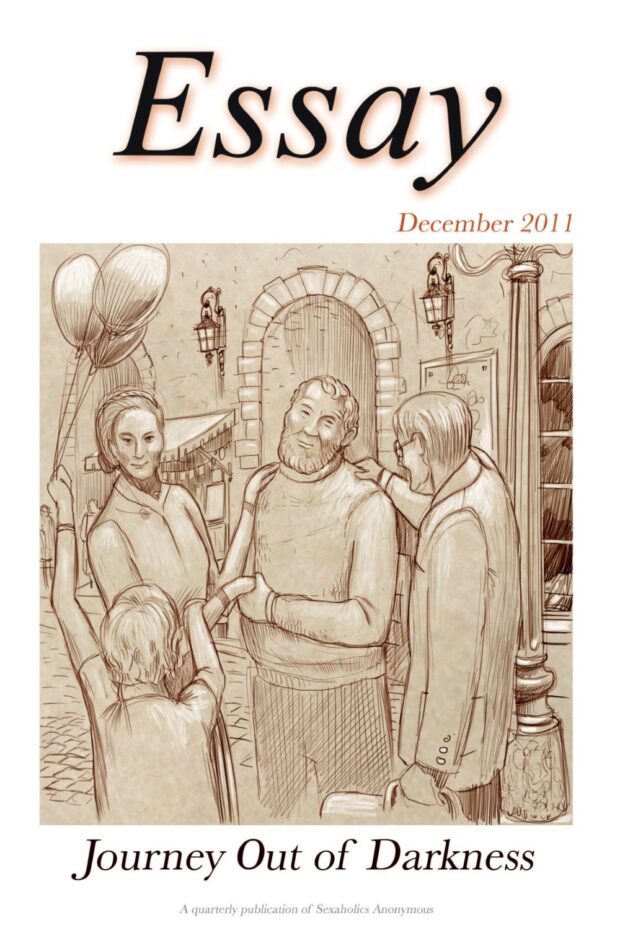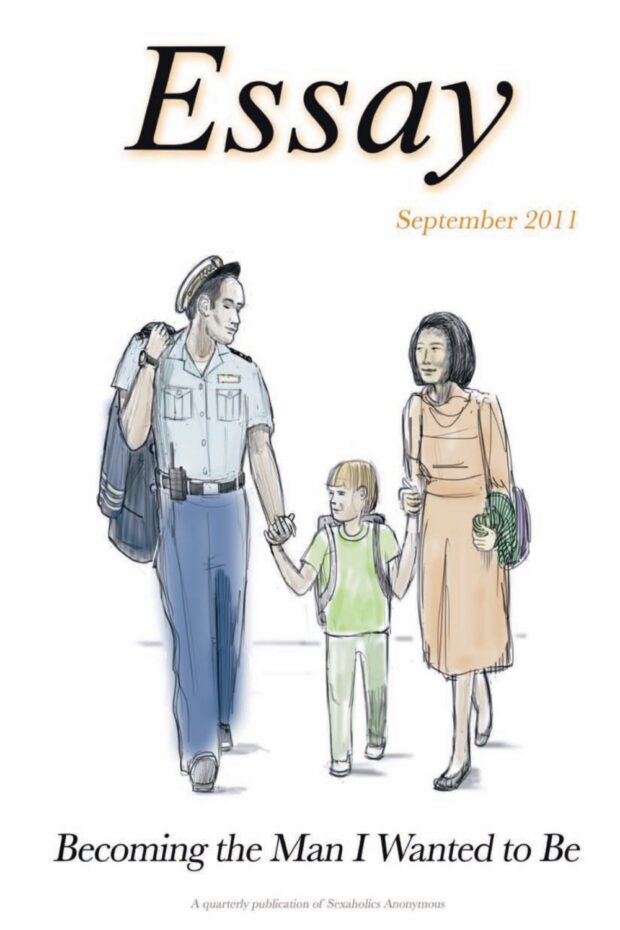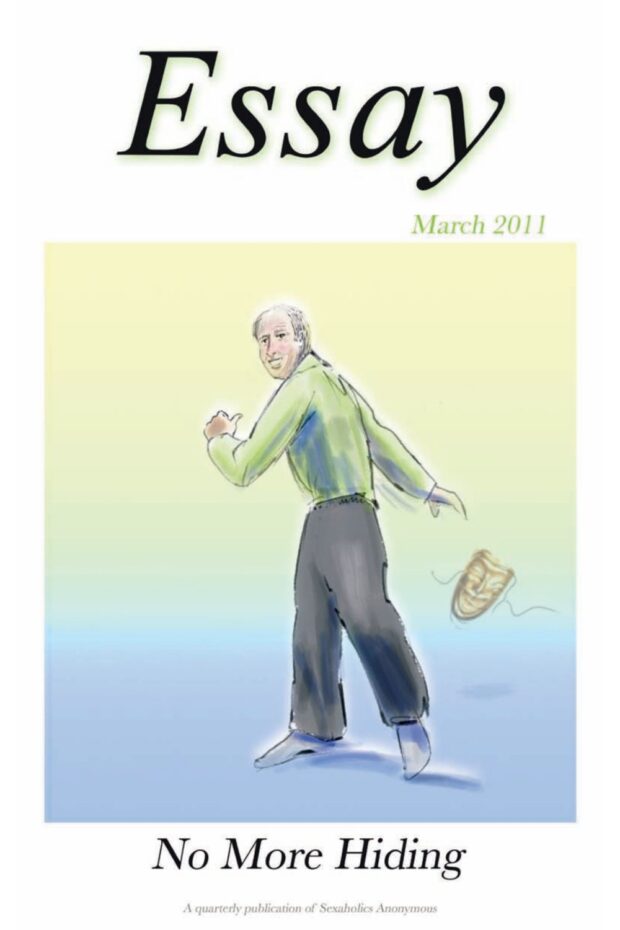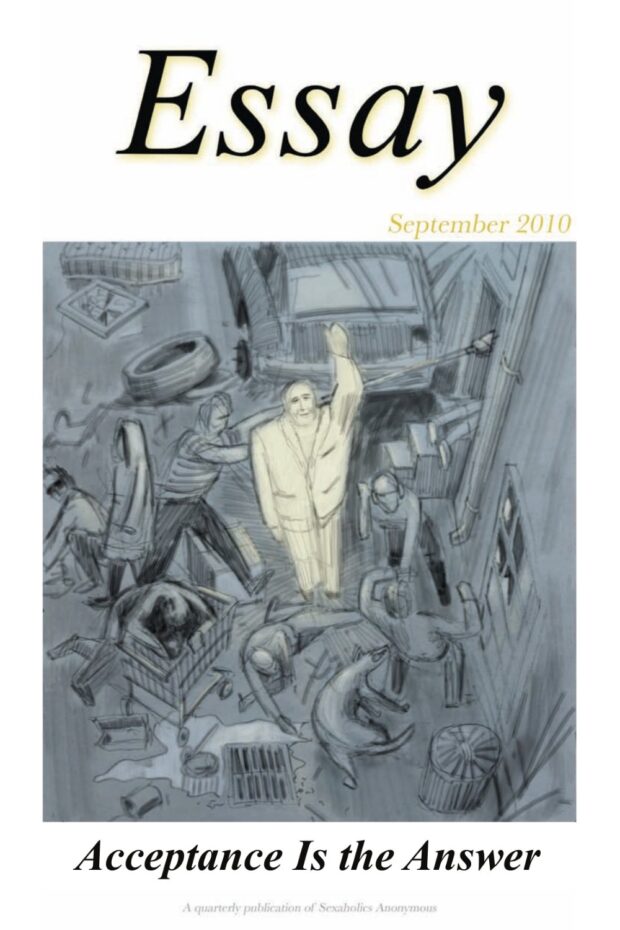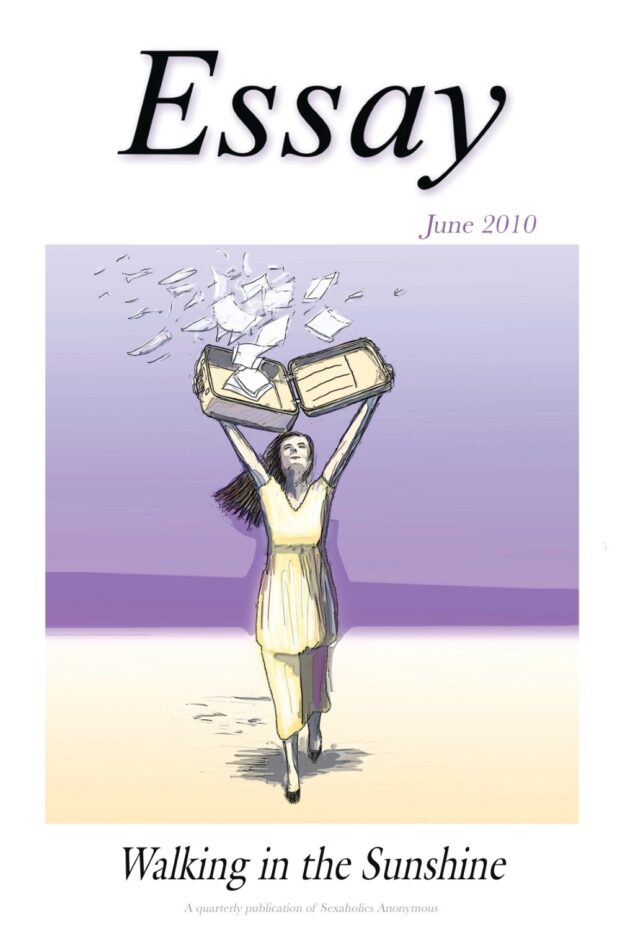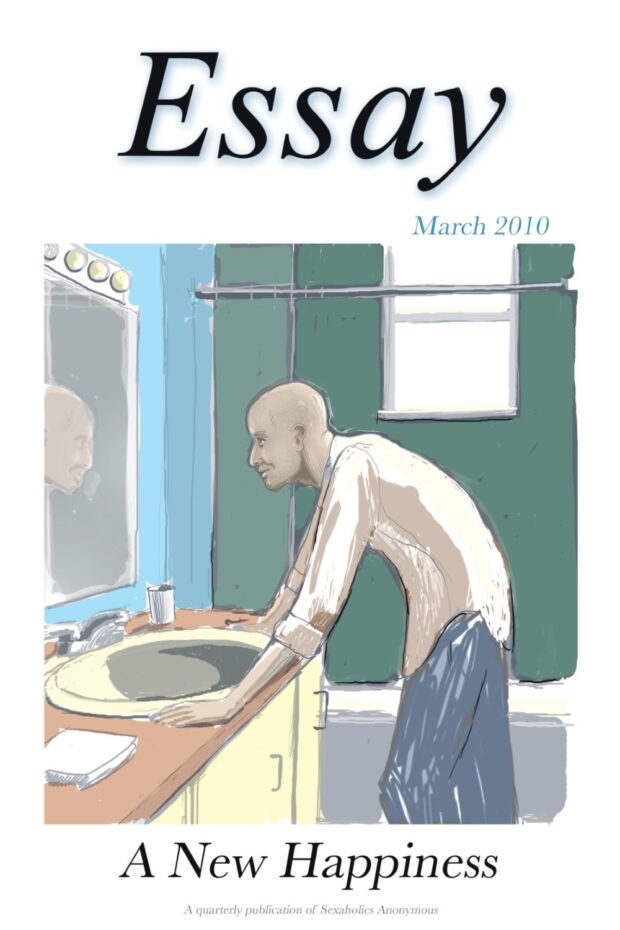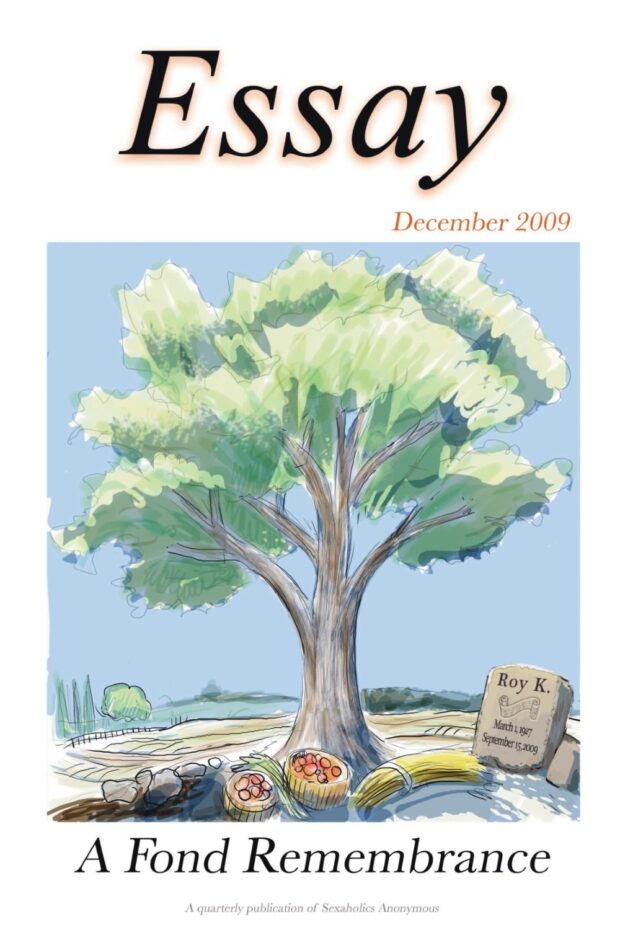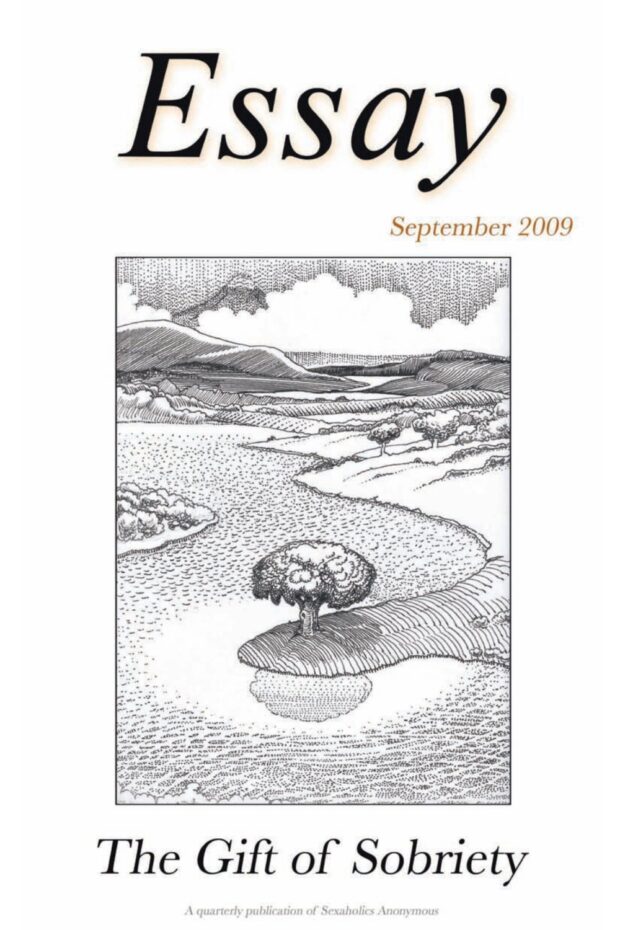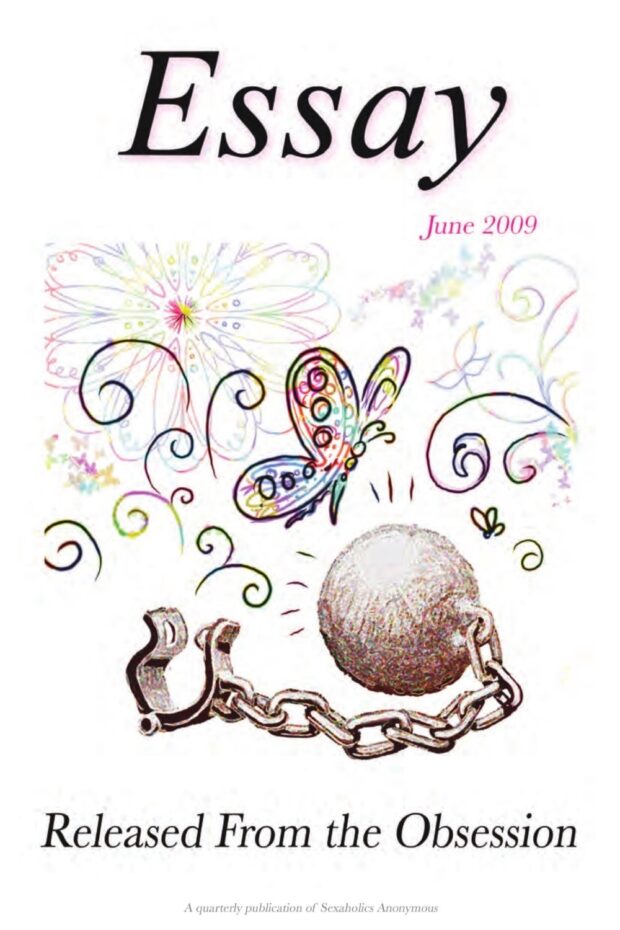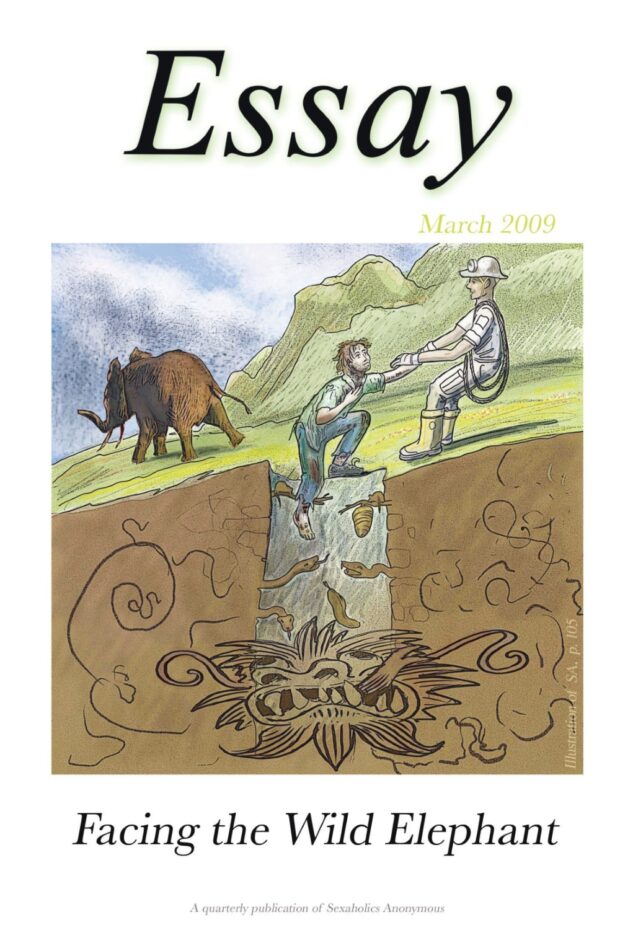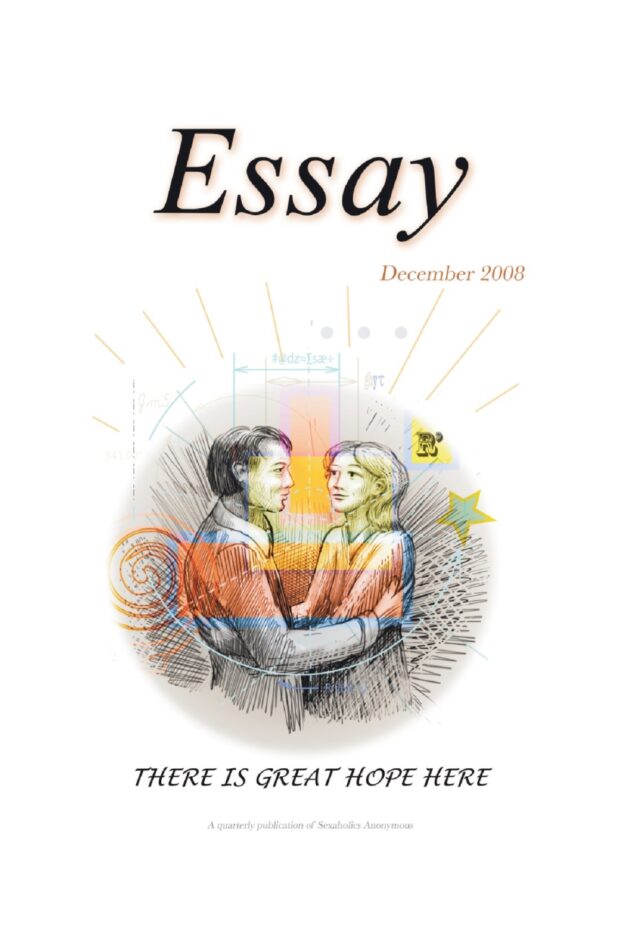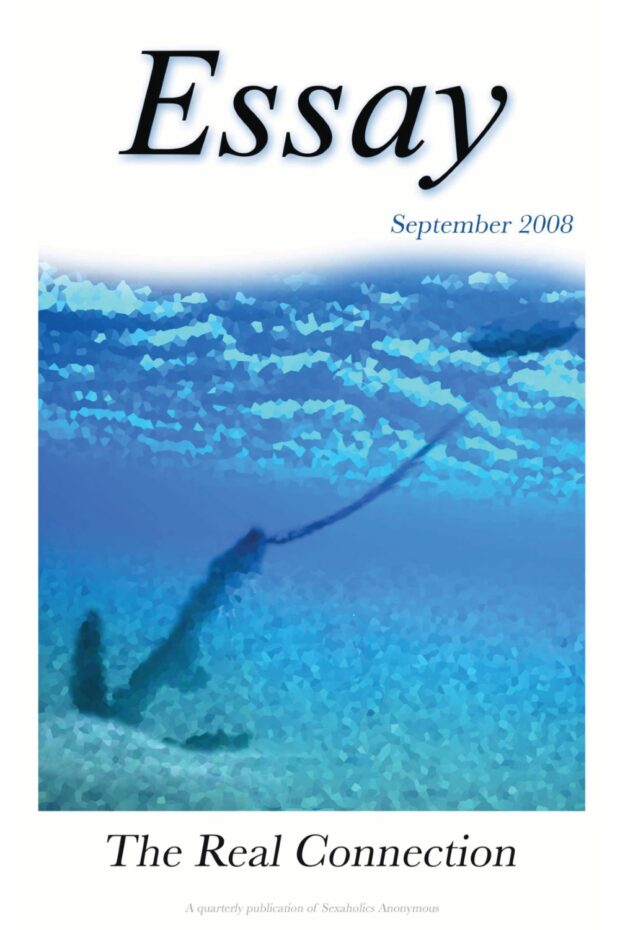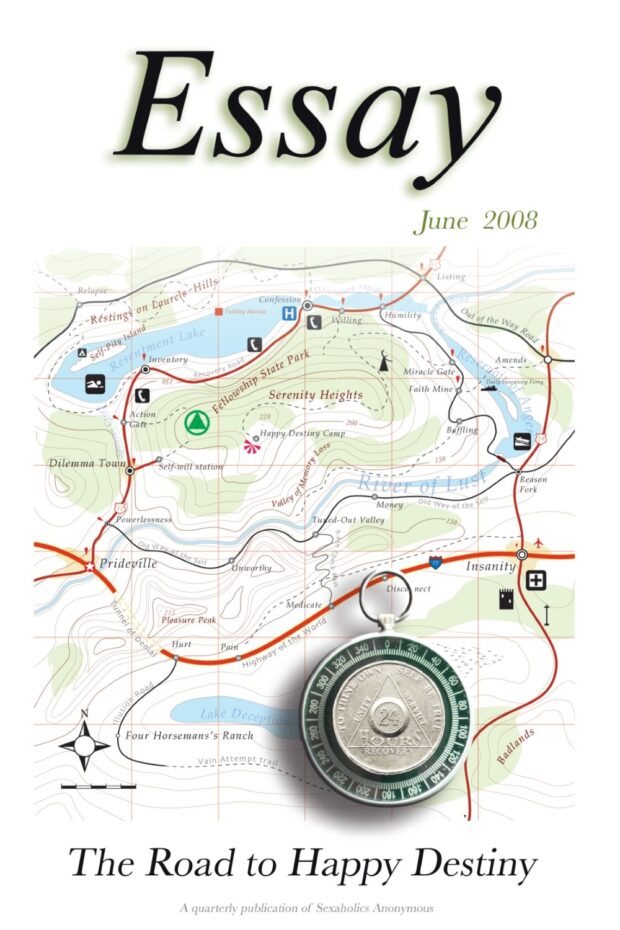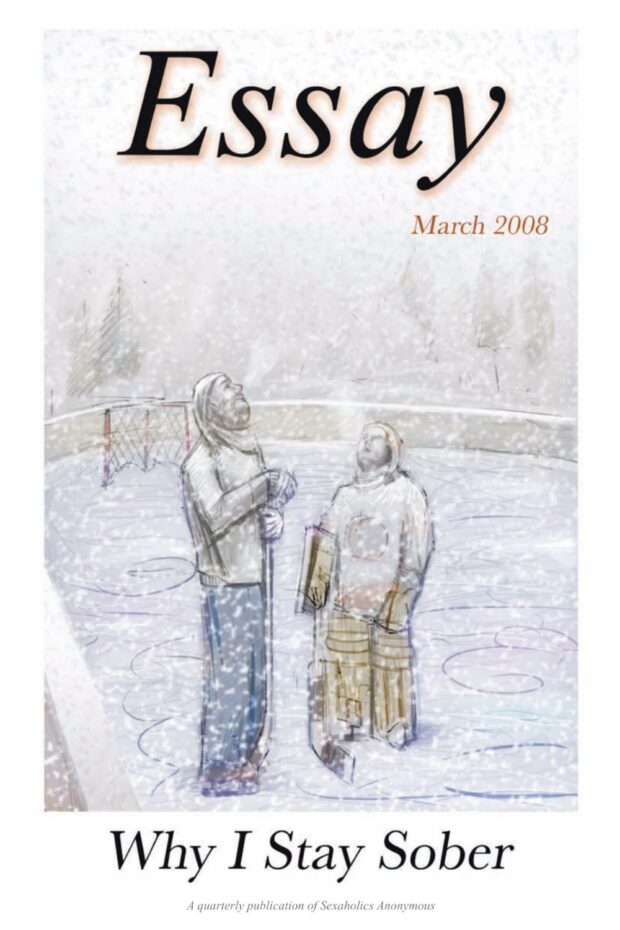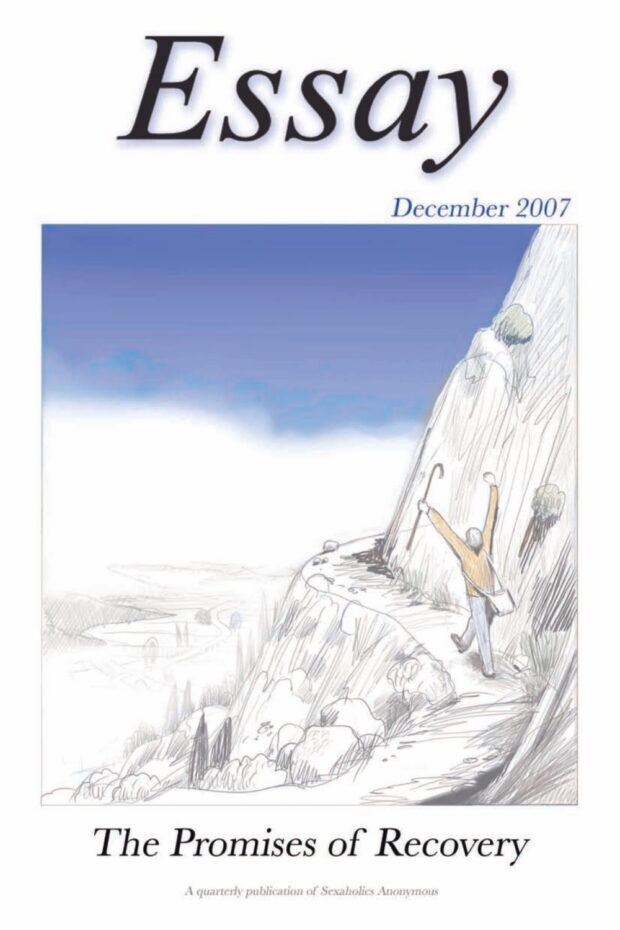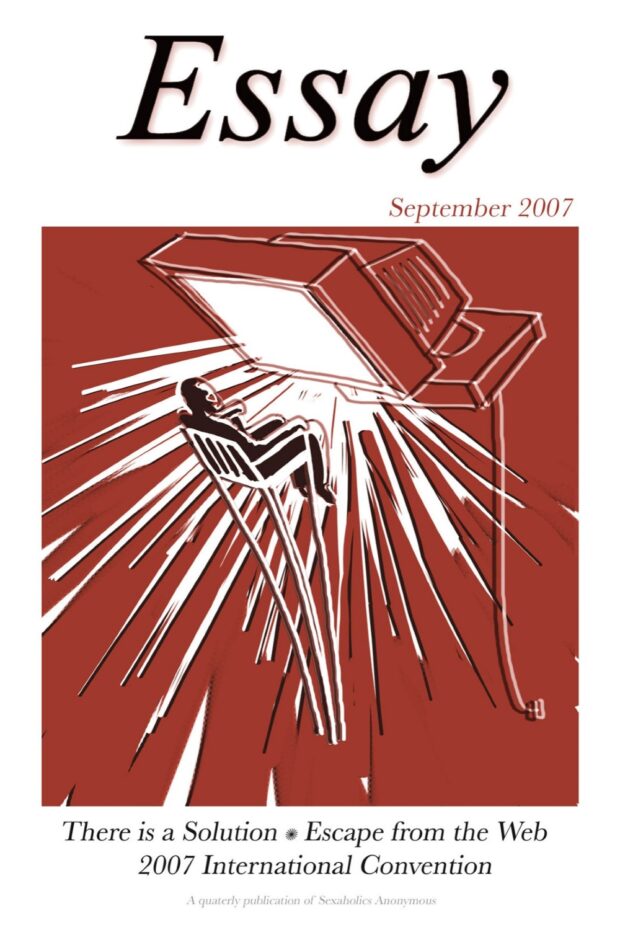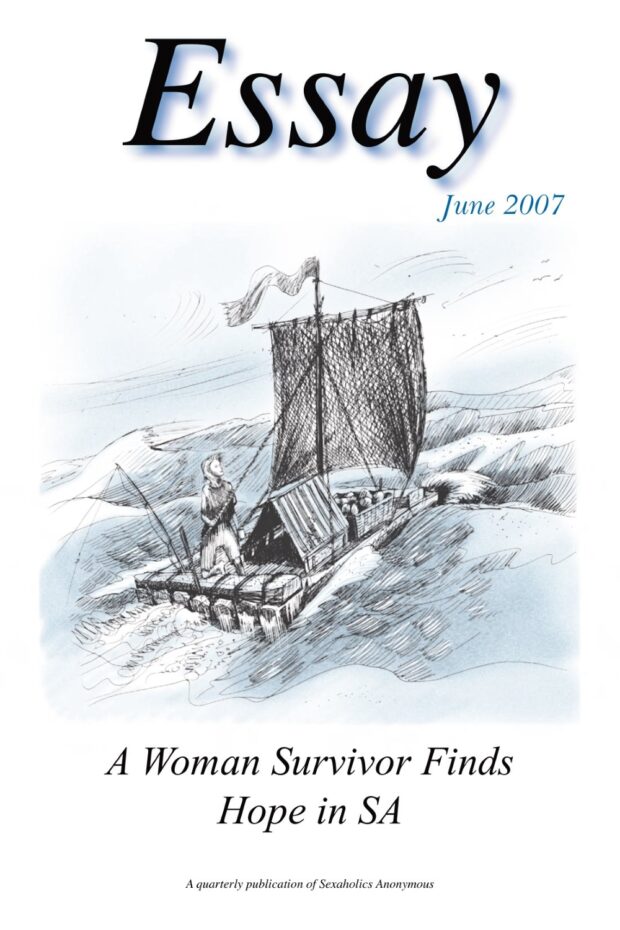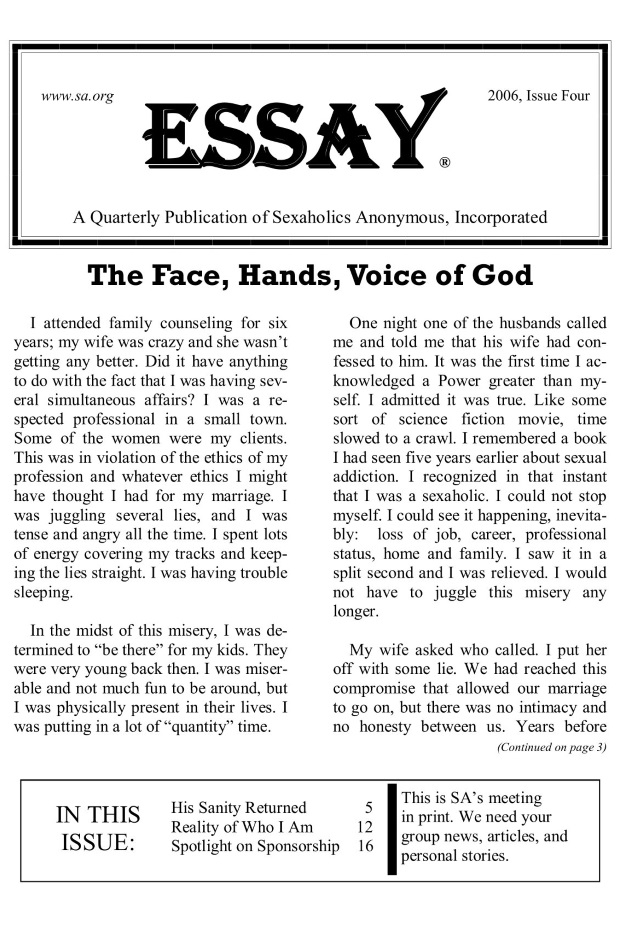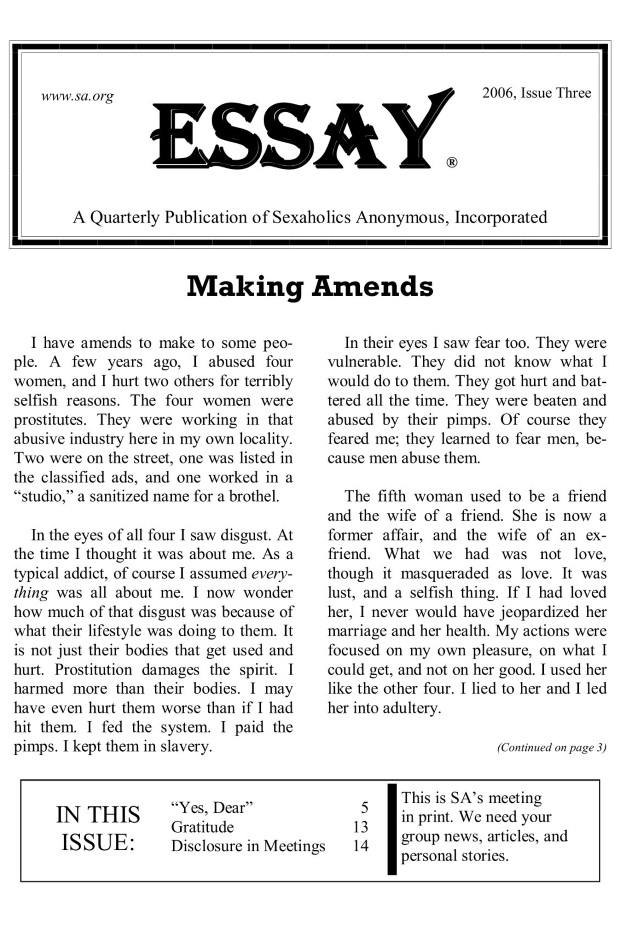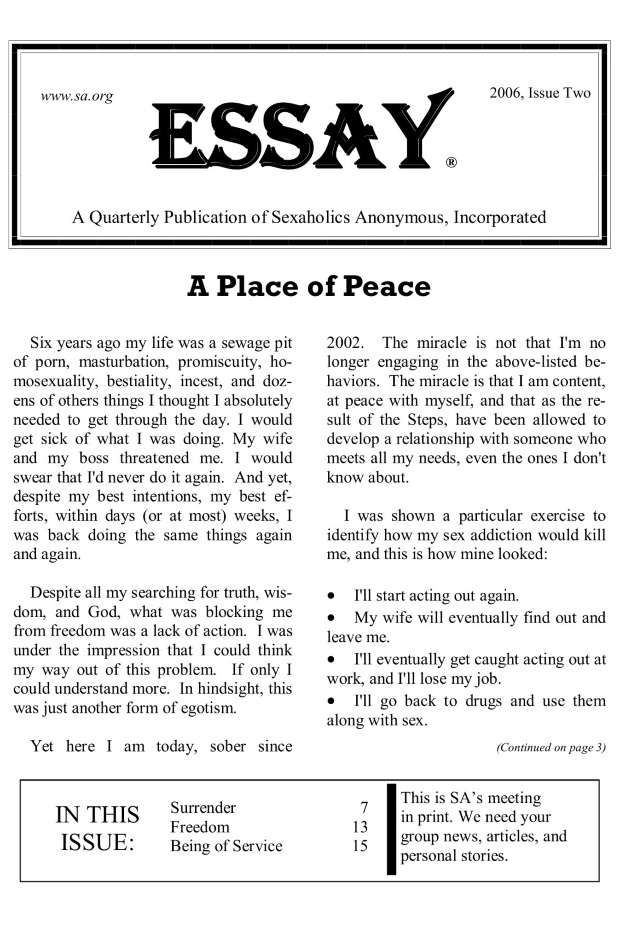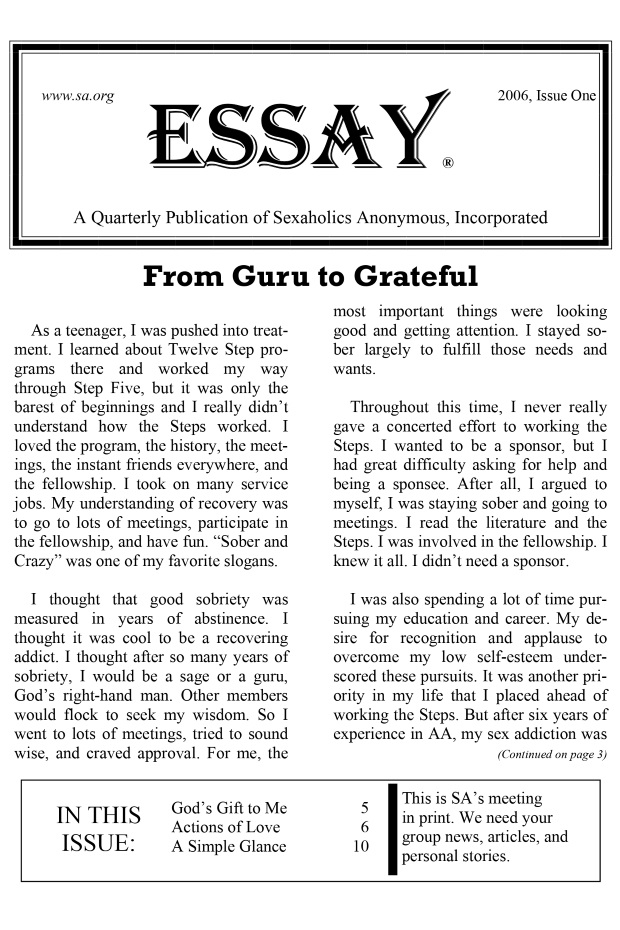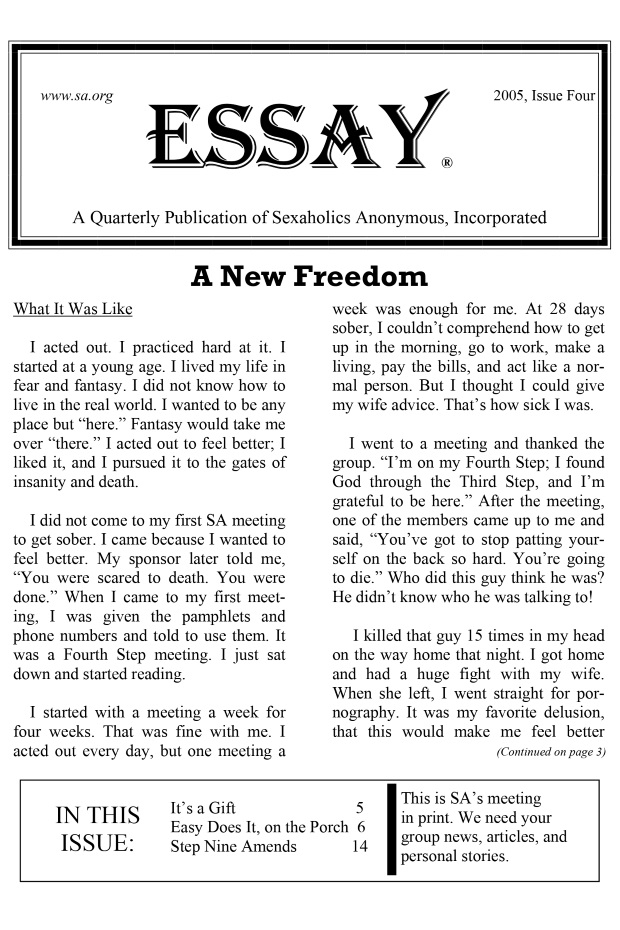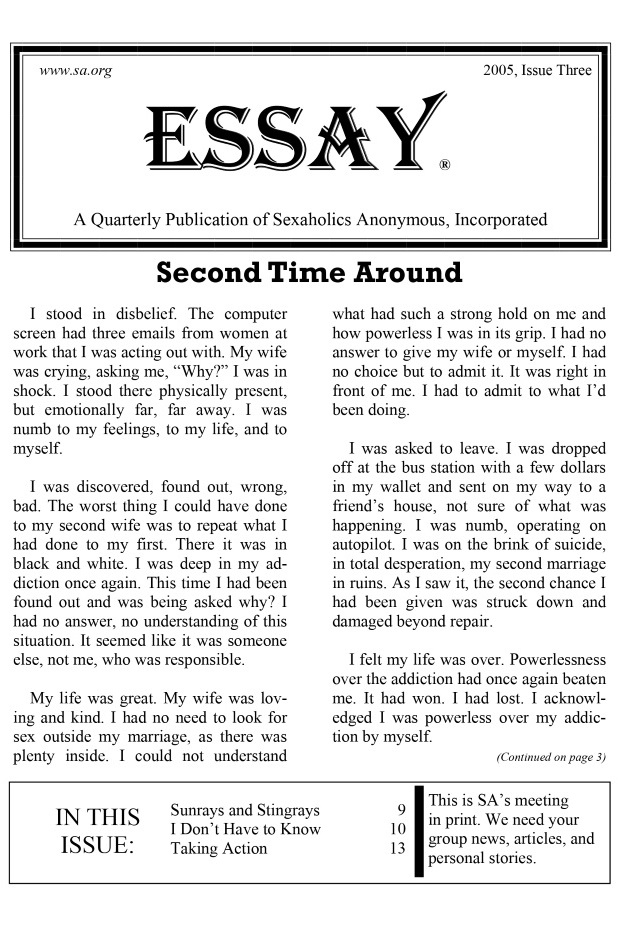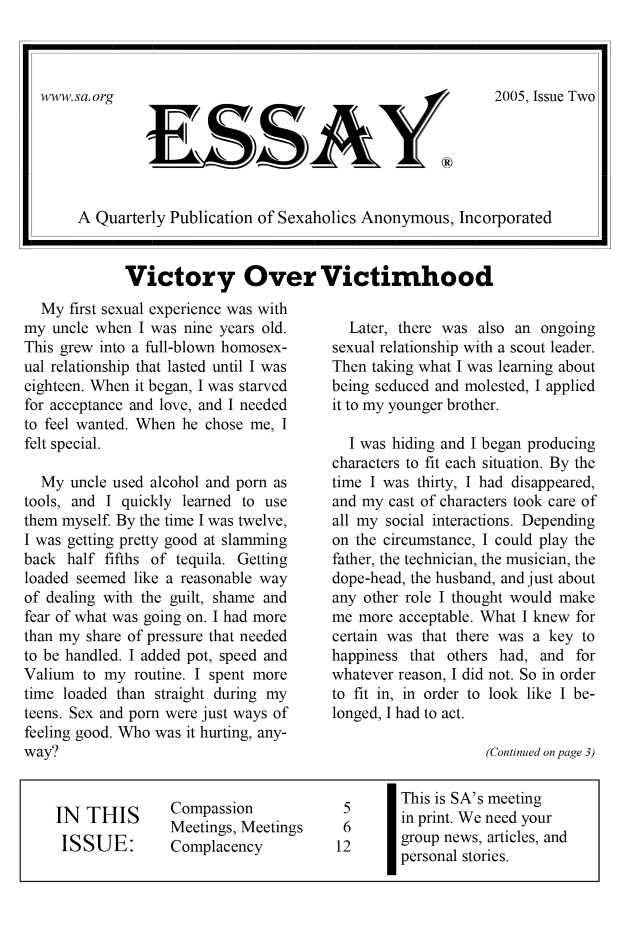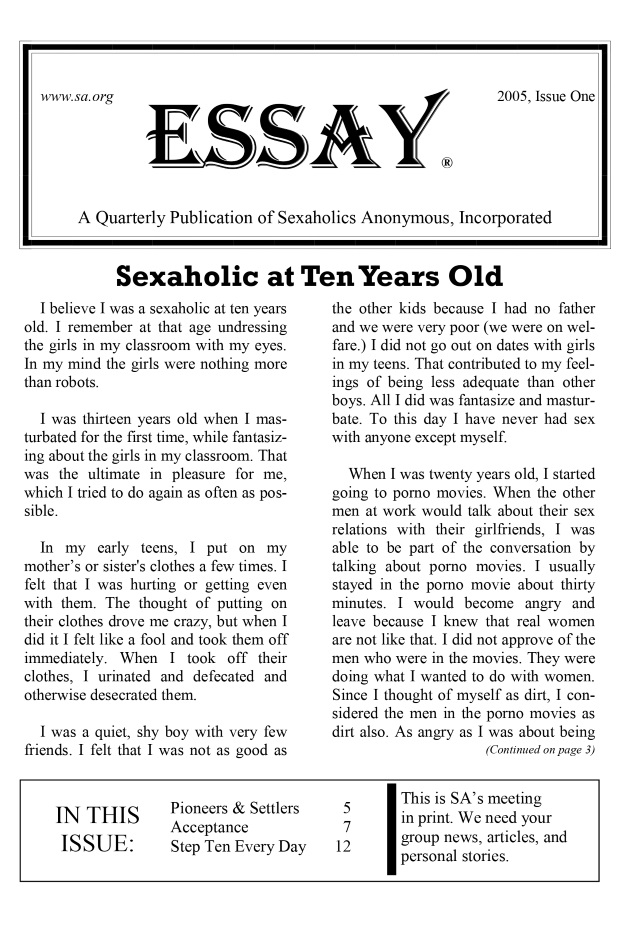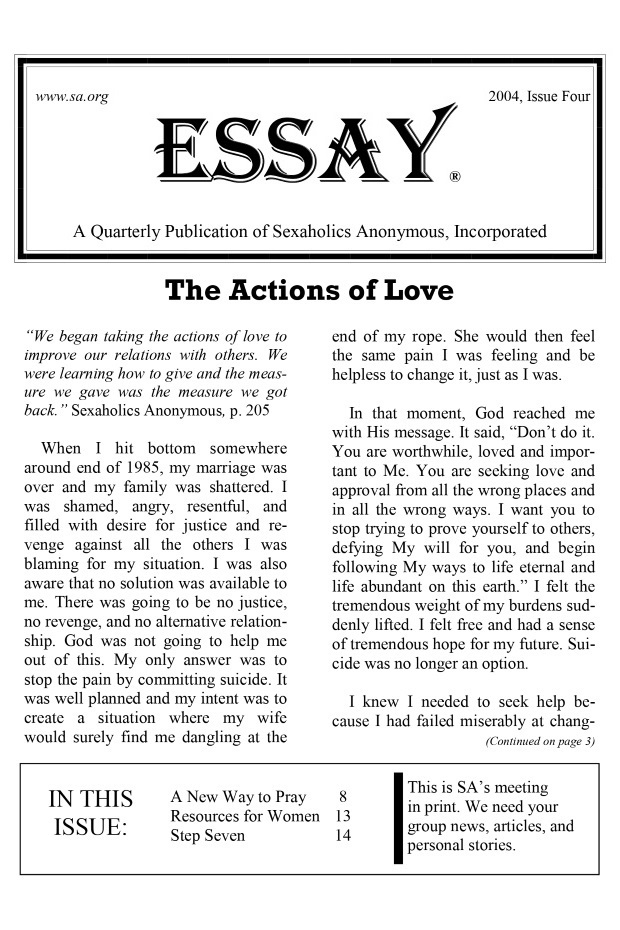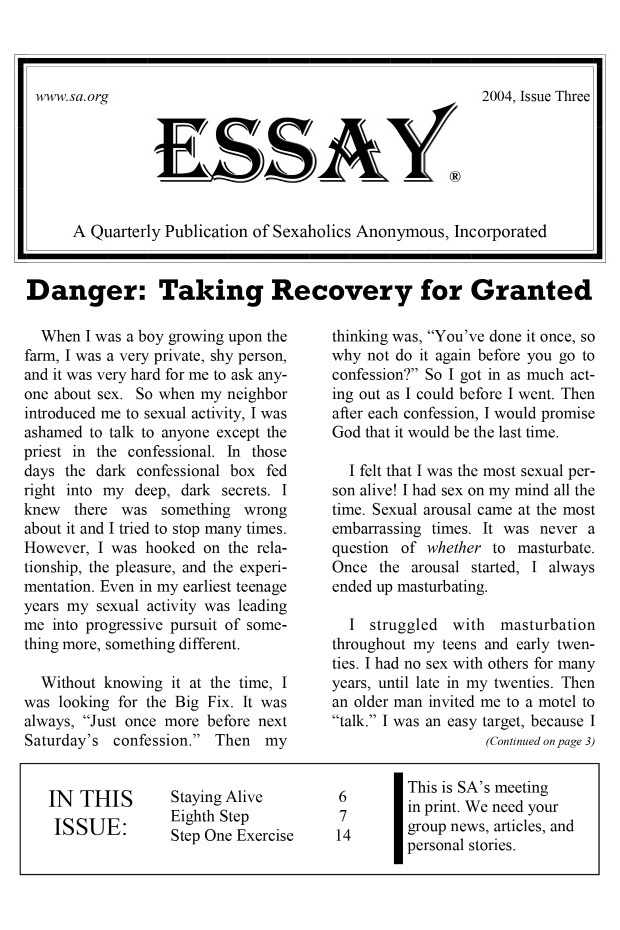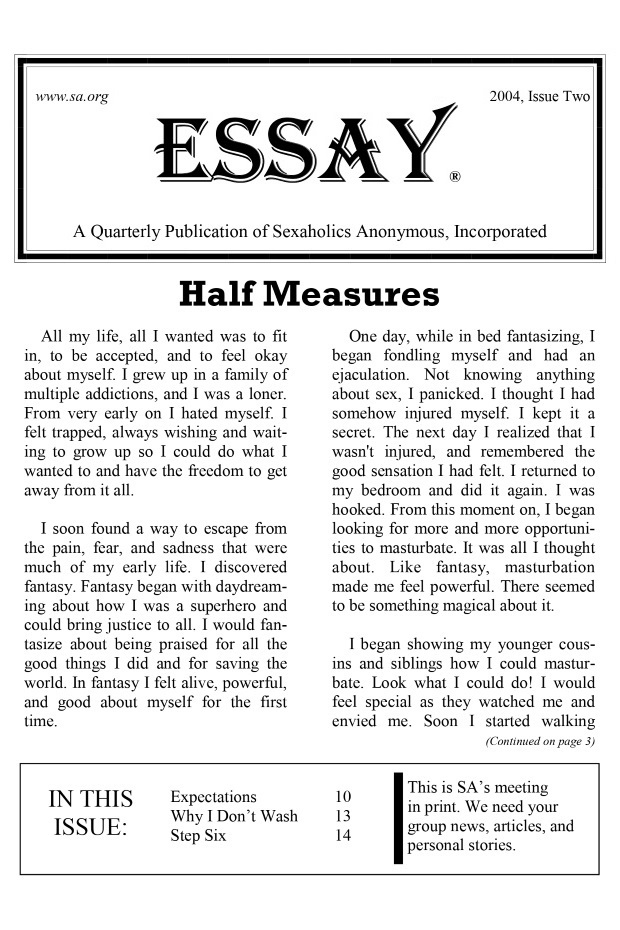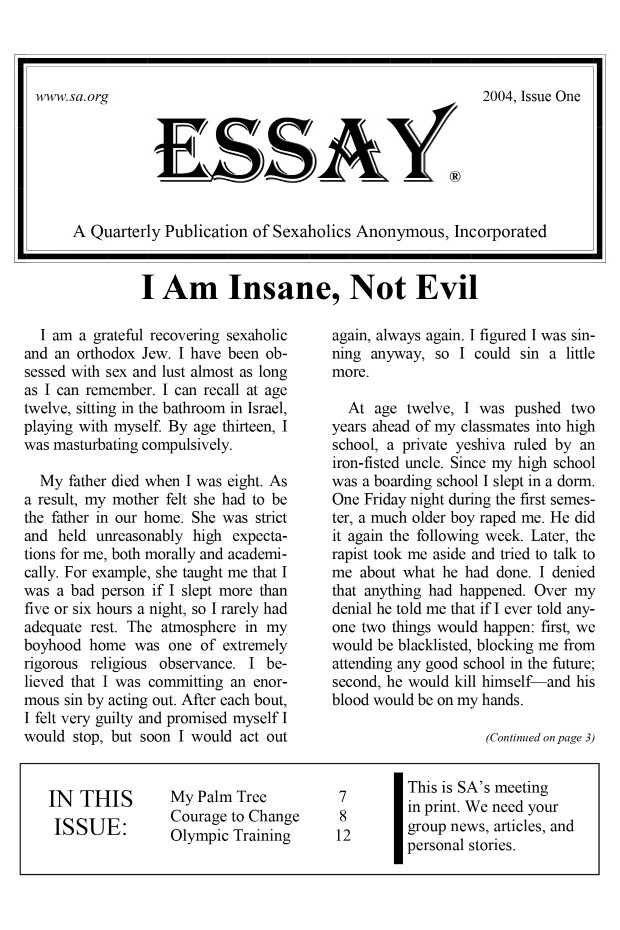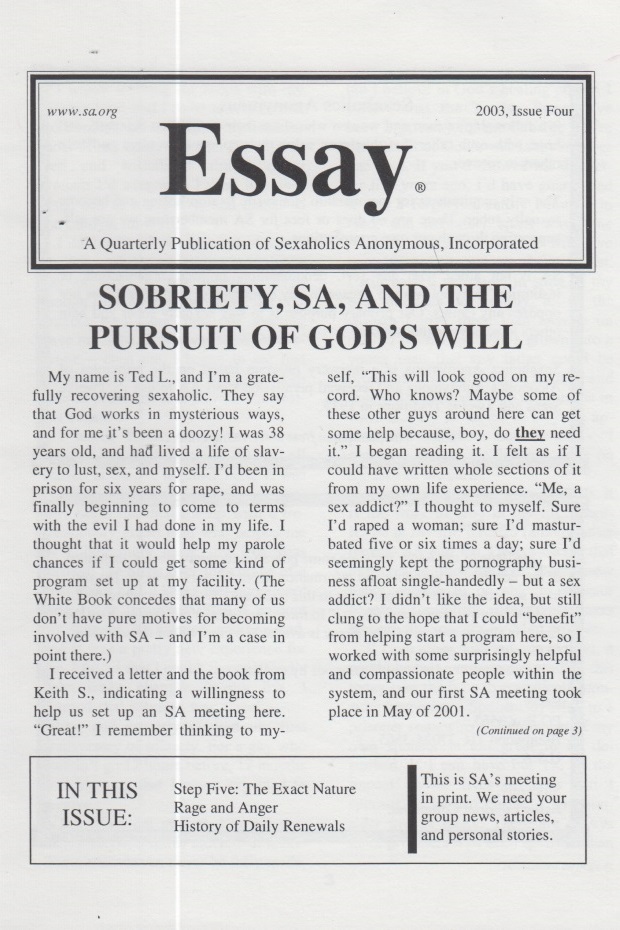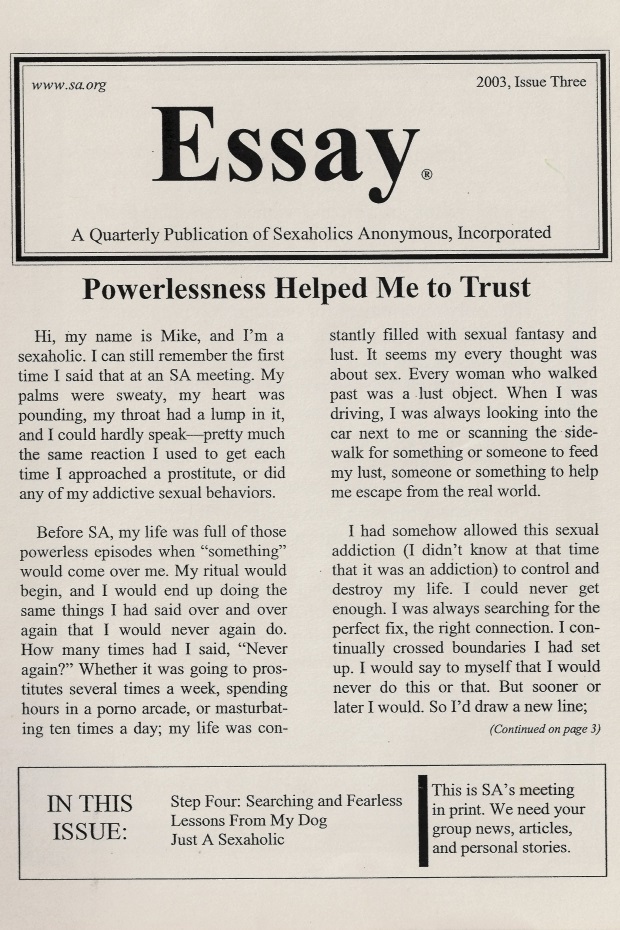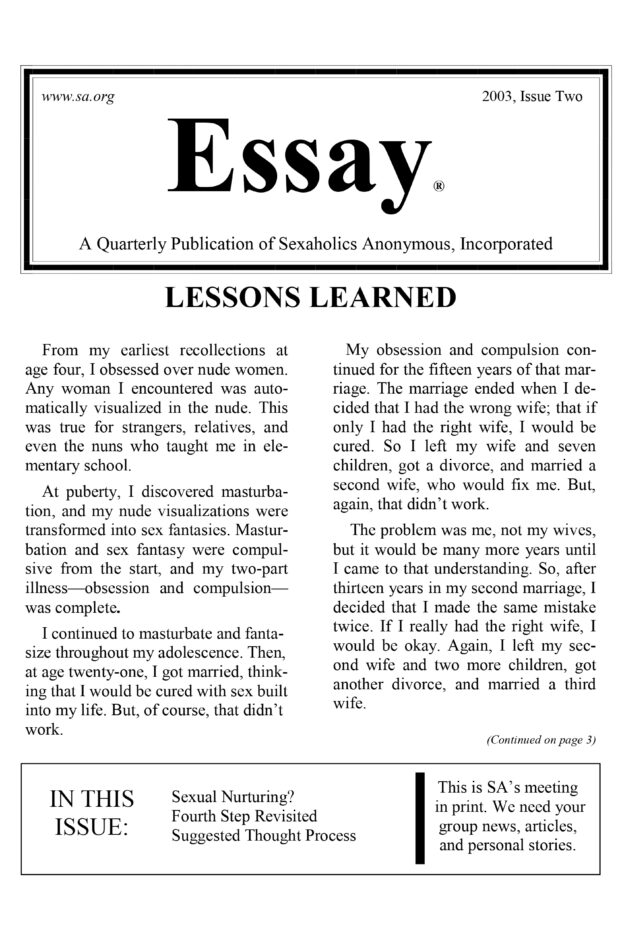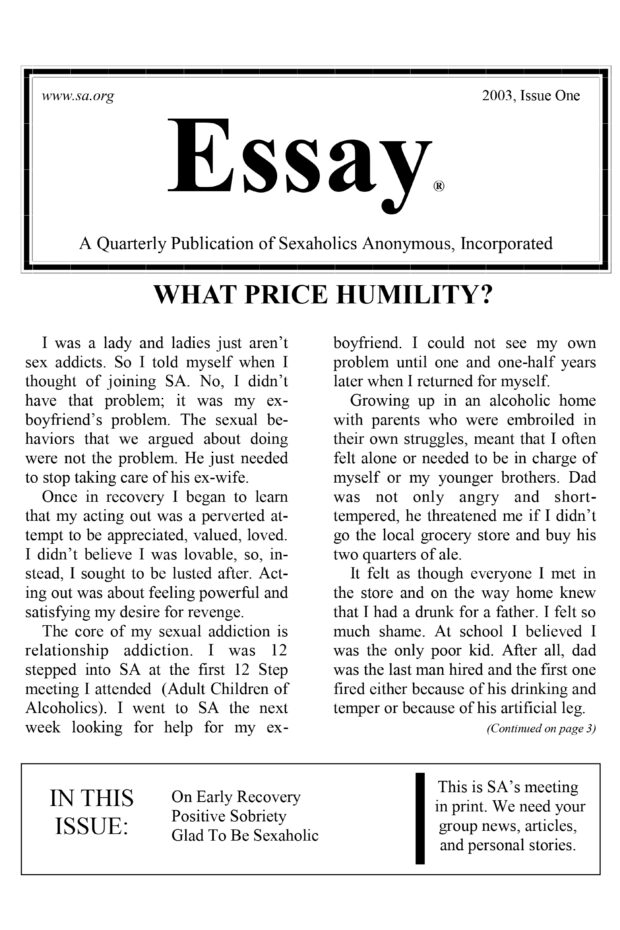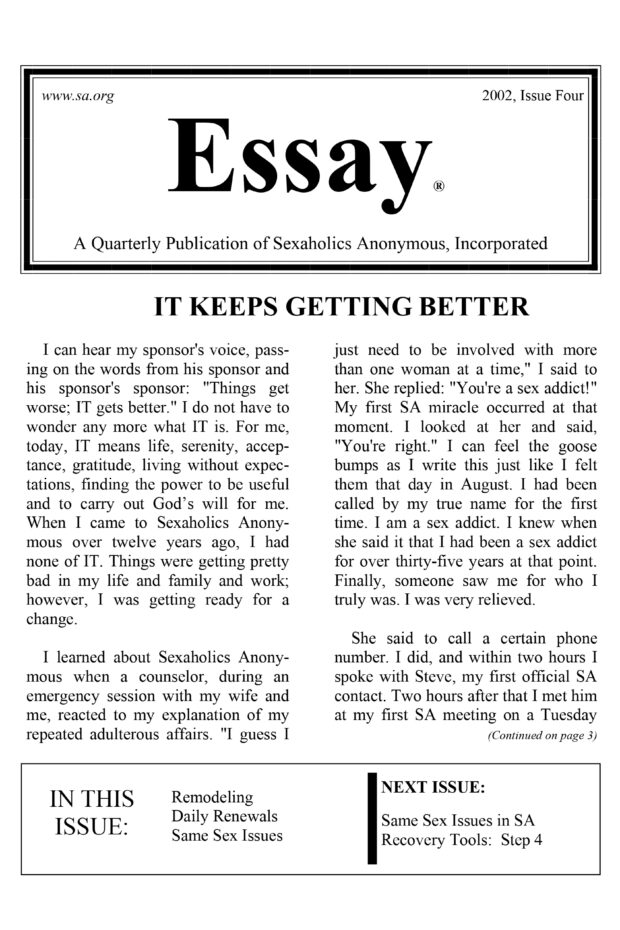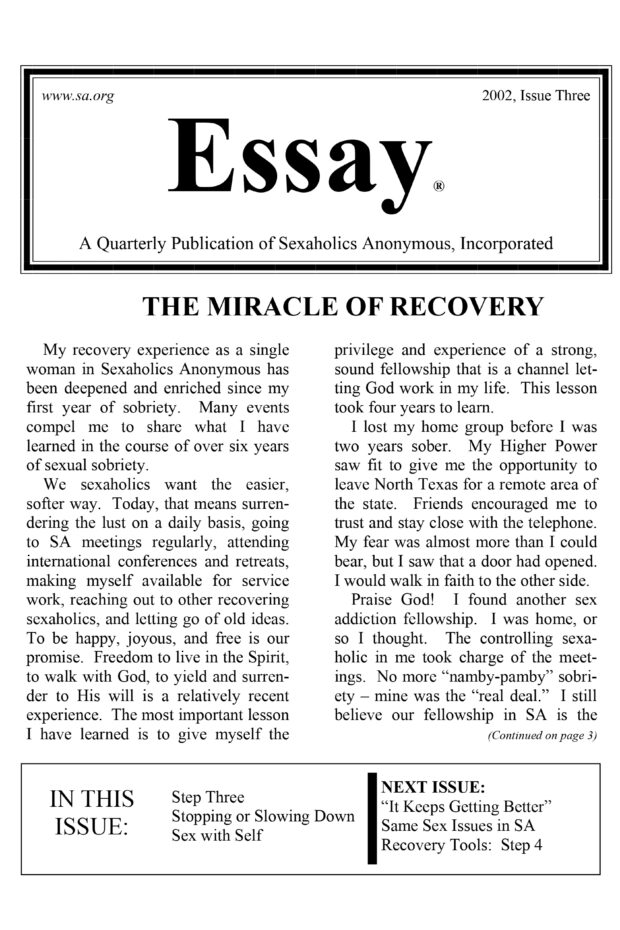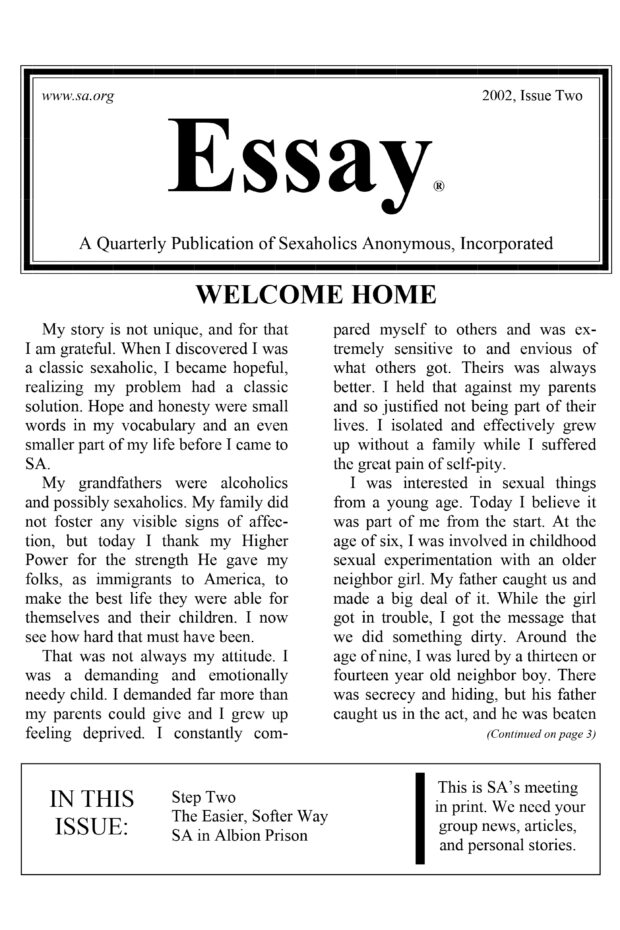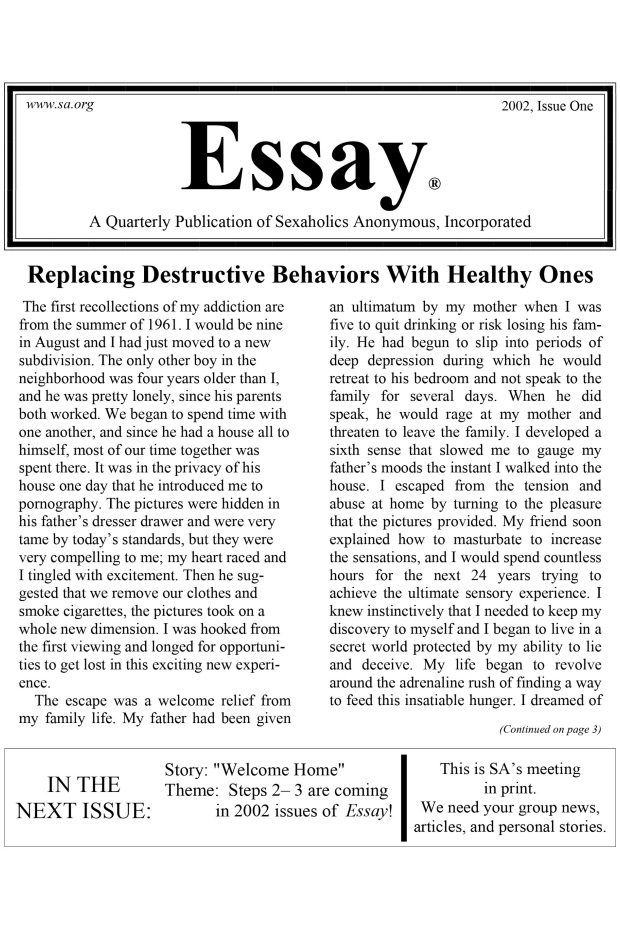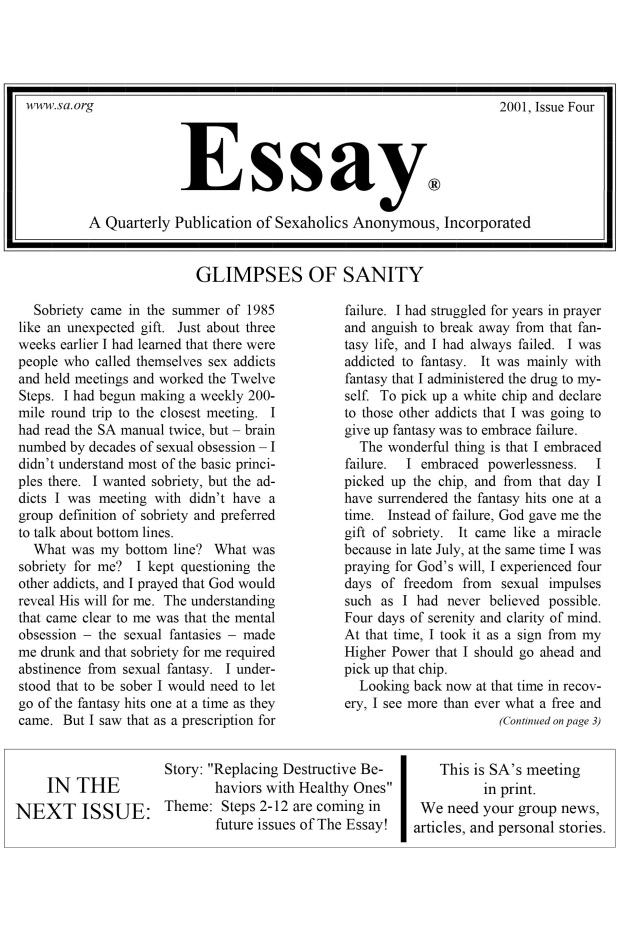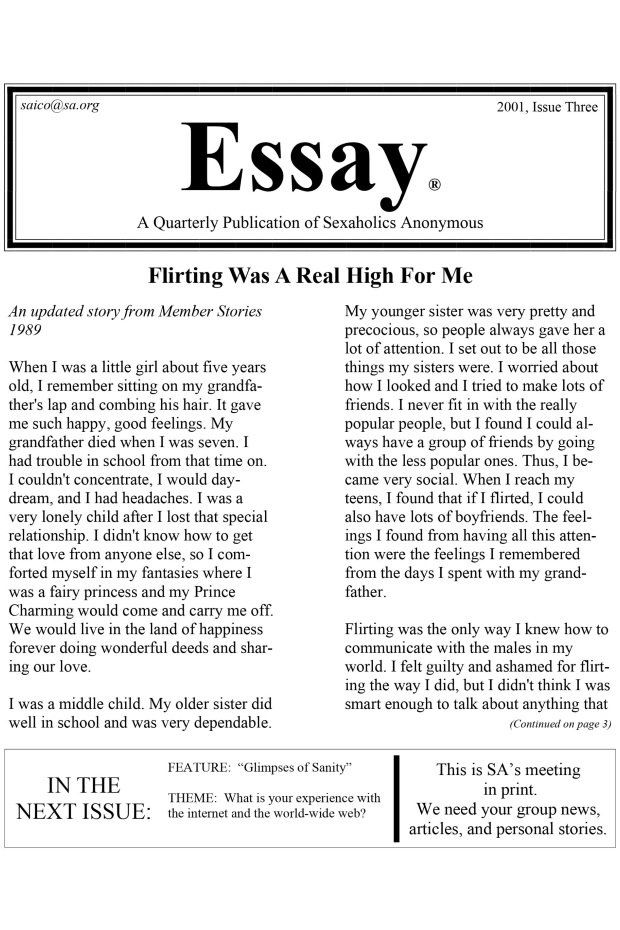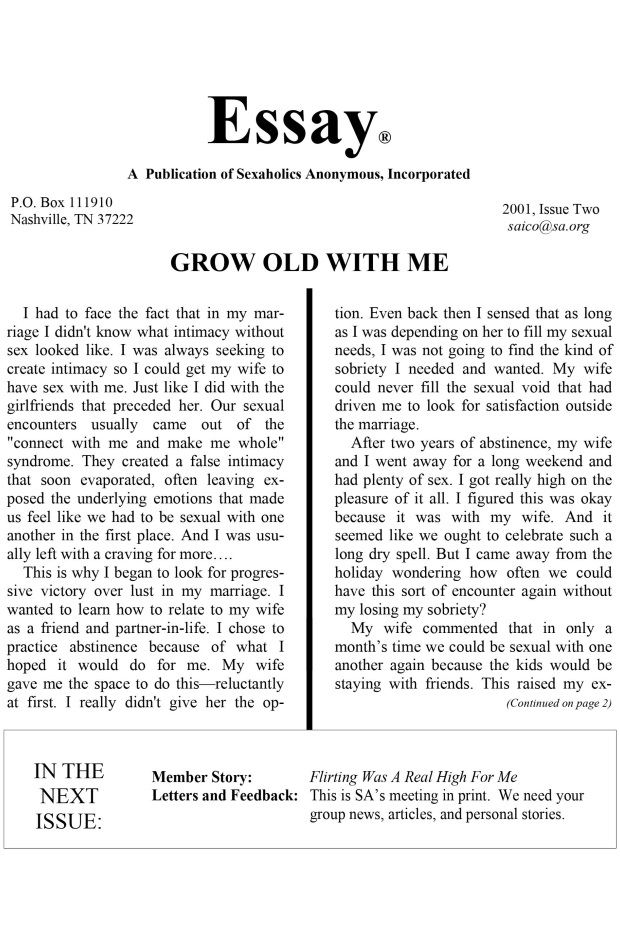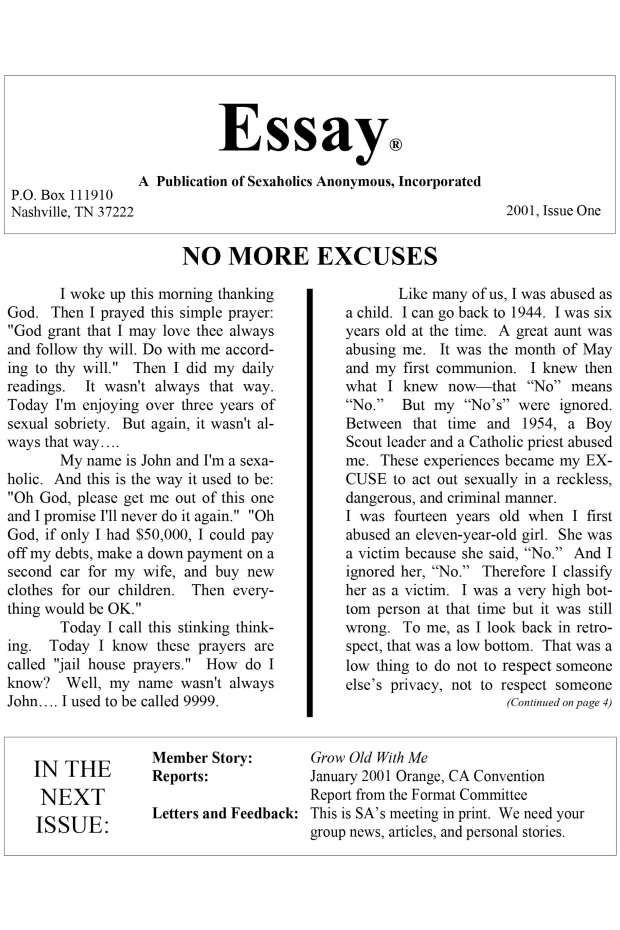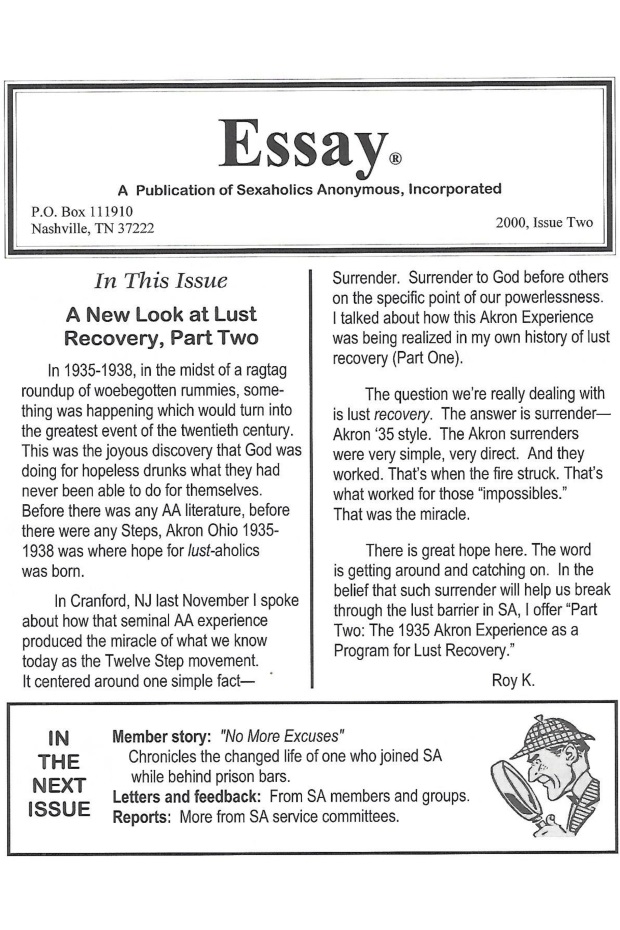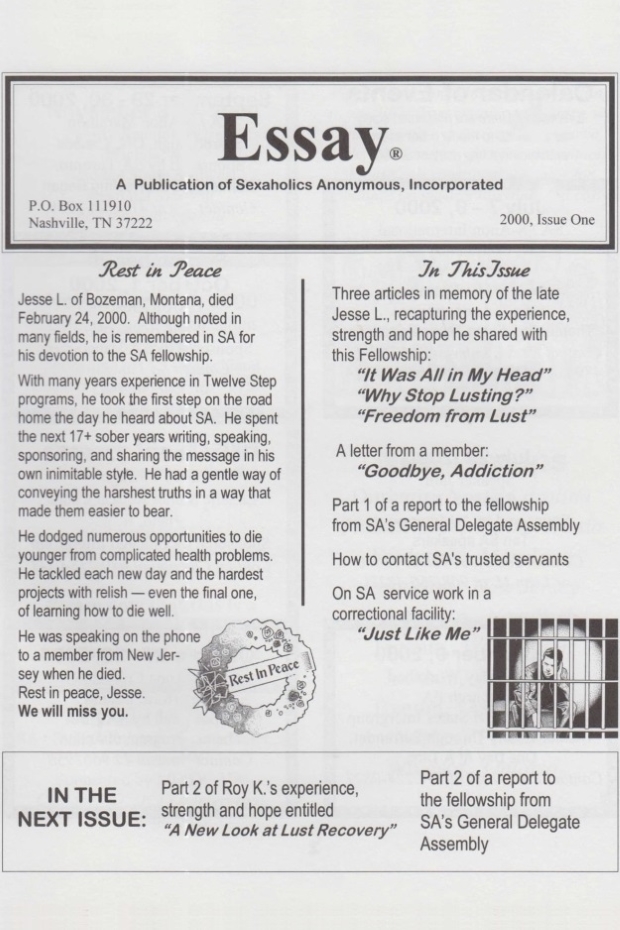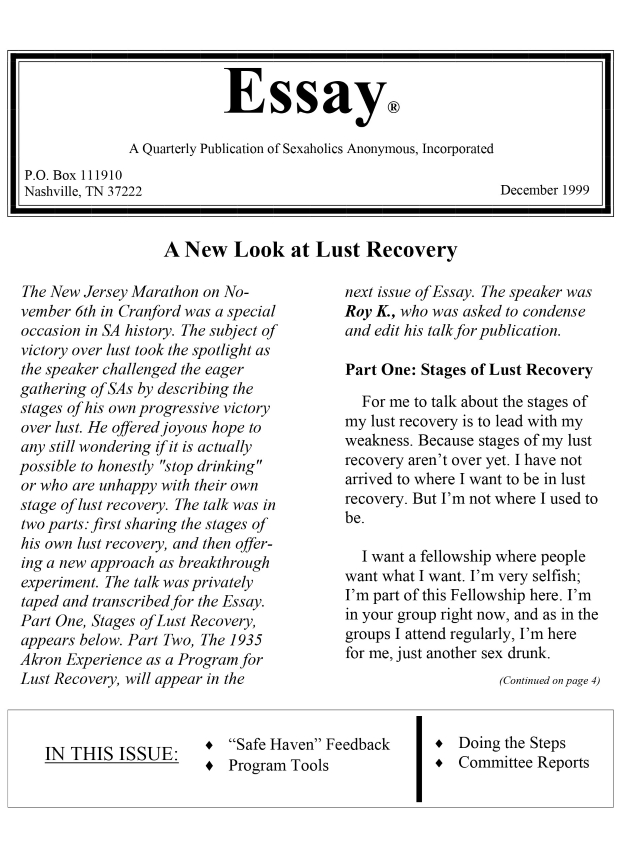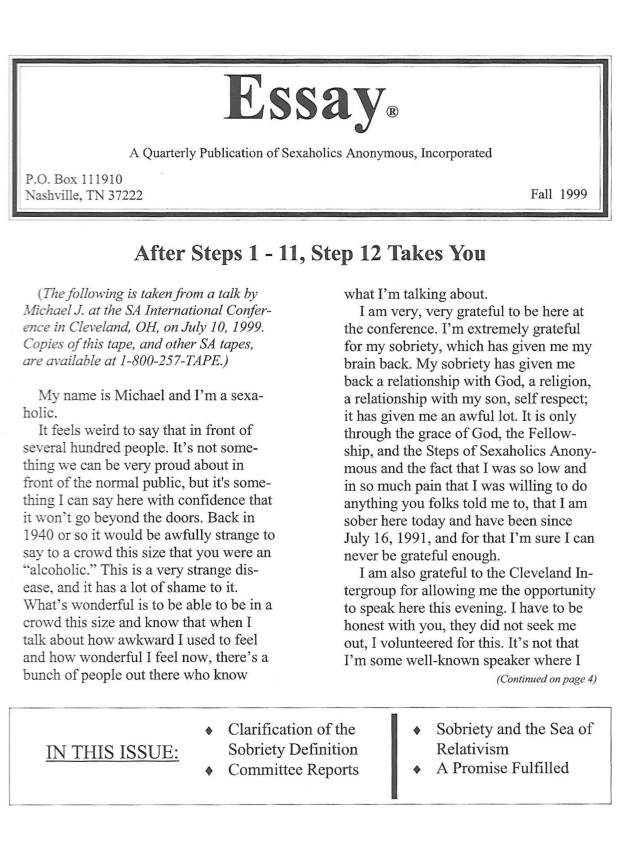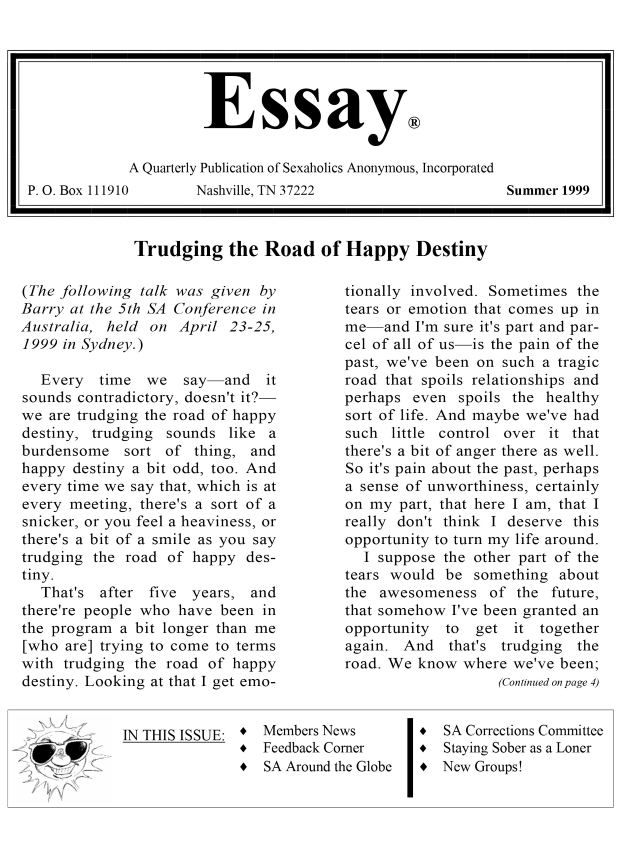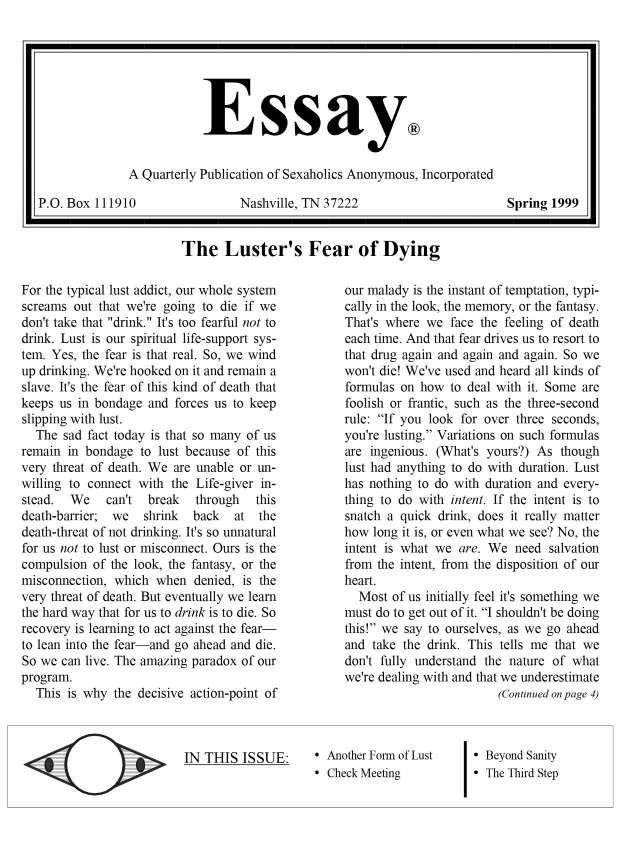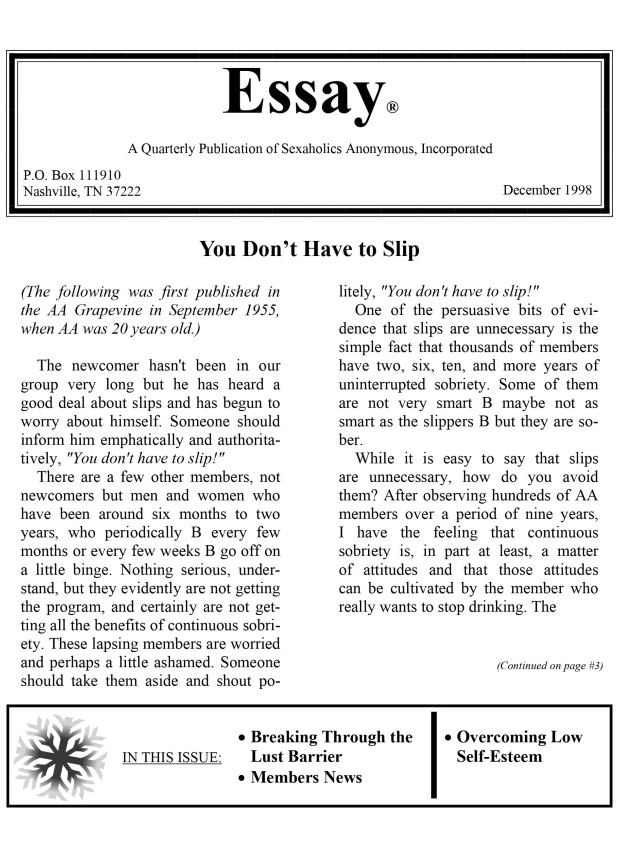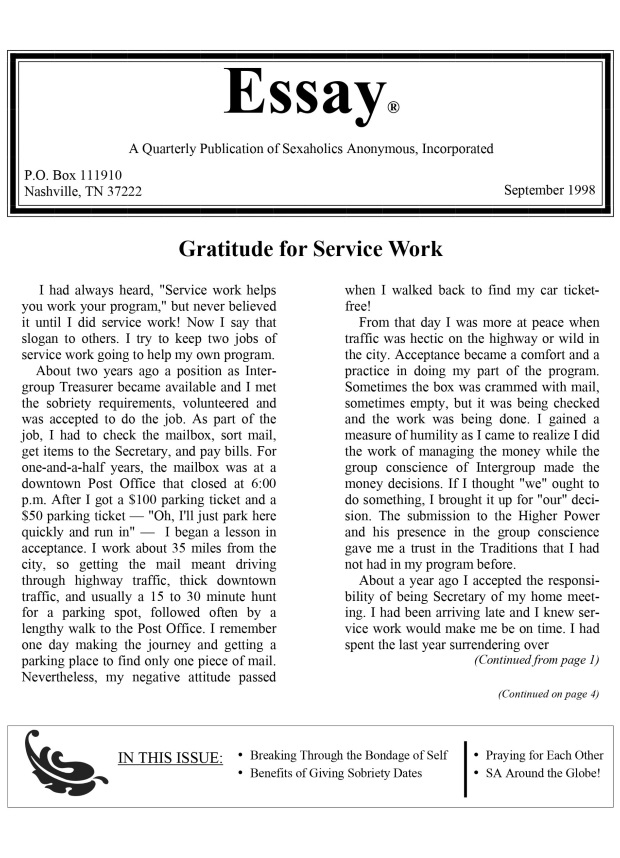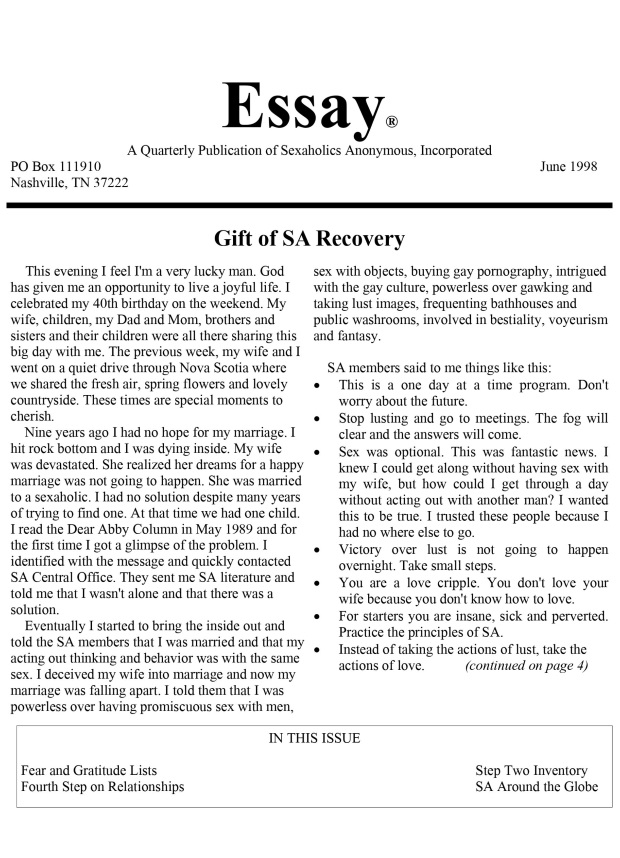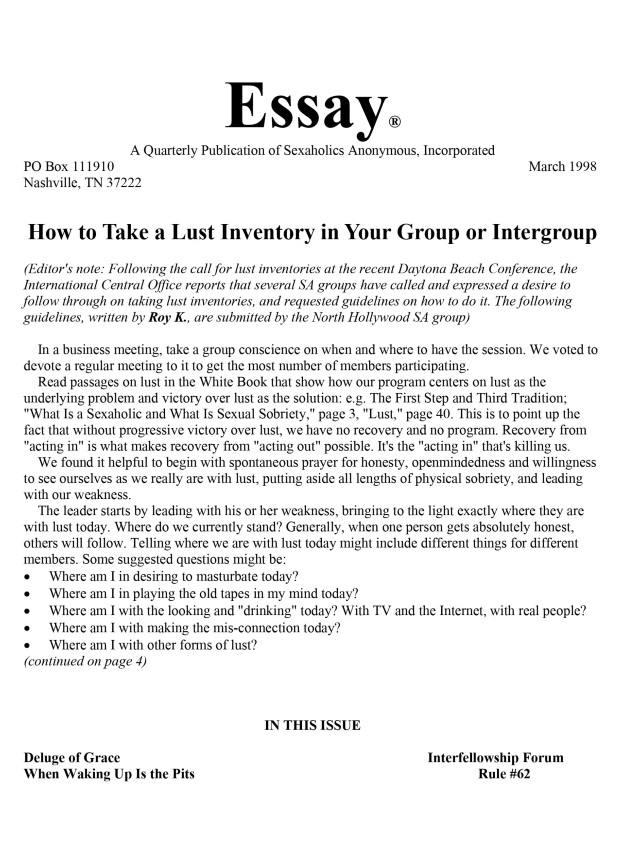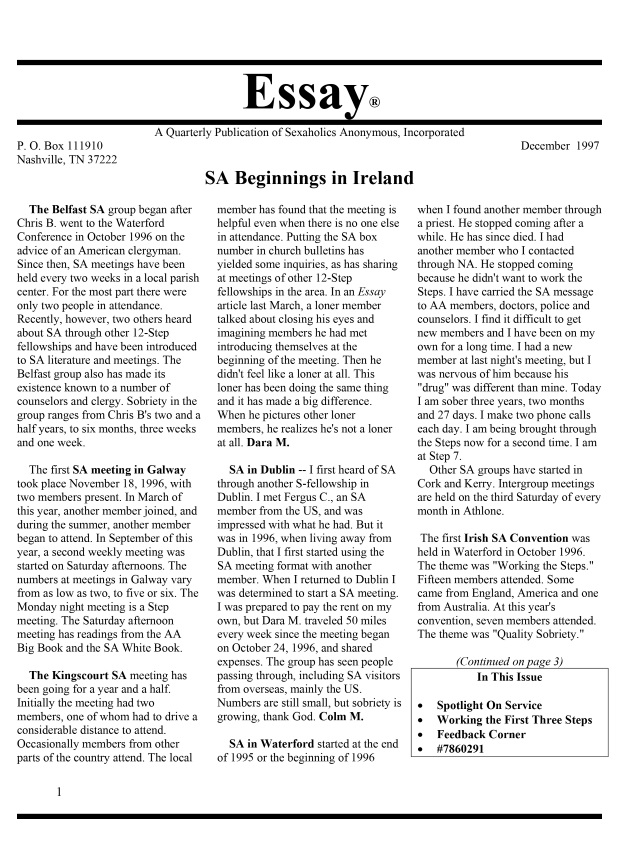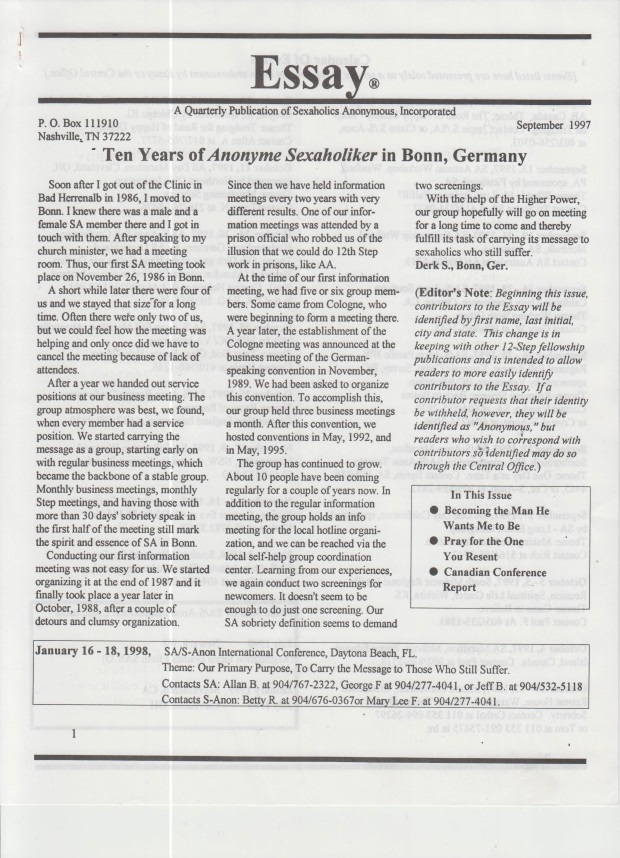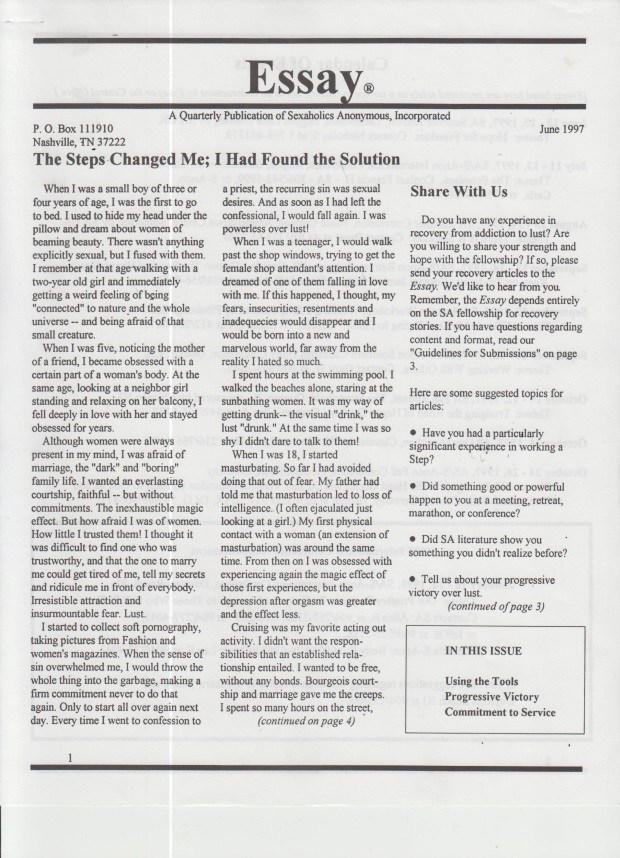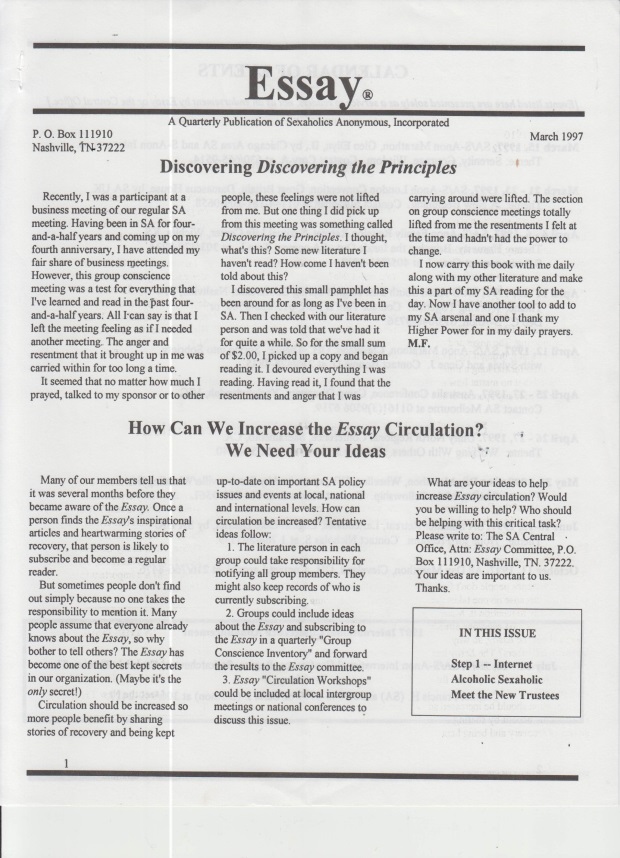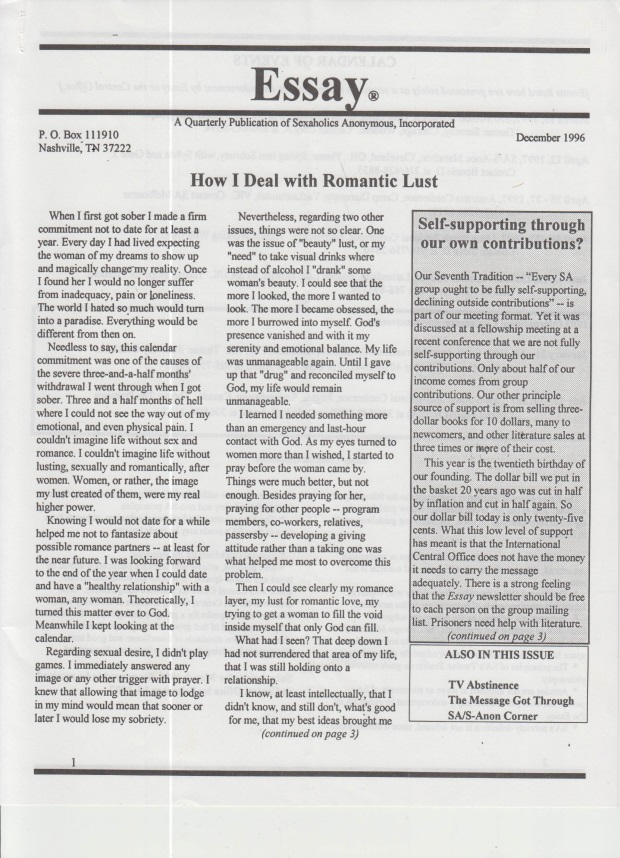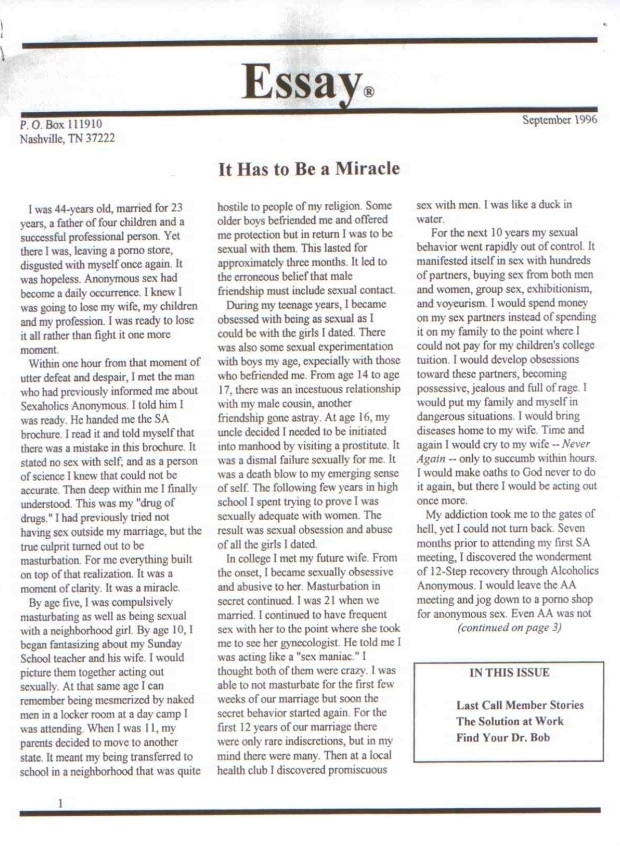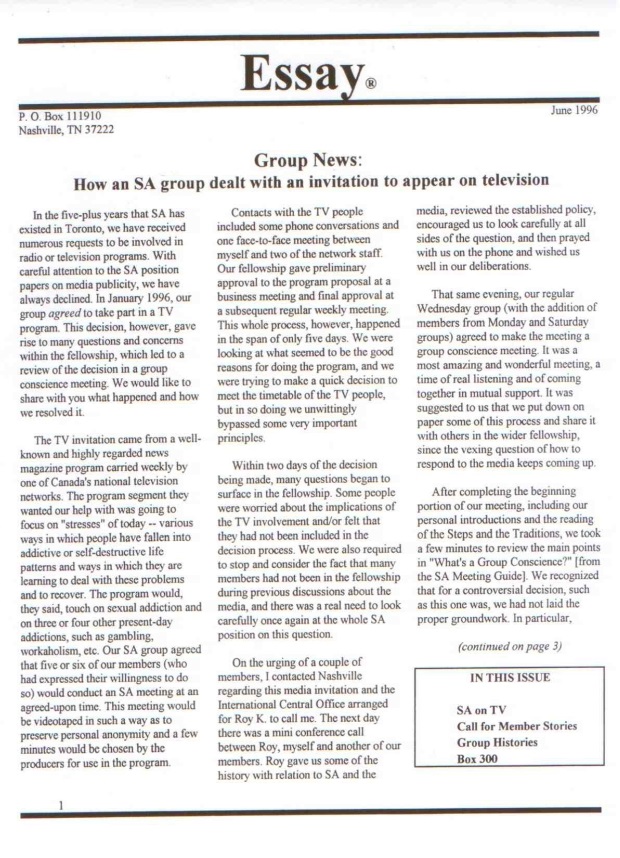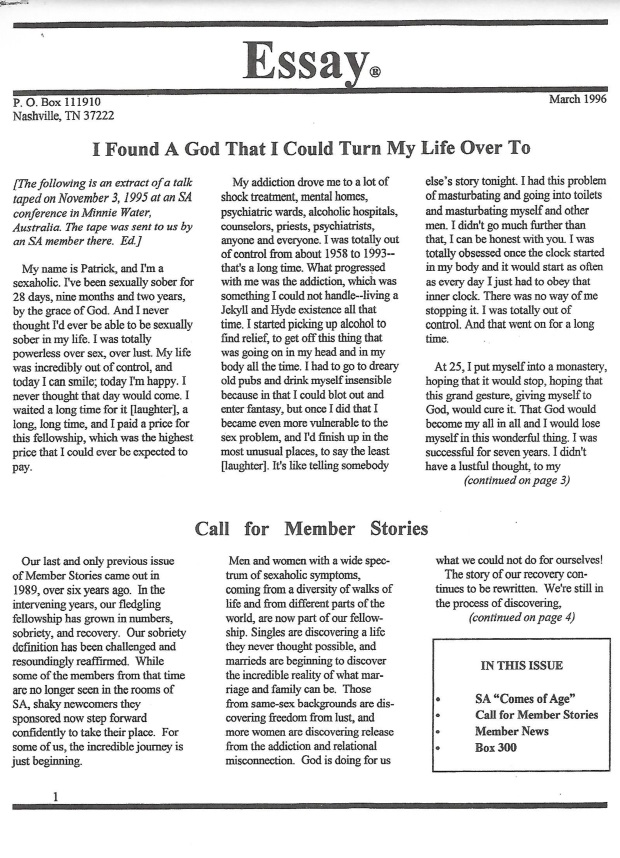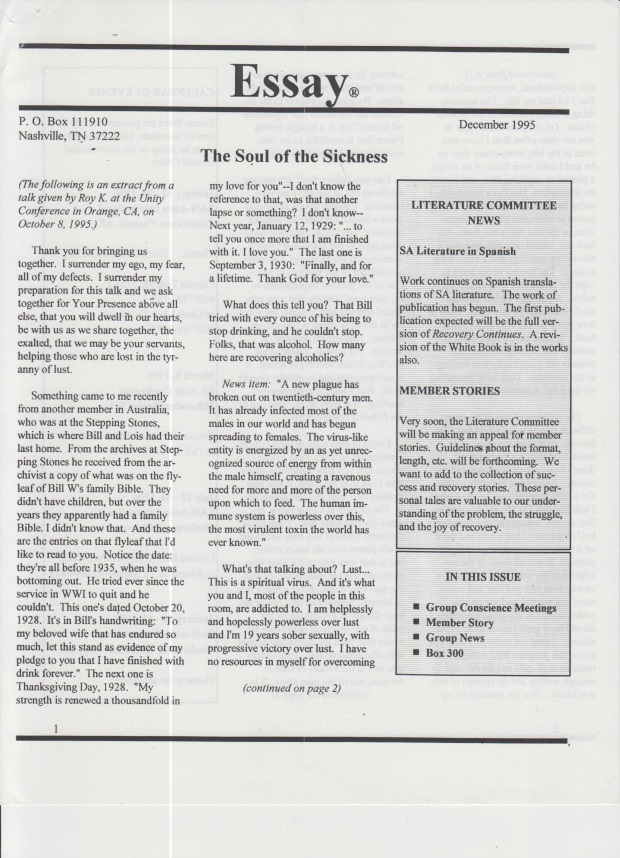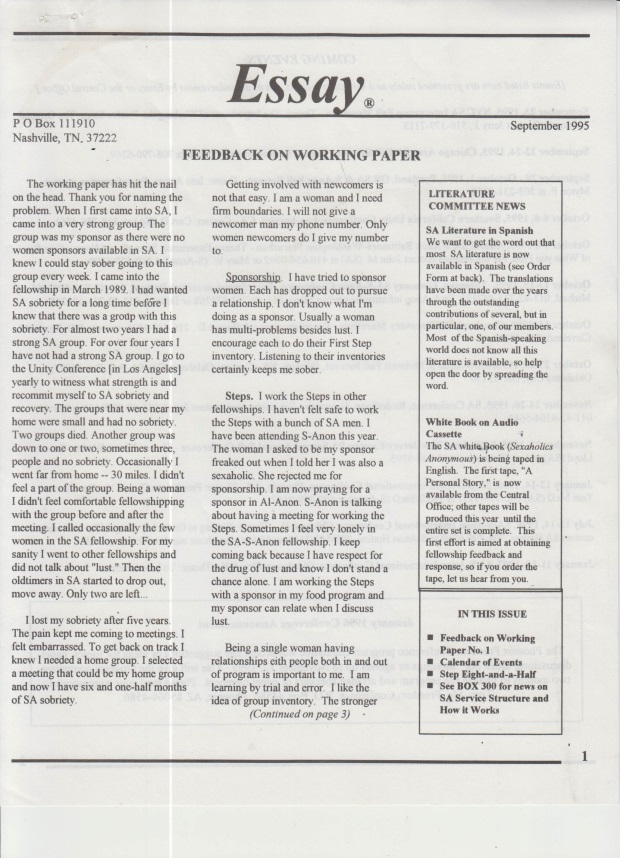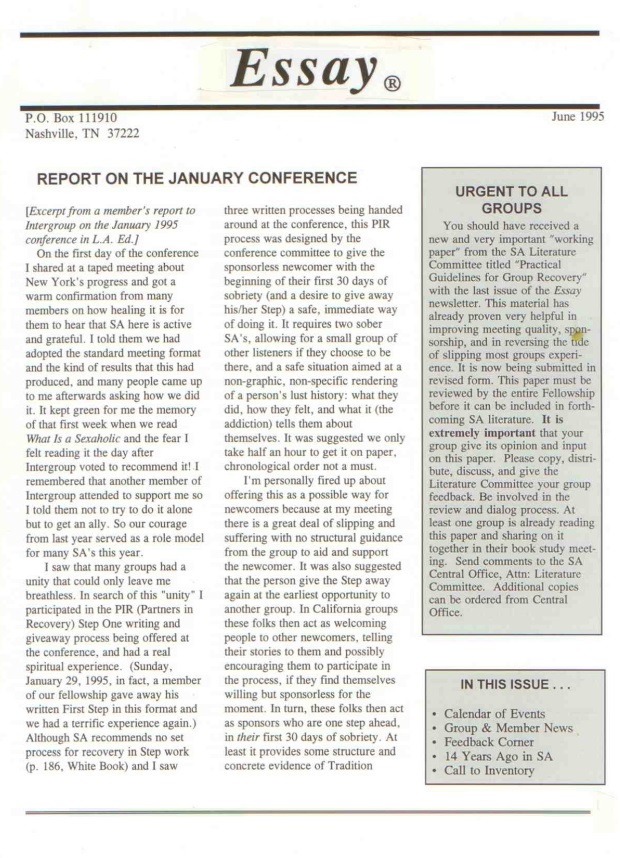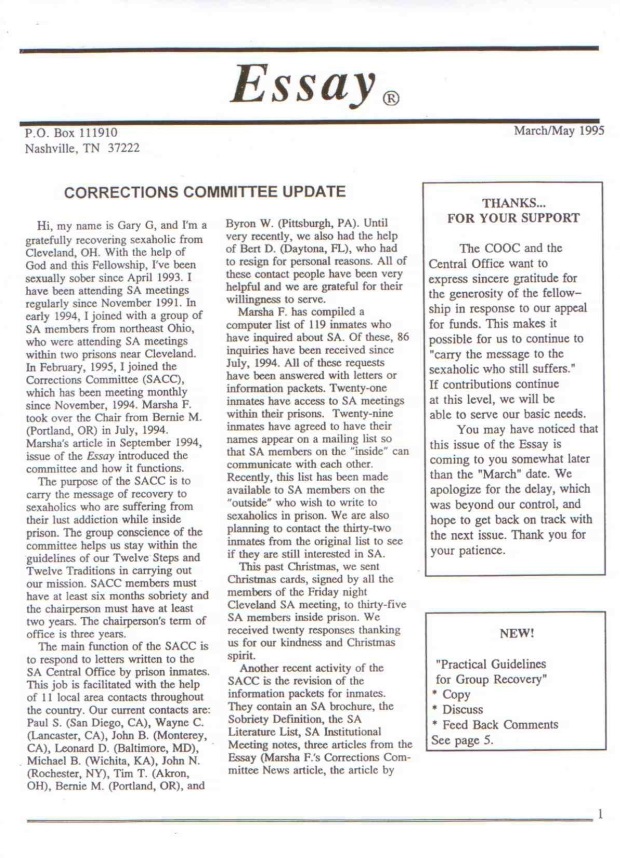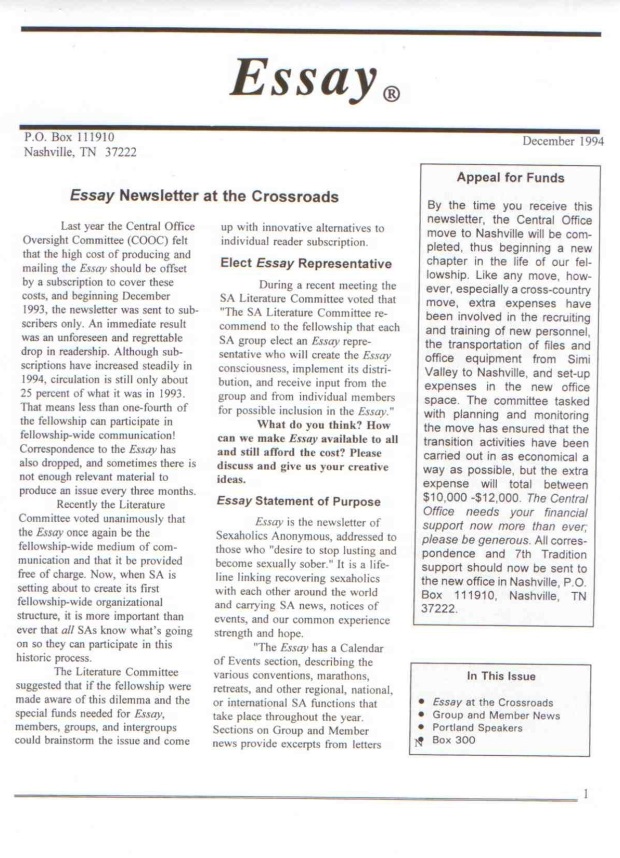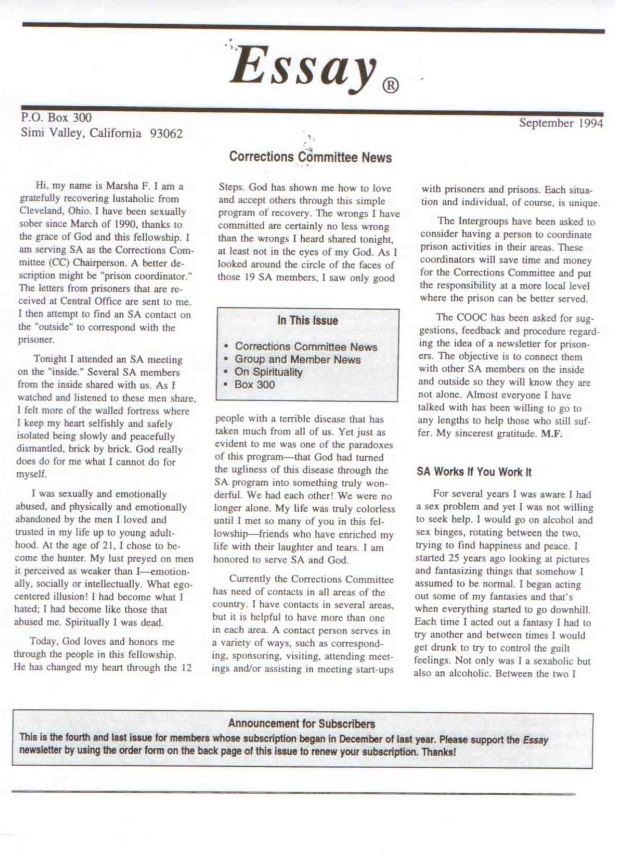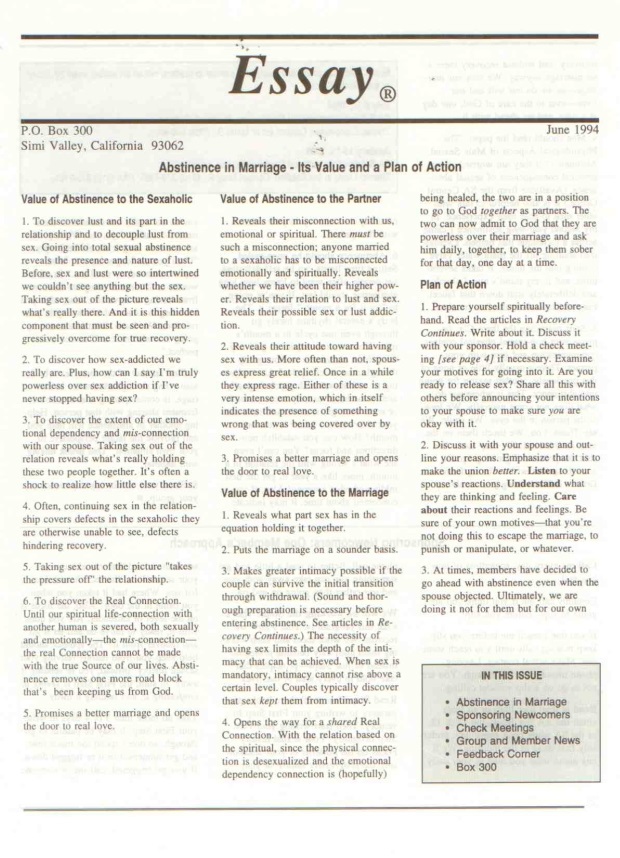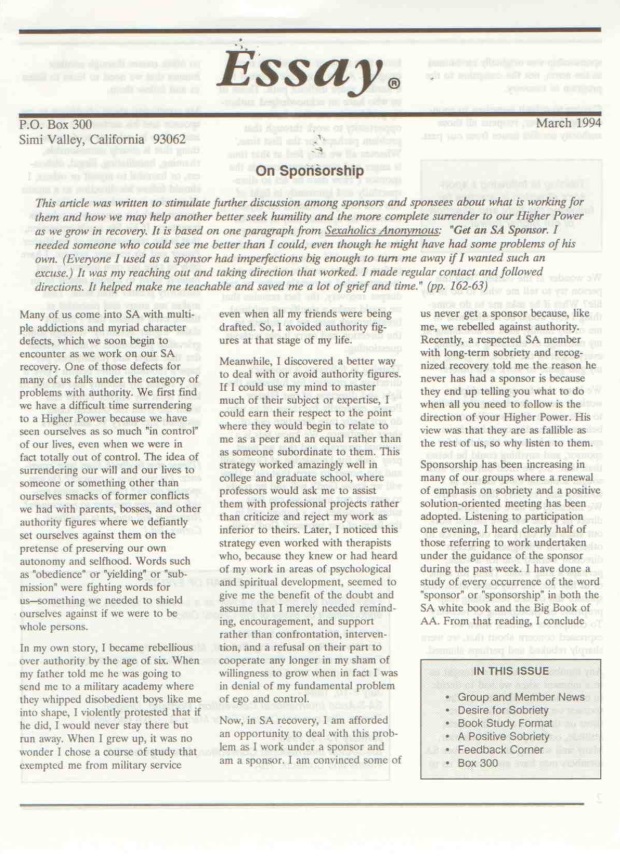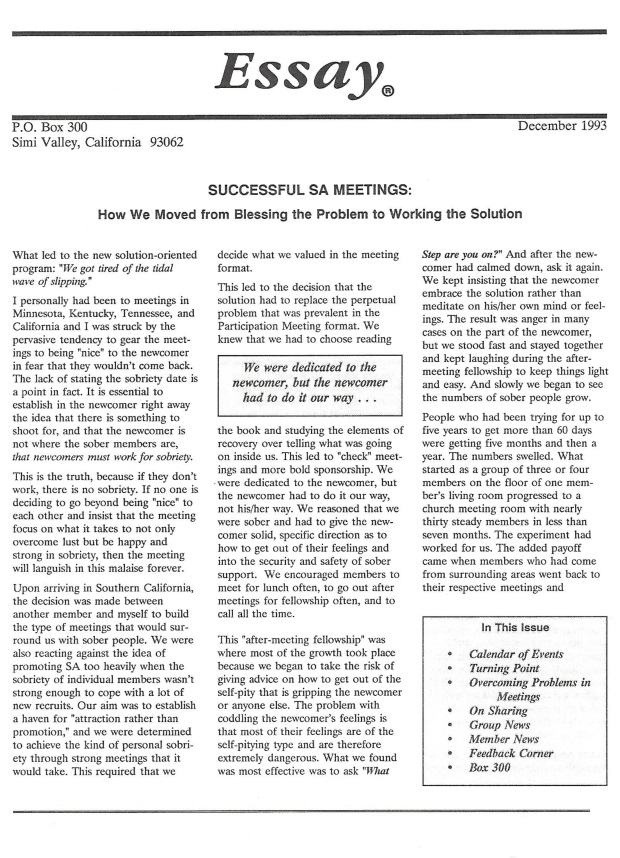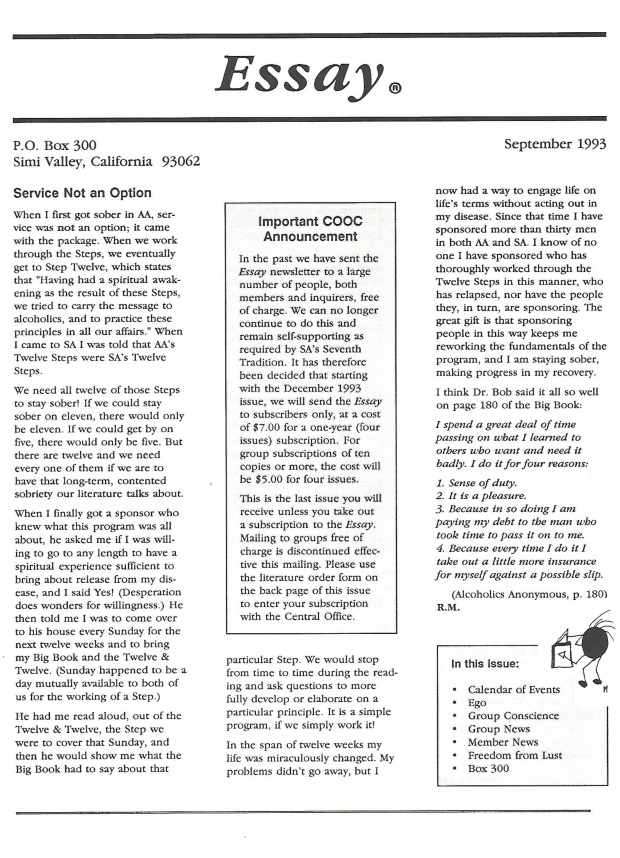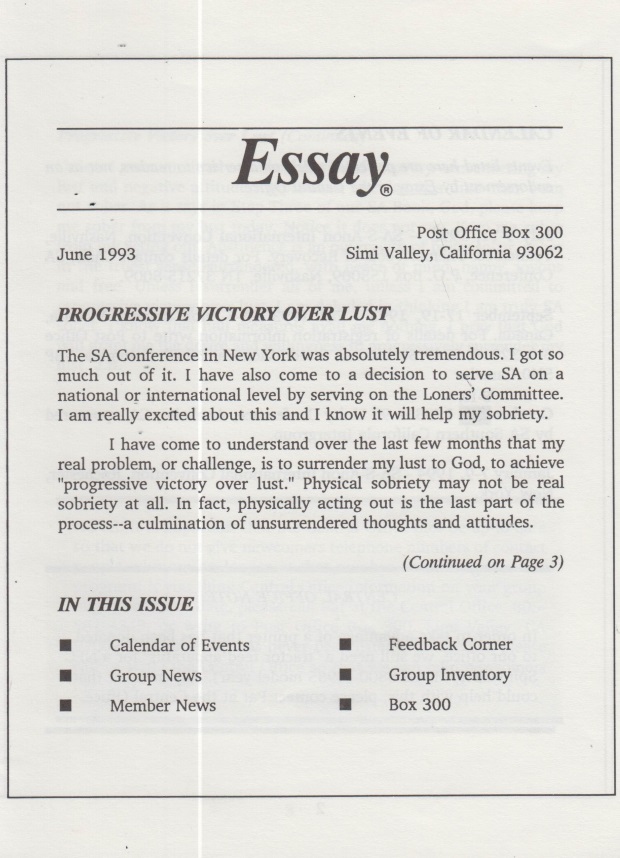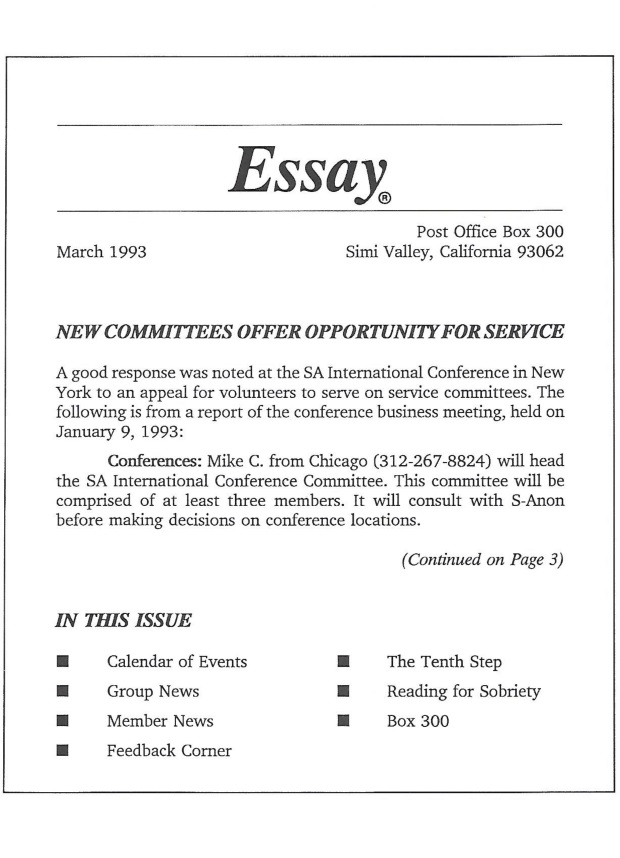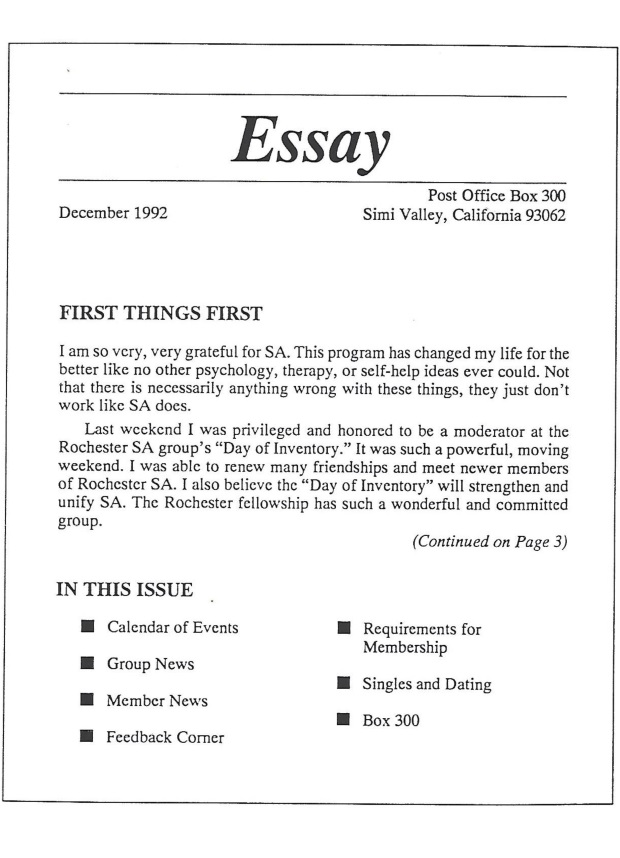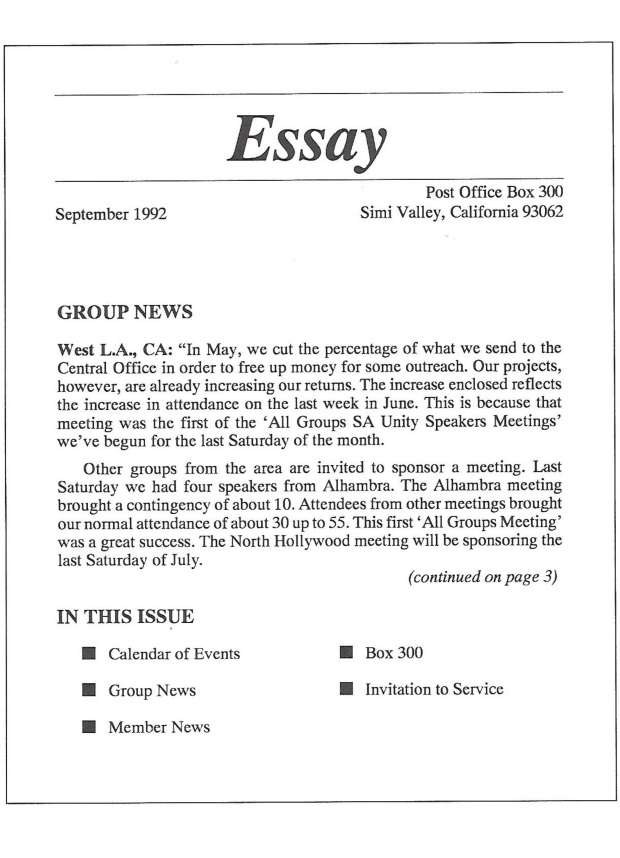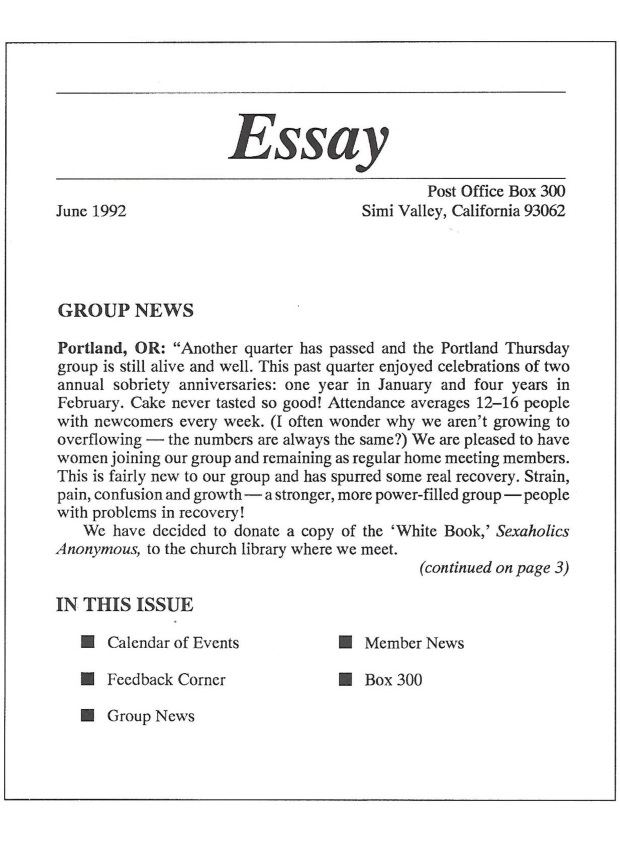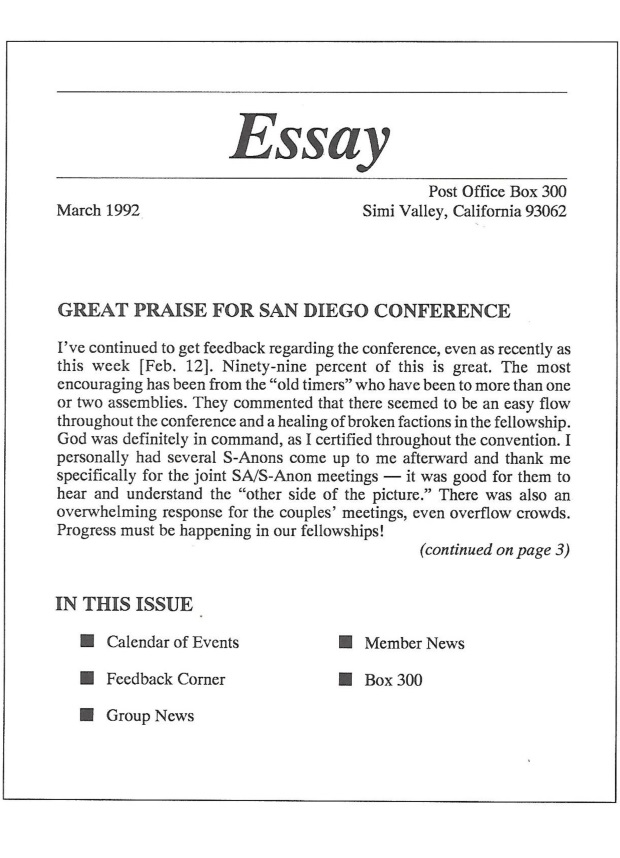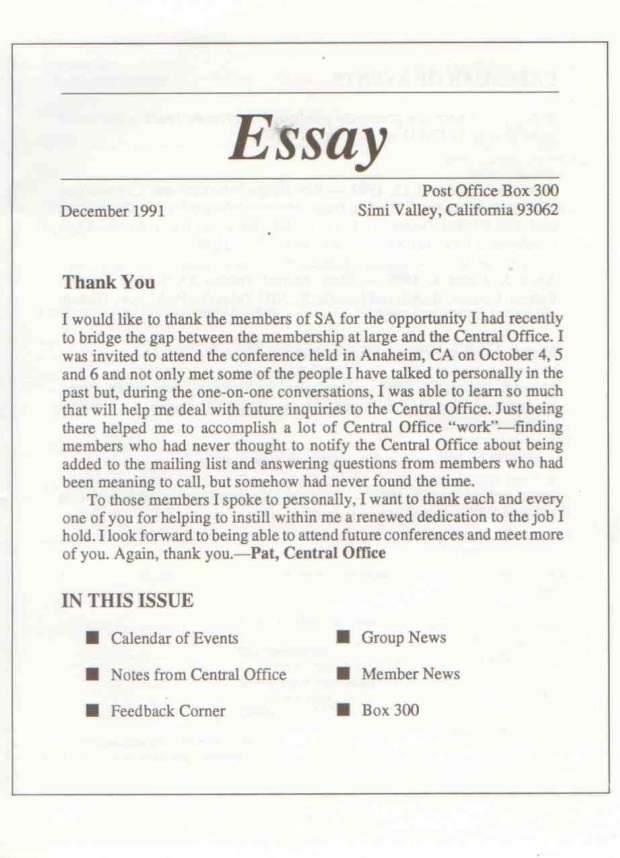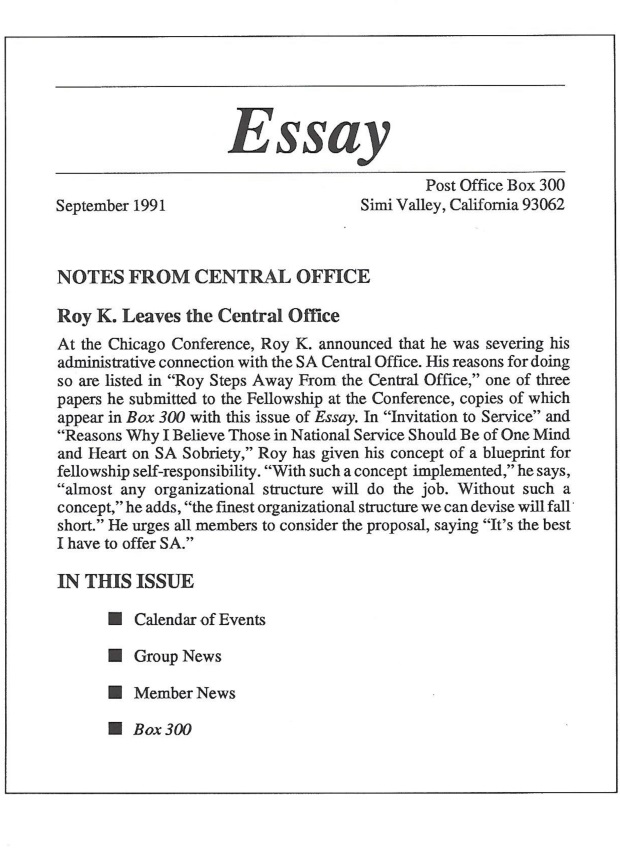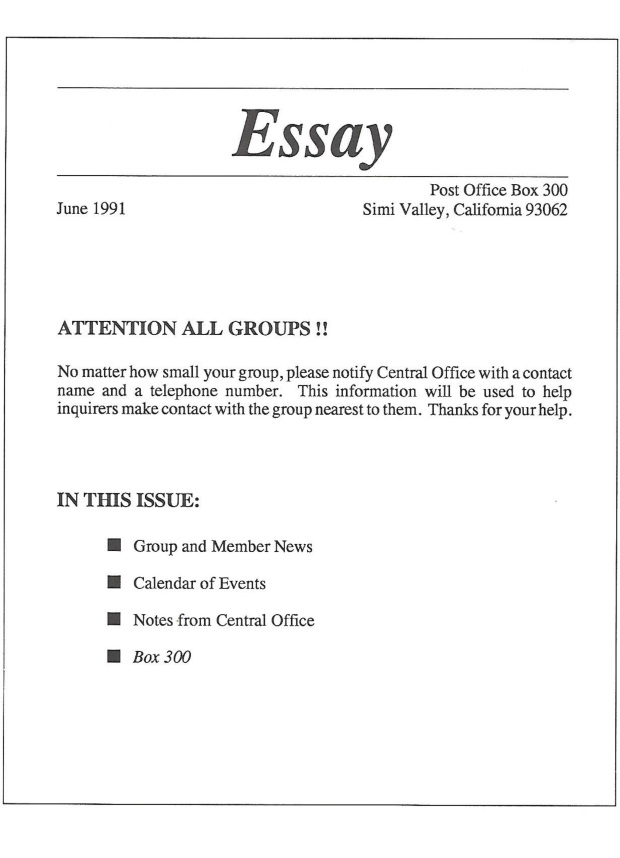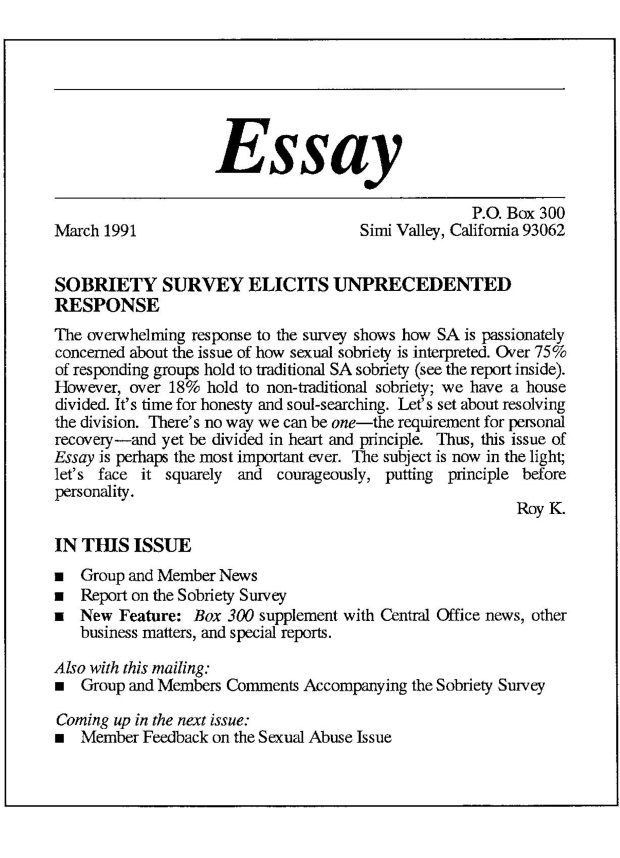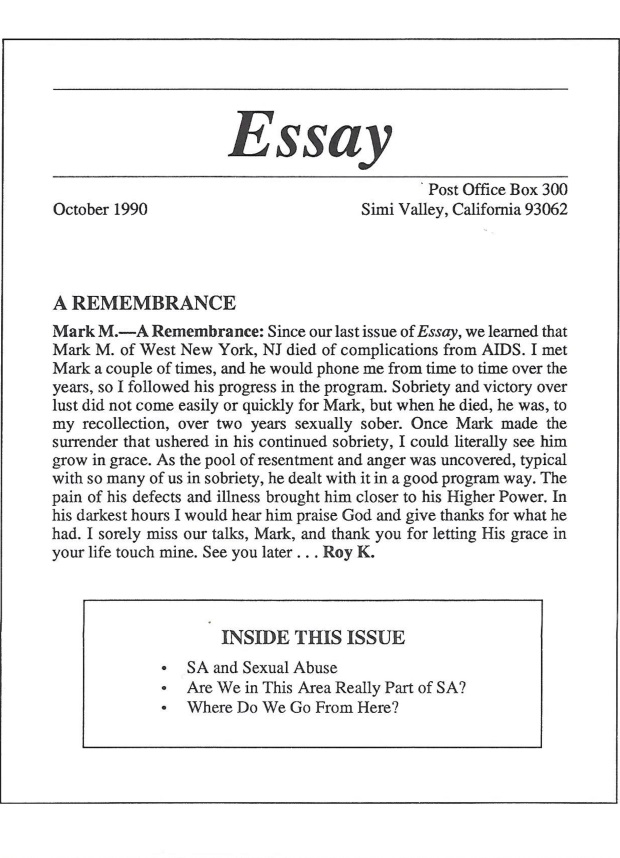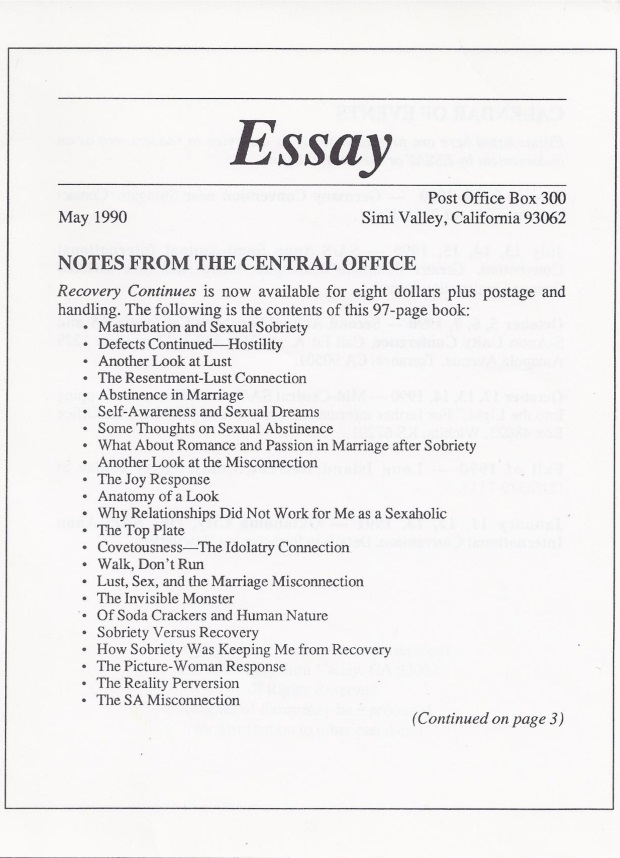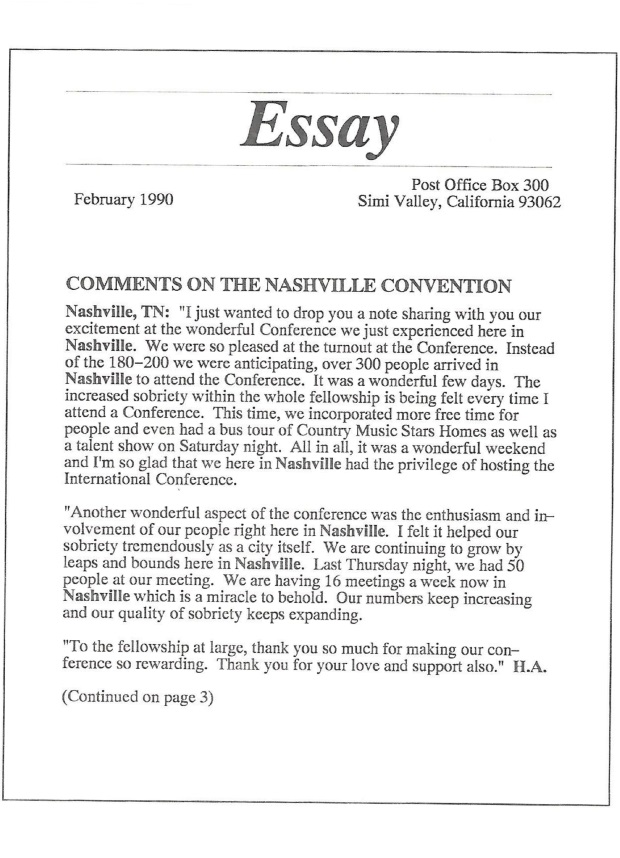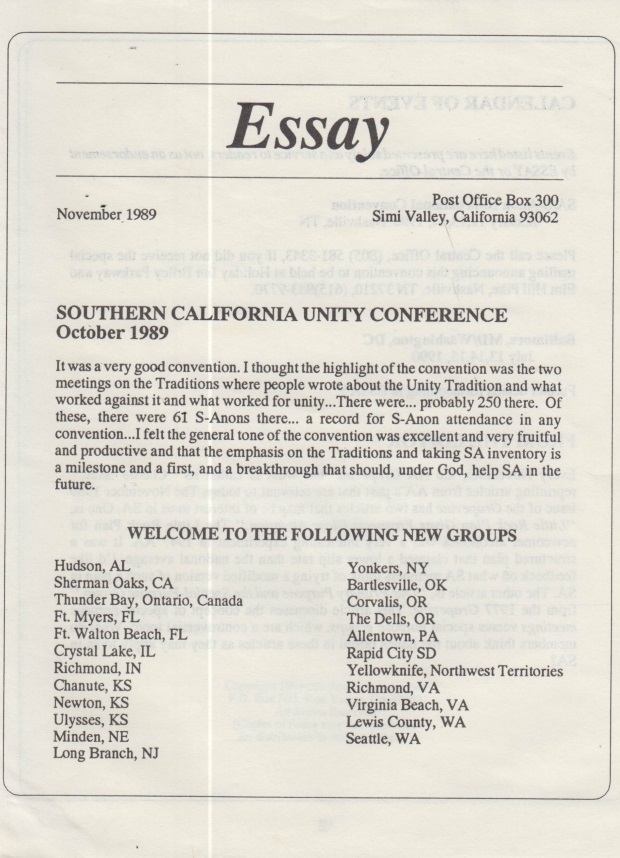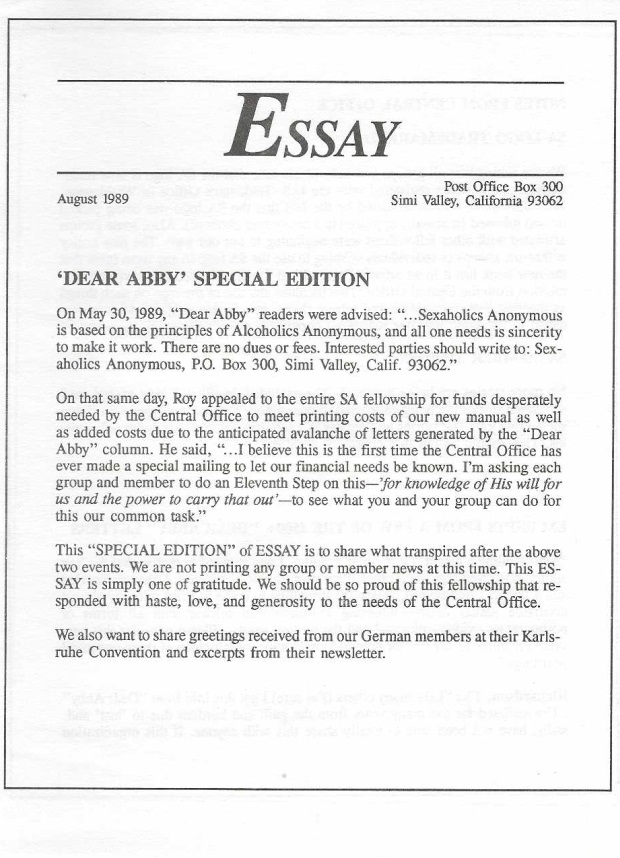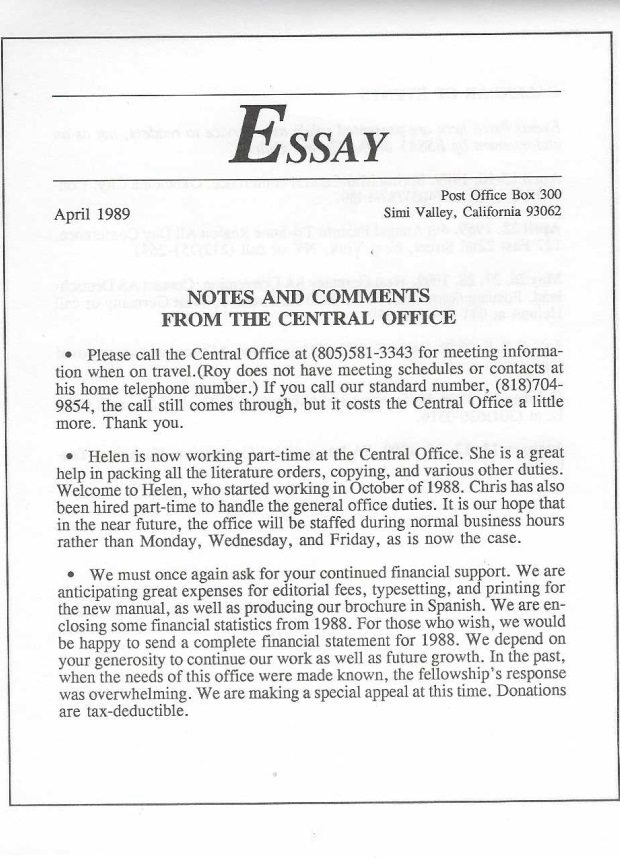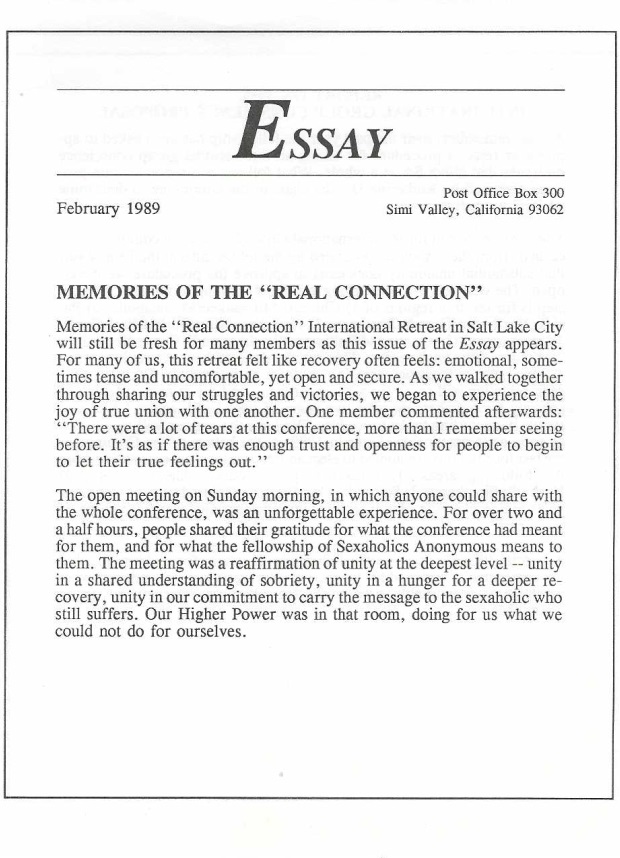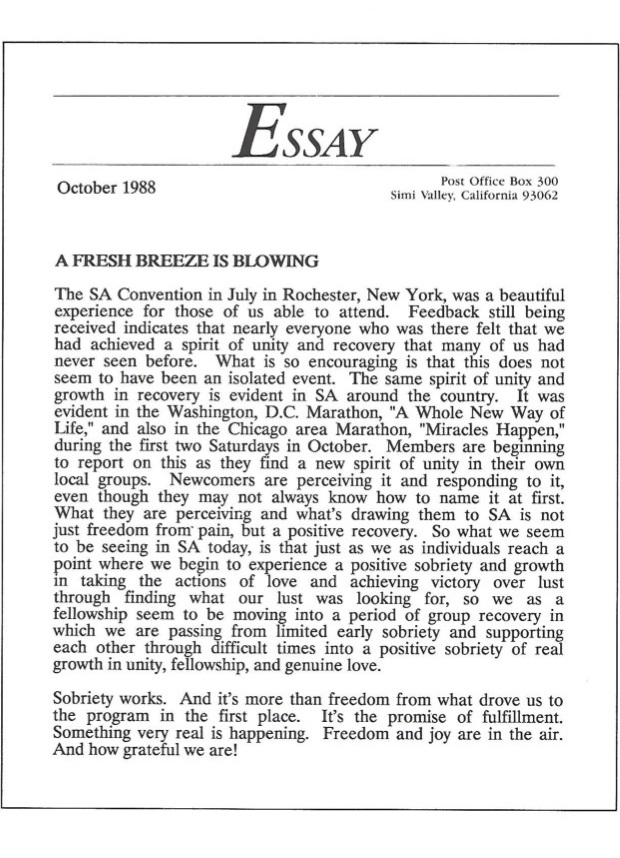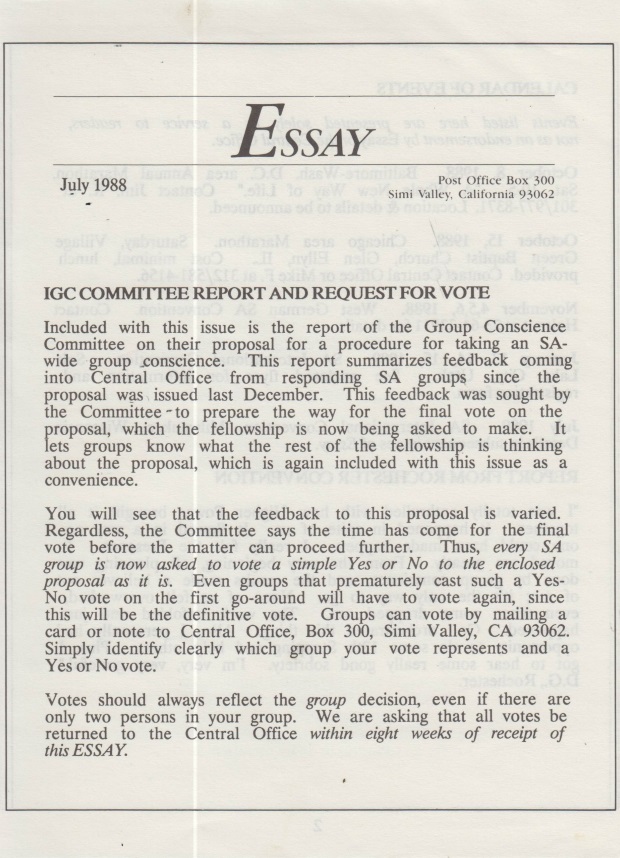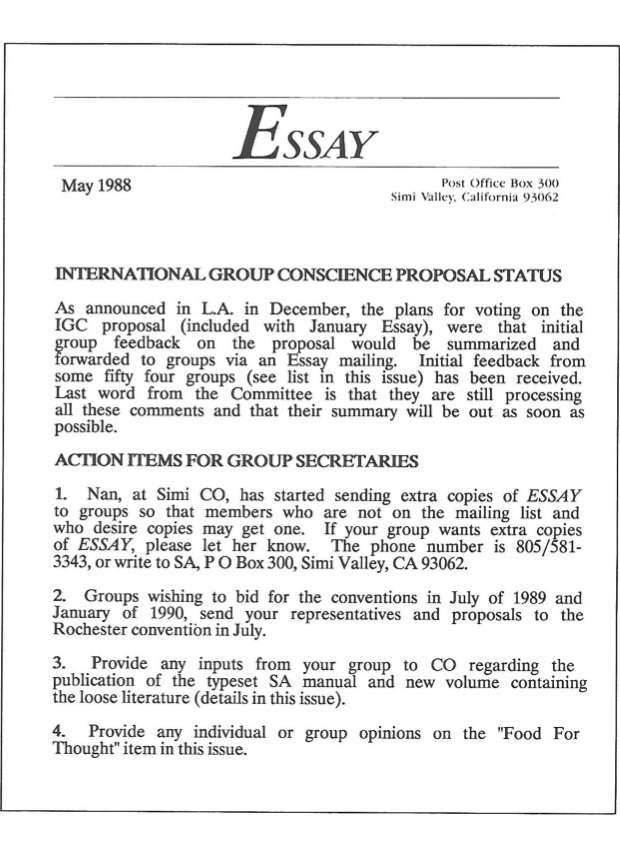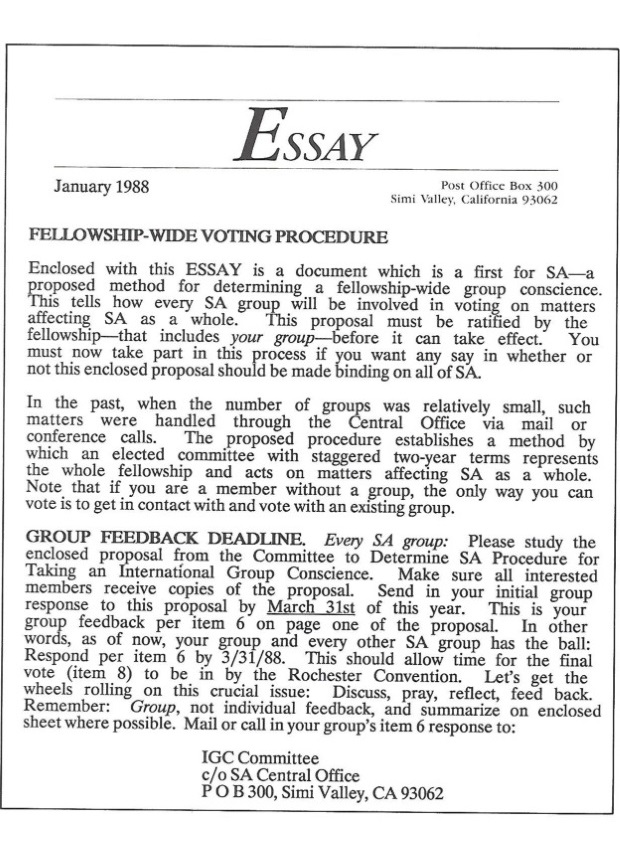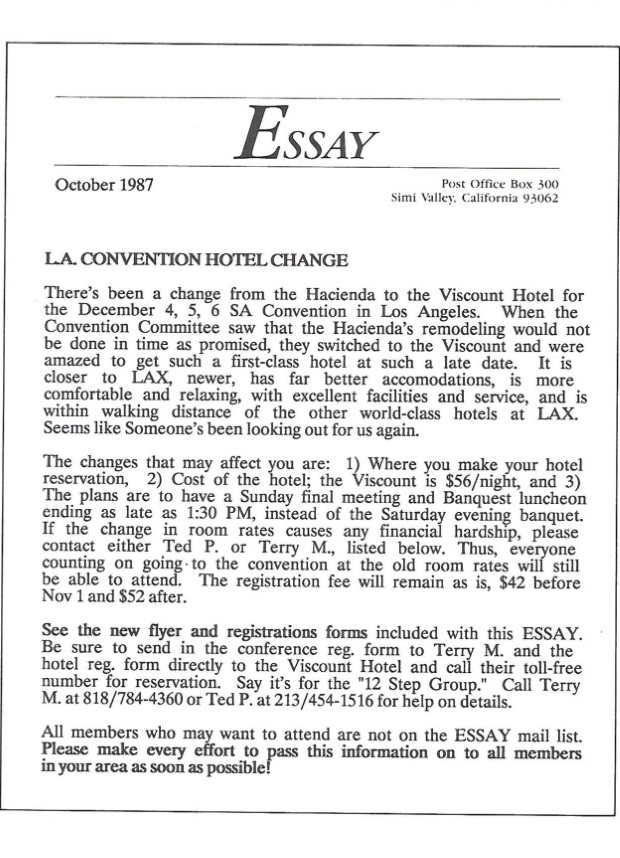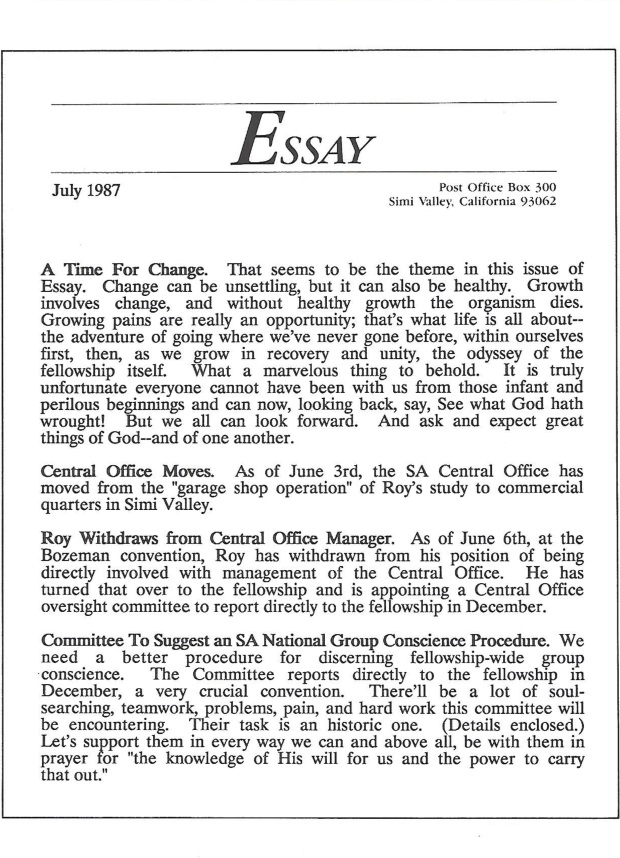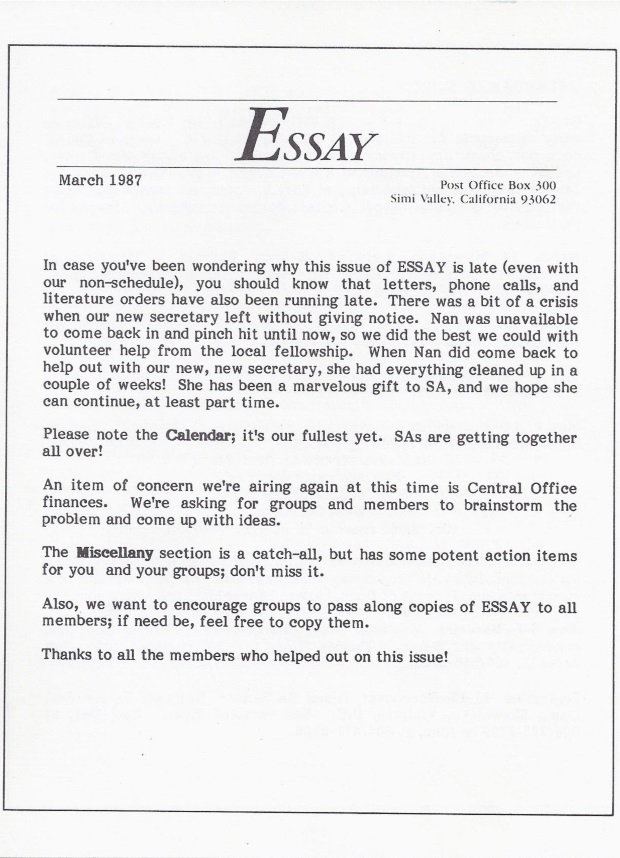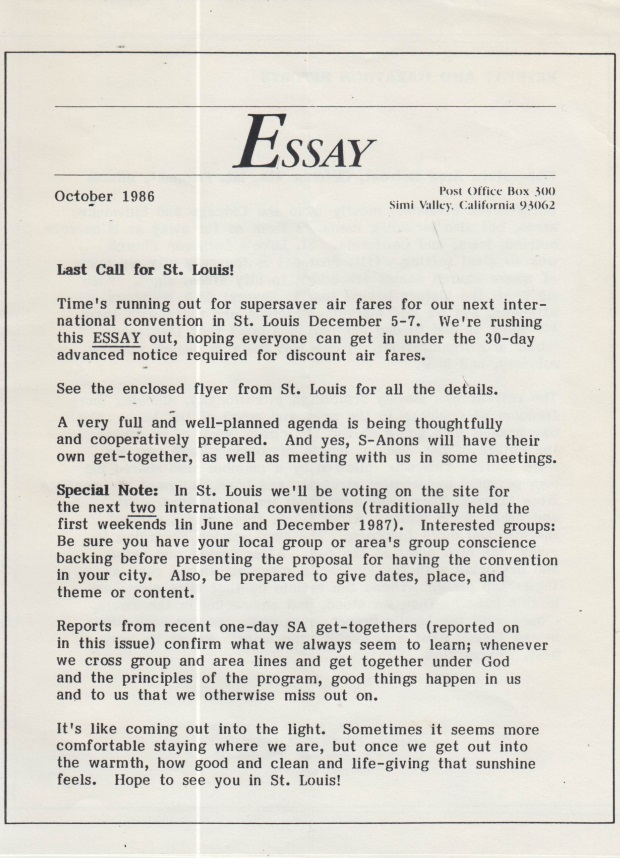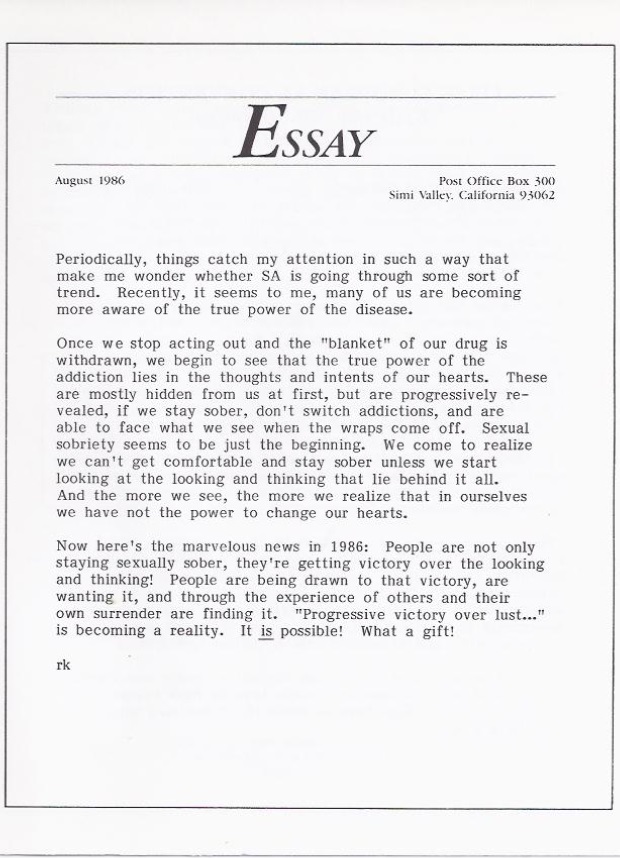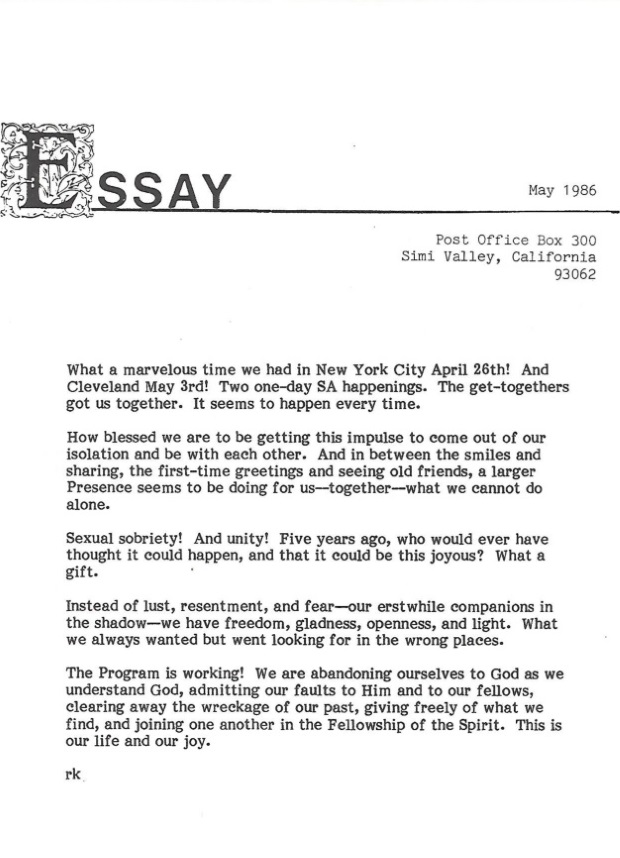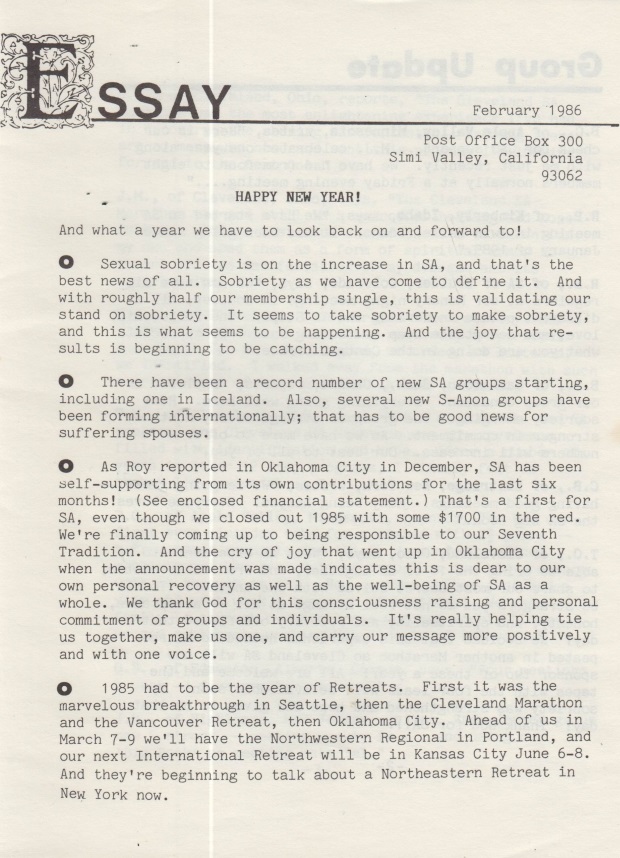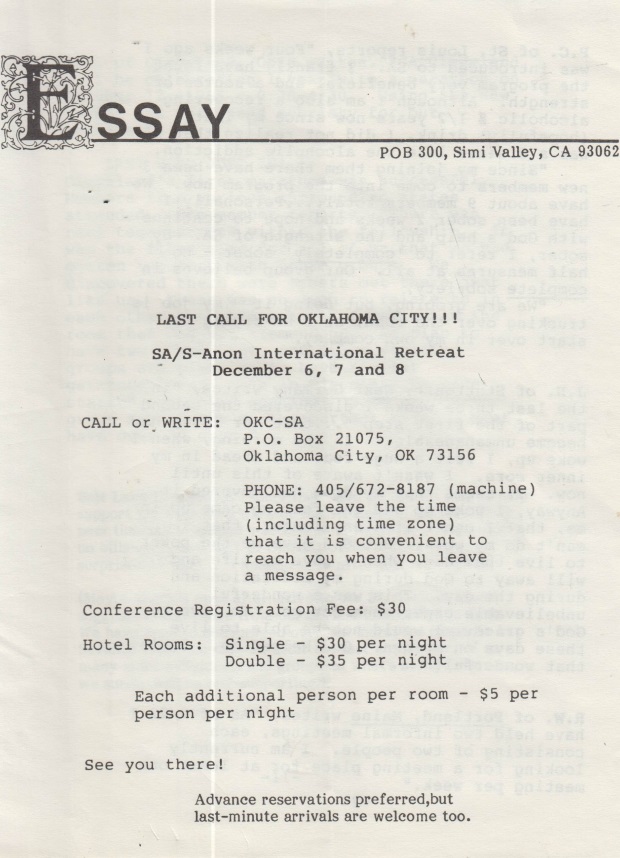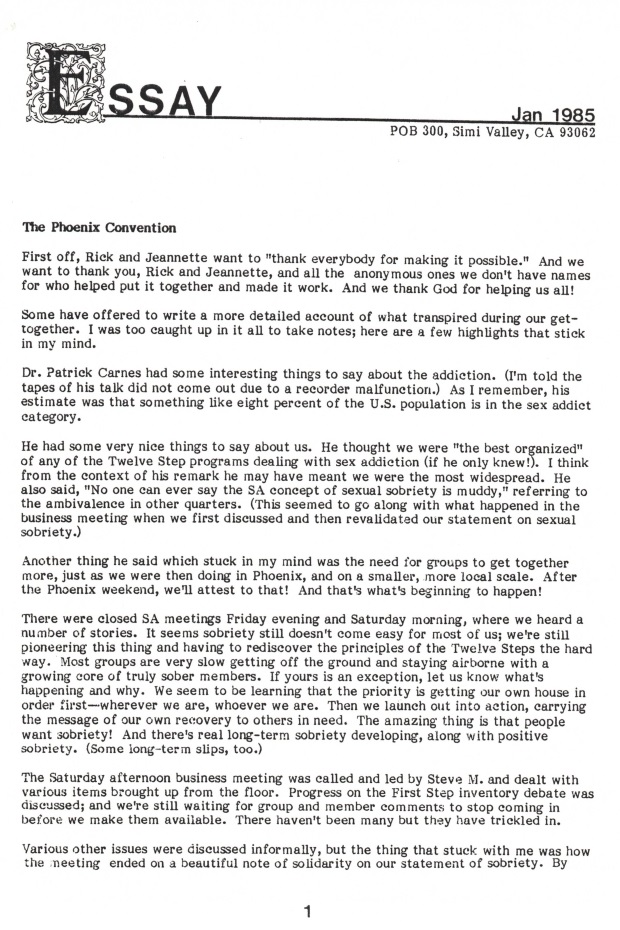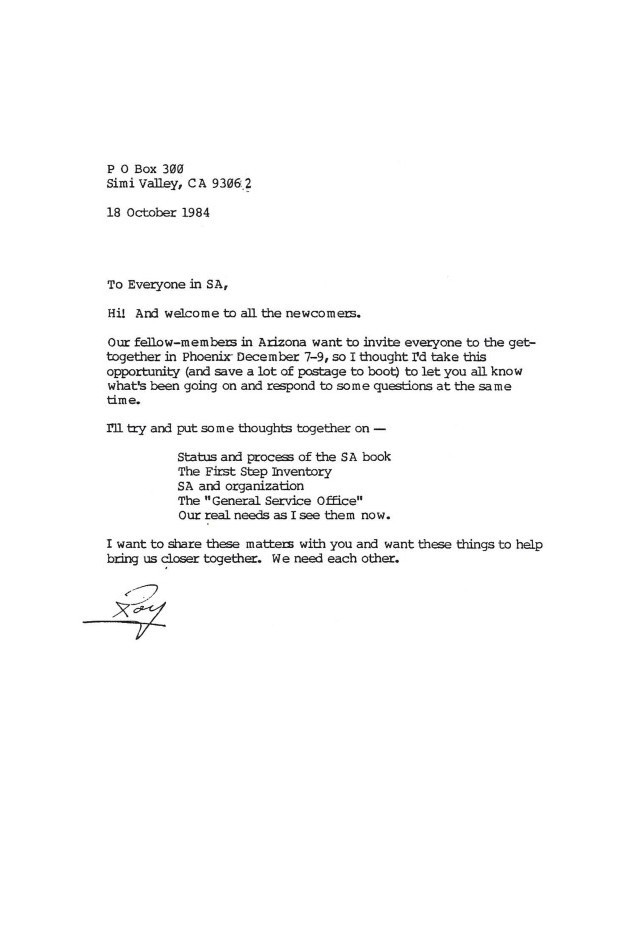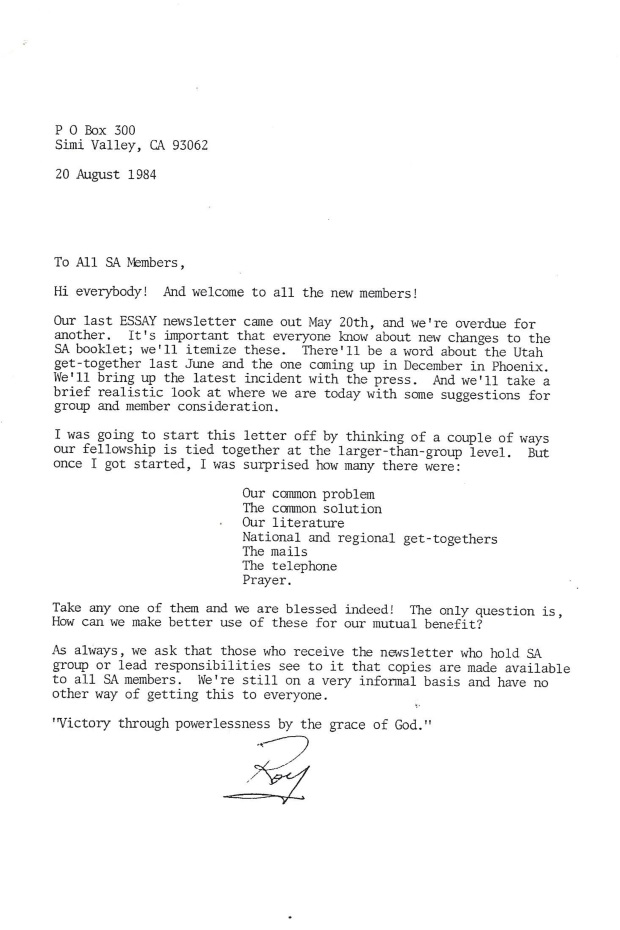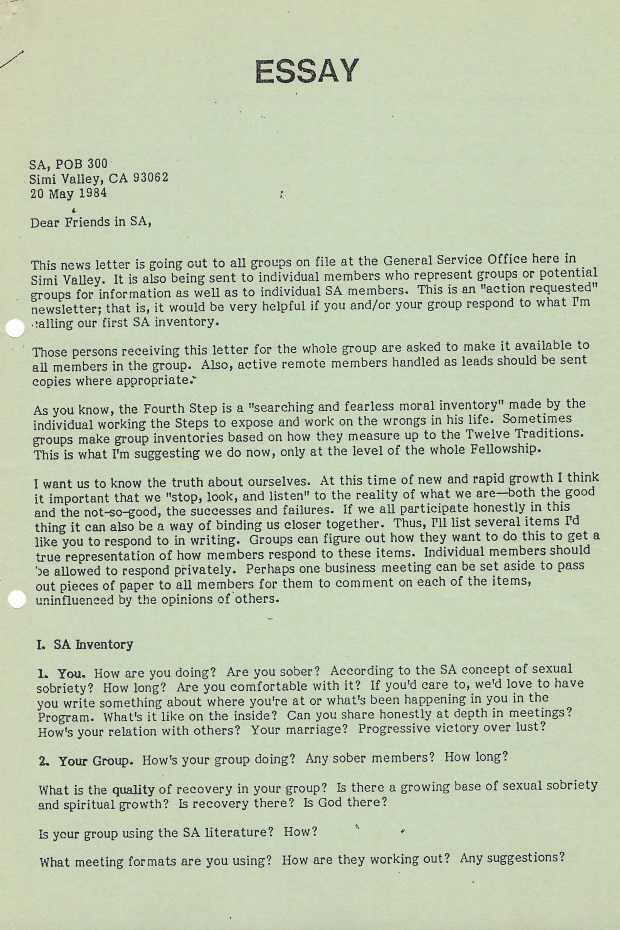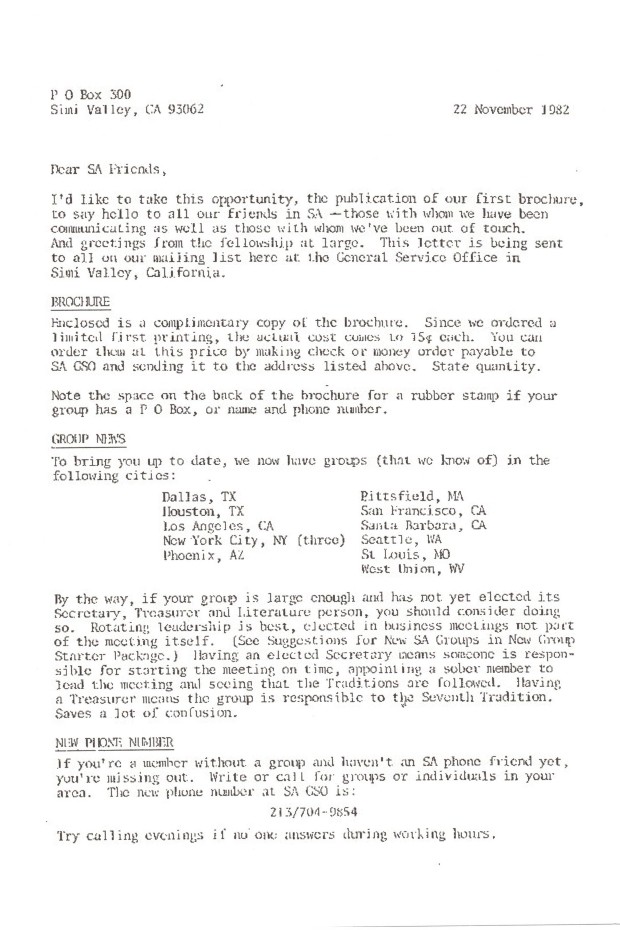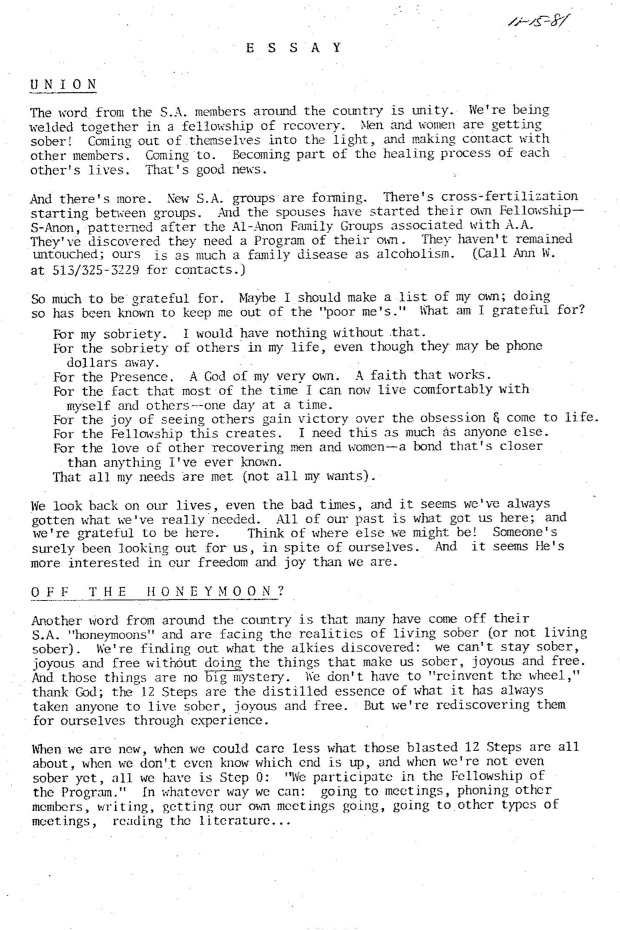
Search articles by language, title, topic, name, issue, etc.
There was a time when I wondered why God brought me into this world. I always felt that my life was meaningless. I had such difficulty fitting in and belonging anywhere. My childhood was very difficult, full of traumas. I could never understand why I had to go through it all or what purpose all that pain served. Lust entered my life at age six when a family member sexually abused me.
AUTHOR: | MAGAZINE ISSUE: | THEME: | TOPICS:
Loneliness, rejection, and fear have acted as a soundtrack in my head for as long as I can remember. They form rhythm and melodies filled with dissonance. Each track is made complete with a verse, chorus, and bridge:
AUTHOR: | MAGAZINE ISSUE: | THEME: | TOPICS:
A few days ago one of my dearest friends came up to me with good news. “I have a boyfriend!” she said. I was so happy for her. She really deserves it. I was always asking myself why someone as beautiful, kind and smart as she is wasn’t in a relationship. I even thought that maybe she had some kind of problem, like my sexaholism. Then it struck me that now I was (and still I am) the only single girl amongst my various groups of friends.
AUTHOR: | MAGAZINE ISSUE: | THEME: | TOPICS:
Laughing is part of recovery! Here is one of my favorite AA jokes:
AUTHOR: | MAGAZINE ISSUE: | THEME: | TOPICS:
The theme for the February edition of ESSAY is “The Joy of Service.”
AUTHOR: | MAGAZINE ISSUE: | THEME: | TOPICS:
Your thoughts and prayers are greatly appreciated. Your letter was not anticipated so receiving it made it all the more special. I am grateful to have had 18 months between being “busted” and being arrested in which time I was able to become sexually sober, attend SA meetings, work the Steps with a sponsor, reunite with old friends in AA, and receive professional therapy.
AUTHOR: | MAGAZINE ISSUE: | THEME: | TOPICS:
Do I help others to experience fun in recovery?
Fun in recovery was the last thing on Mat’s mind when he first stepped in the rooms. But in SA he became part of the excitement around conventions; was pleasantly surprised by members wanting to connect with him; and came to experience the priceless joy of serving.
AUTHOR: | MAGAZINE ISSUE: | THEME: | TOPICS:
I joined SA in pandemic times, two years ago, which was a good thing in one way, as there were very many daily Zoom meetings available. This was crucial to safeguarding my physical sobriety, countless times. I got something of a reputation as a strange Brit, who showed up at all hours of the night in USA meetings, for this reason. I saw it as going to any lengths.
AUTHOR: | MAGAZINE ISSUE: | THEME: | TOPICS:
“Fun in Recovery”—it sounded most unrealistic at first. But we kept coming back and over time, we developed a liking for meetings and for connection with other members. By working our program we came to see the positives in every situation and even started to enjoy life’s rainy days. We, who used to be habitual moaners, now actively looked about us for reasons to be cheerful and grateful.
AUTHOR: | MAGAZINE ISSUE: | THEME: | TOPICS:
I have always worked a simple program because that is the only way I’m able to do it. I wasn’t able to write my inventory like the AA Big Book recommends with the columns system. But on page 109 in the SA White Book the directions were simple which allowed me to do my inventories.
AUTHOR: | MAGAZINE ISSUE: | THEME: | TOPICS:
I will try to share my experience, strength and hope as it touches upon the role my father Roy K. played in both my addiction and recovery. It’s been a bumpy road for us both, thanks to our addiction and character defects.
AUTHOR: | MAGAZINE ISSUE: | THEME: | TOPICS:
Fun in recovery was the last thing on my mind when I first stepped into the rooms. I was at rock bottom and thought my life would never see joy again, much less fun again. I had been found out and subsequently destroyed my marriage and the relationships with my teenage children. I never thought that fast forward 6 years I would rediscover joy in my life and have fun in my recovery.
AUTHOR: | MAGAZINE ISSUE: | THEME: | TOPICS:
Before joining SA, I did activities with a hidden agenda—to spot or be spotted by a “potential husband.” I cringe when I think about these crazy motives. As I was doing Step Four, my sponsor asked me if I would accept life if I never got married.
AUTHOR: | MAGAZINE ISSUE: | THEME: | TOPICS:
When I first started my recovery journey I was plagued with the usual incessant buzz inside my head that only addicts and compulsive neurotics can identify with:
AUTHOR: | MAGAZINE ISSUE: | THEME: | TOPICS:
Когда летом 2014 года меня выбрали членом Попечительского совета АС, я был новичком на этом уровне служения, но с воодушевлением отдавал все силы тому, что мог сделать, чтобы делиться нашим посланием со страдающими сексоголиками.
AUTHOR: | MAGAZINE ISSUE: | THEME: | TOPICS:
С того момента, когда я начал принимать эту Программу всерьёз и начал работать по Шагам со спонсором, который работает по Шагам со своим спонсором ( и т.д. ), мне стало абсолютно ясно, что наш основной фокус и главная цель – это Двенадцатый Шаг, несение вести.
AUTHOR: | MAGAZINE ISSUE: | THEME: | TOPICS:
“Но я не хочу сдавать это!” — “Тогда ты не поправишься,” — таков был ответ моего спонсора чуть ли не на все те страхи, которые я переживал. Я не могу протрезветь, находясь в изоляции. И точно так же я не могу сохранить трезвость, если я не отдаю. Наша группа АС очень сильна в служении, которое называется “Больницы и Учреждения”. Сексоголики нашей группы несут служение в центрах социальной помощи, тюрьмах, храмах и других организациях.
AUTHOR: | MAGAZINE ISSUE: | THEME: | TOPICS:
В последние несколько лет Сообществом АС в регионе Европы и Ближнего Востока (EMER) была проведена значительная работа по донесению вести АС профессиональным служителям католической церкви и обмену опытом между интергруппами, число которых достигло уже пятнадцати.
AUTHOR: | MAGAZINE ISSUE: | THEME: | TOPICS:
Я переехал в региональный город на восточном побережье Австралии более пяти лет назад. В городе было два собрания АС, и сексуальная зависимость была очень запретной темой и до сих пор остается таковой.
AUTHOR: | MAGAZINE ISSUE: | THEME: | TOPICS:
Моя работа состоит в том, чтобы ухаживать за большим владением с фруктовым садом, огородом и домом. Несколько недель назад я оказался в совершенно новой для себя ситуации. Люди, с которыми я живу и работаю, уехали в летний отпуск на два месяца. Я остался один, и с тех пор почти ни с кем не встречаюсь лично. Ключевой момент заключается в том, что у меня есть полный доступ к Интернету.


